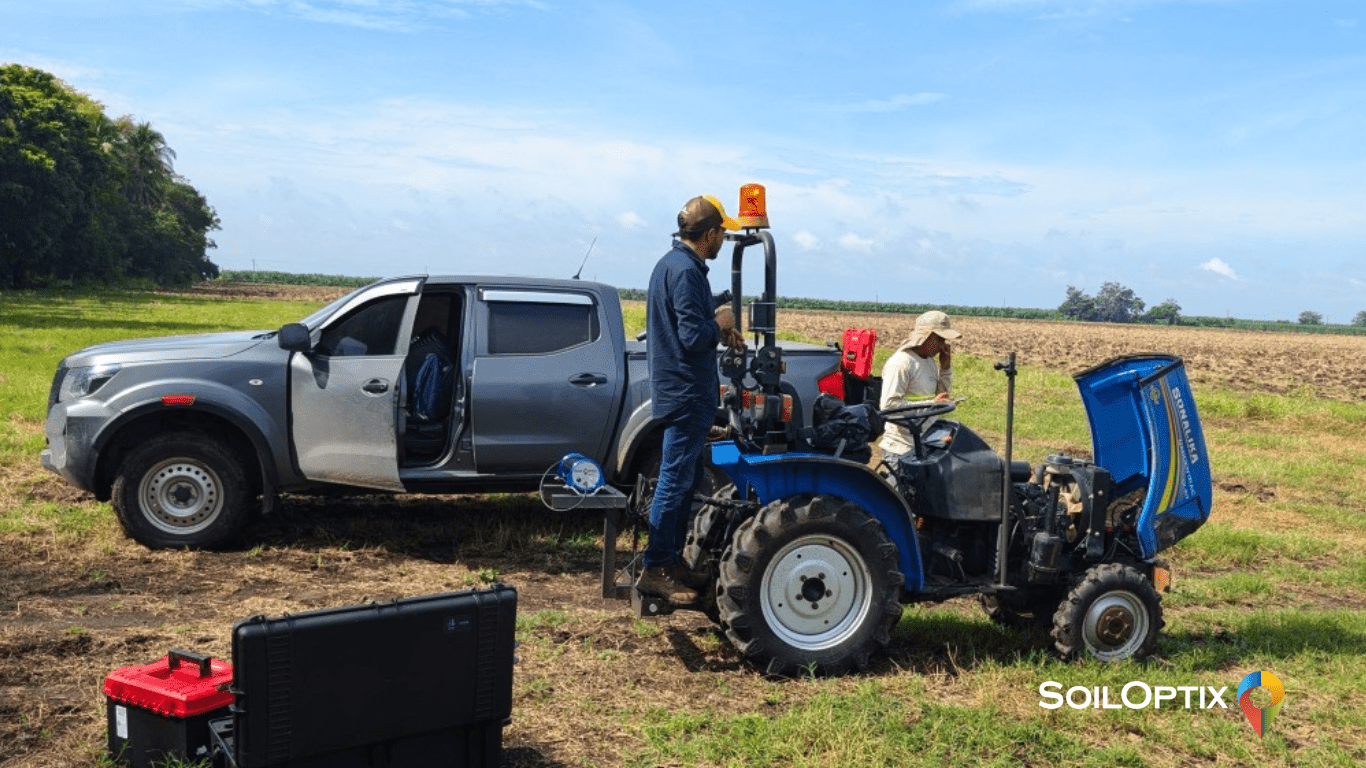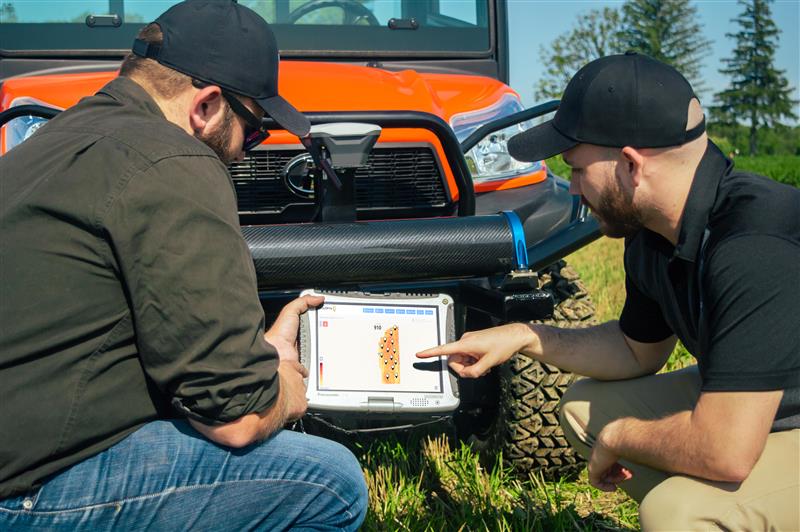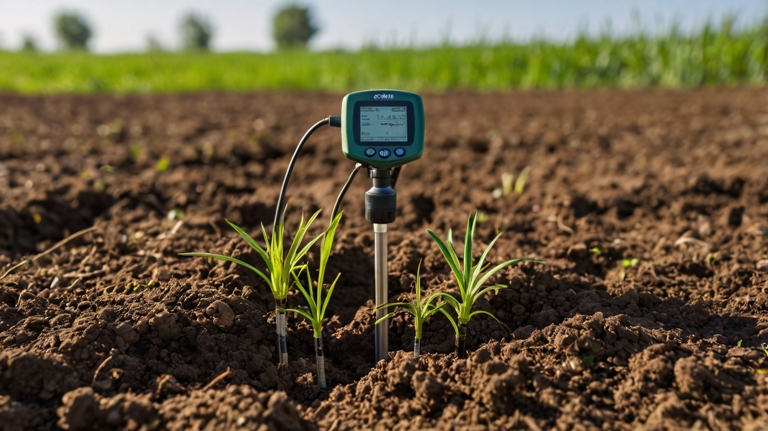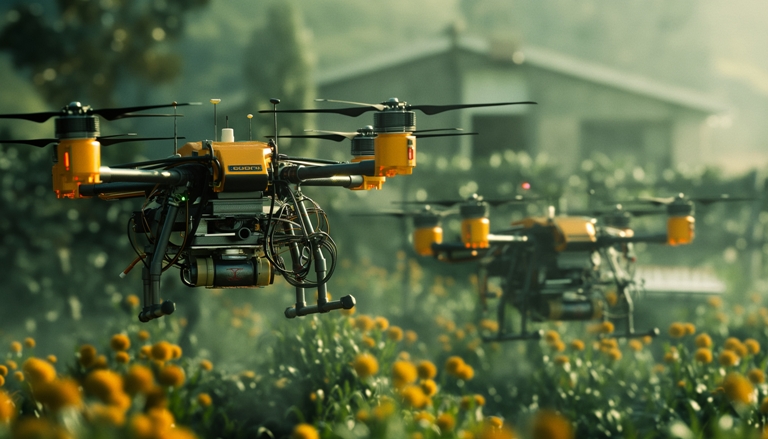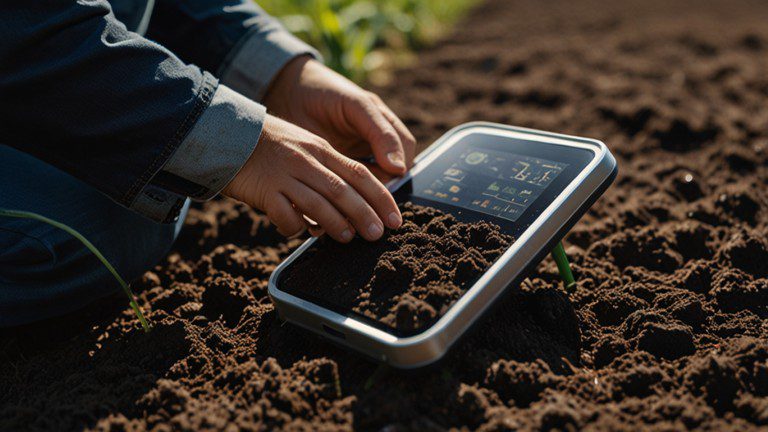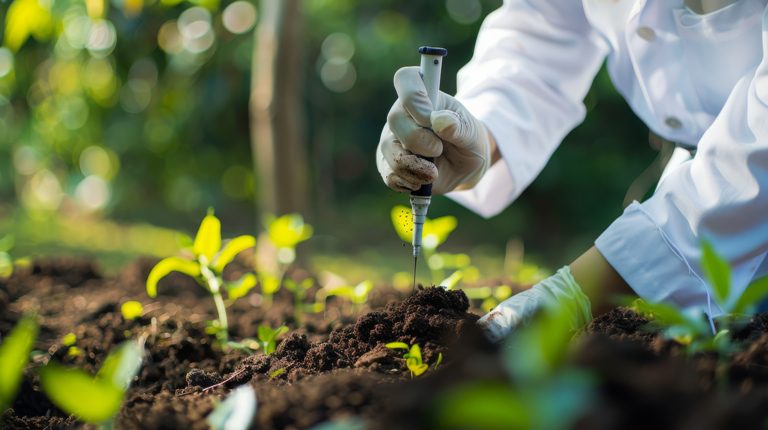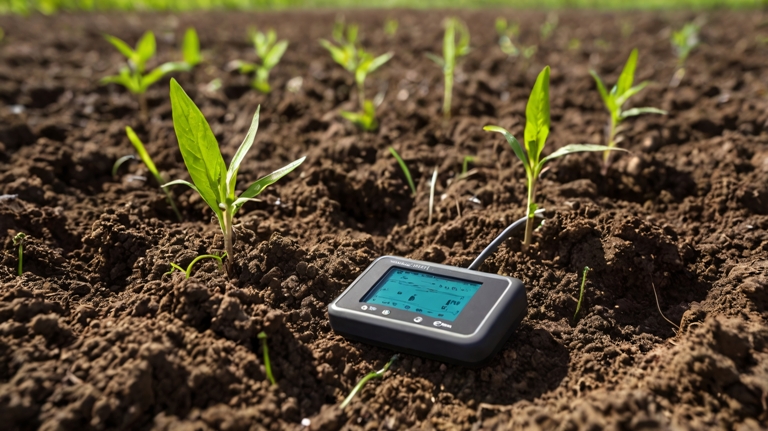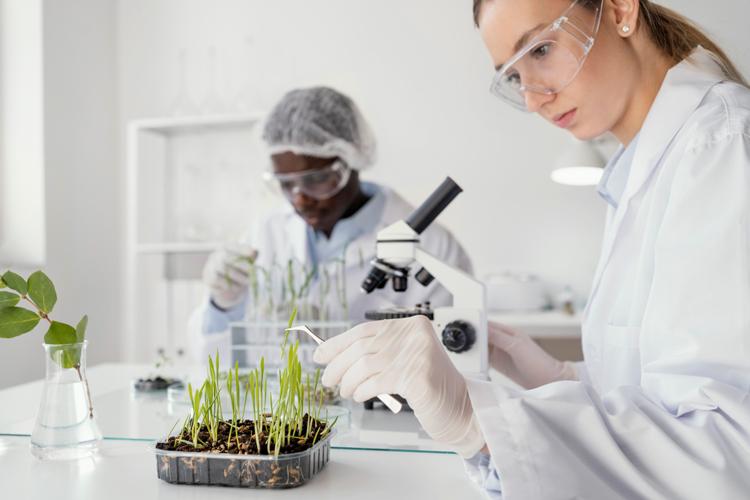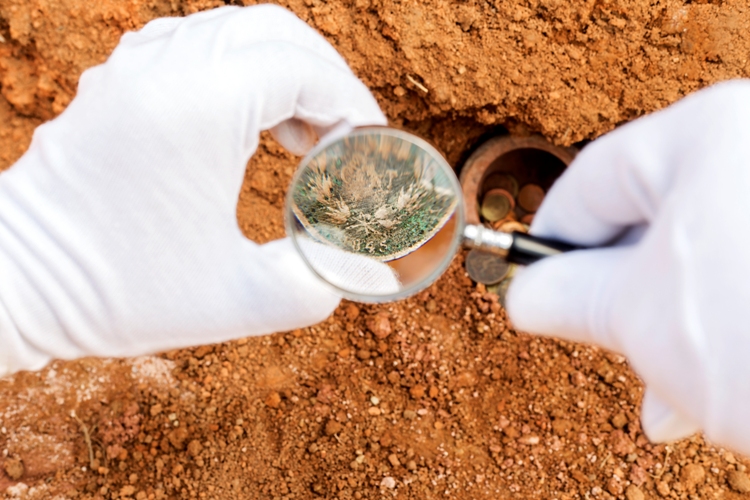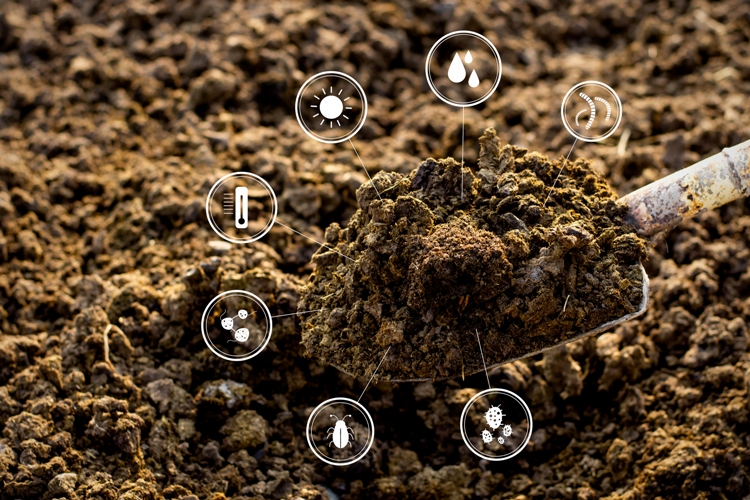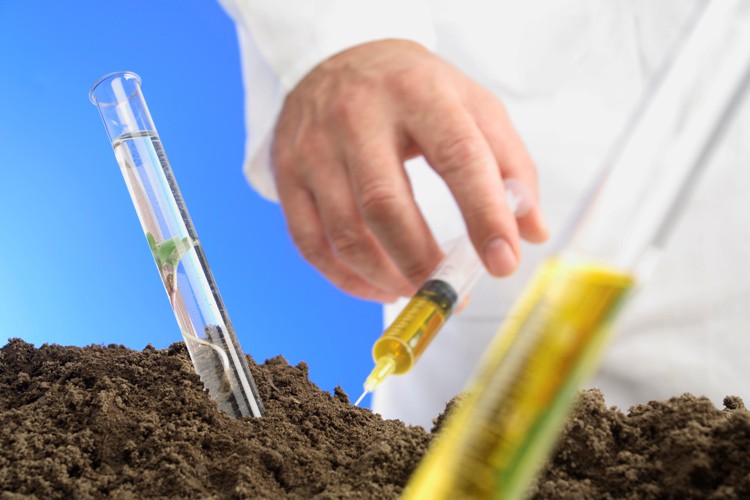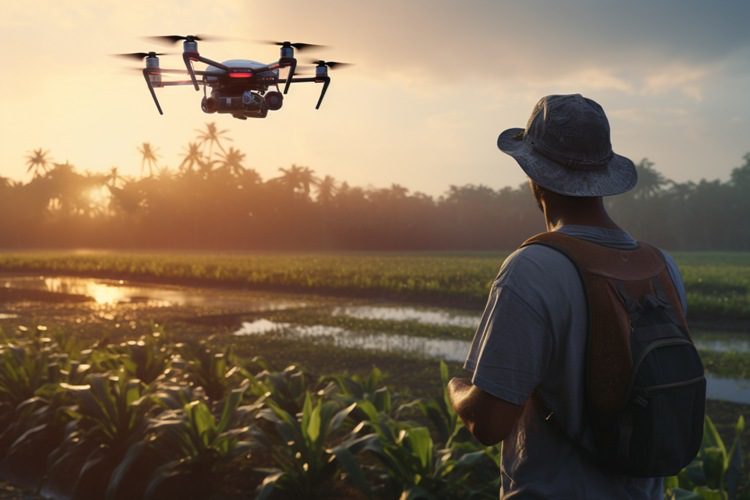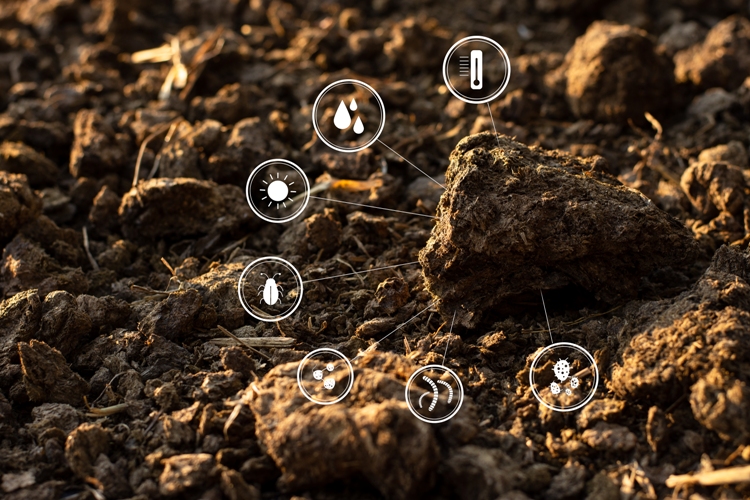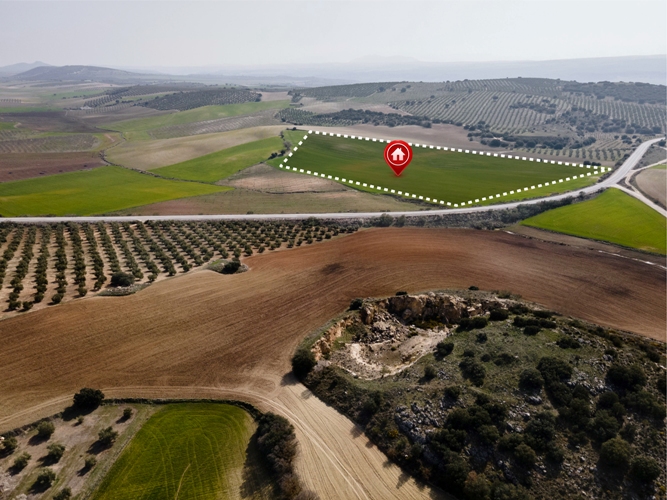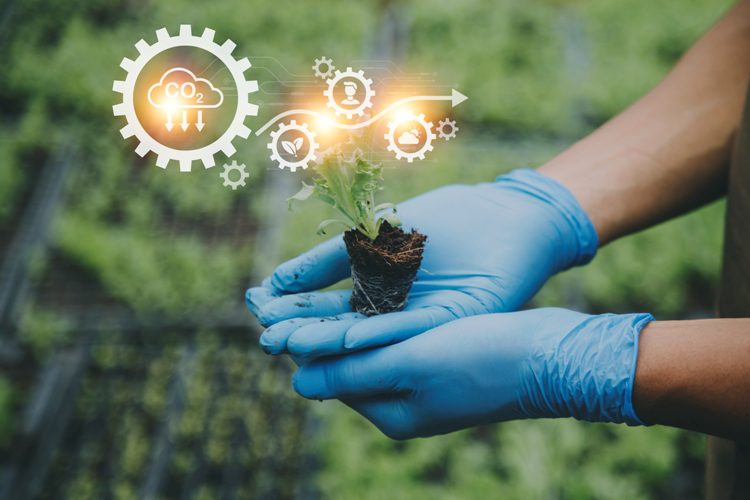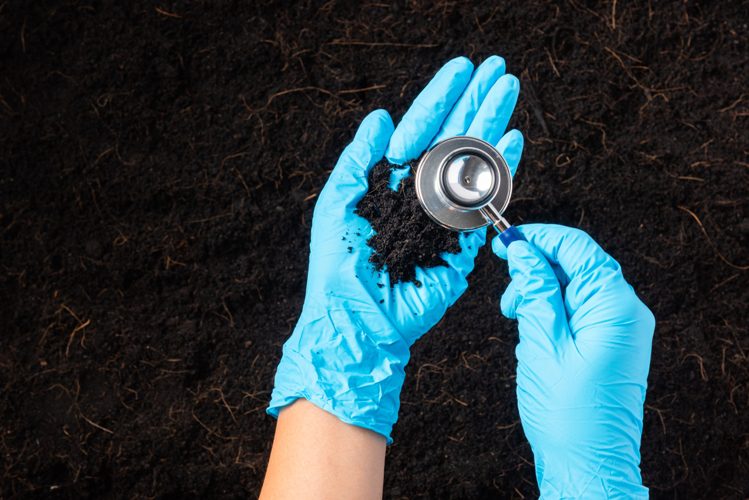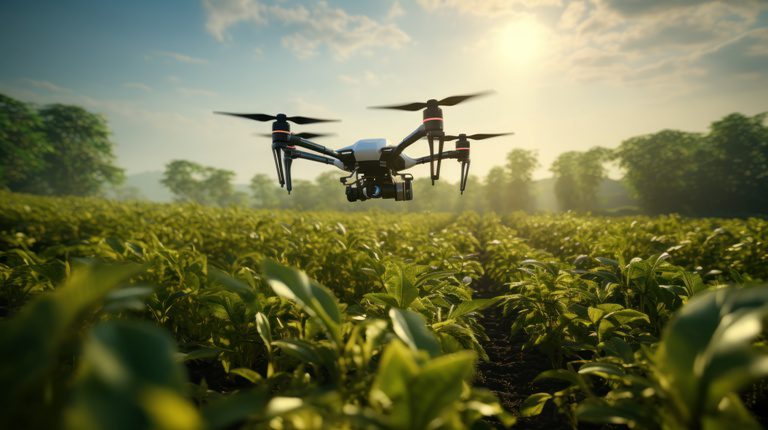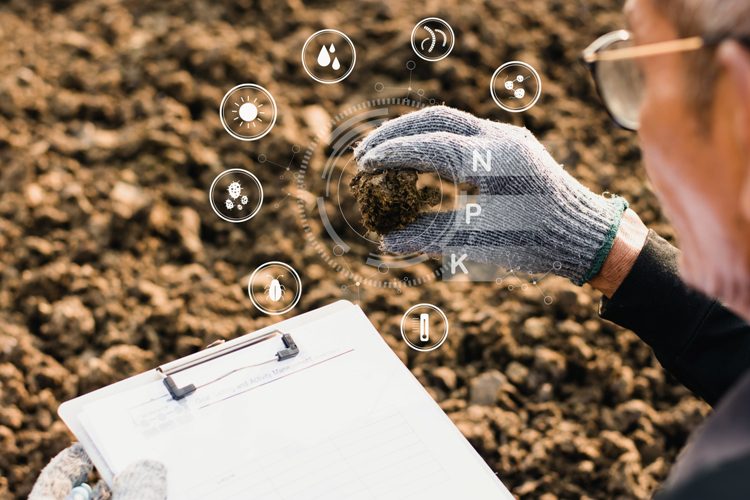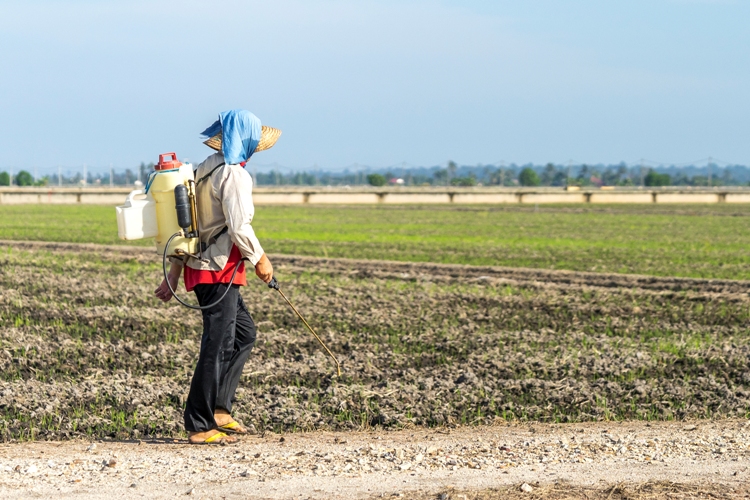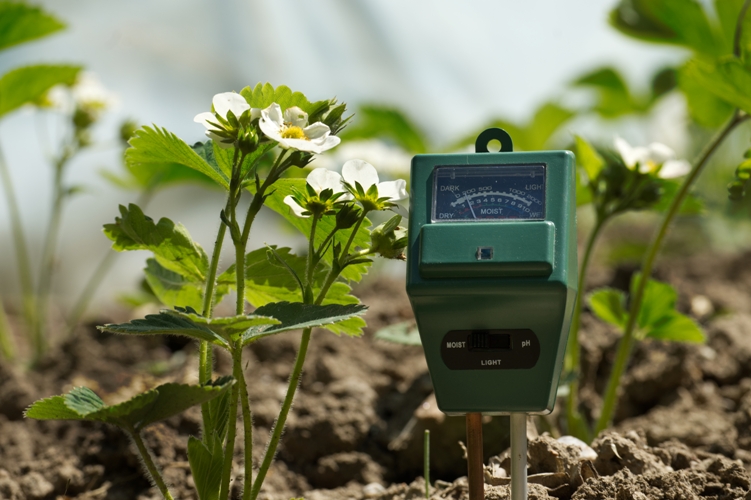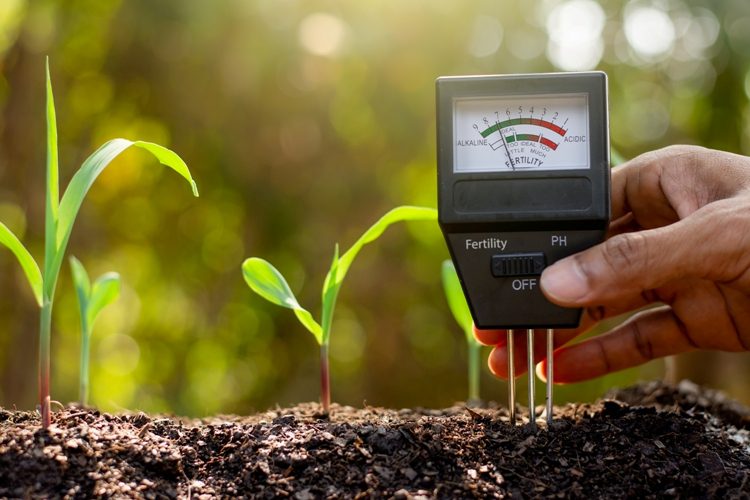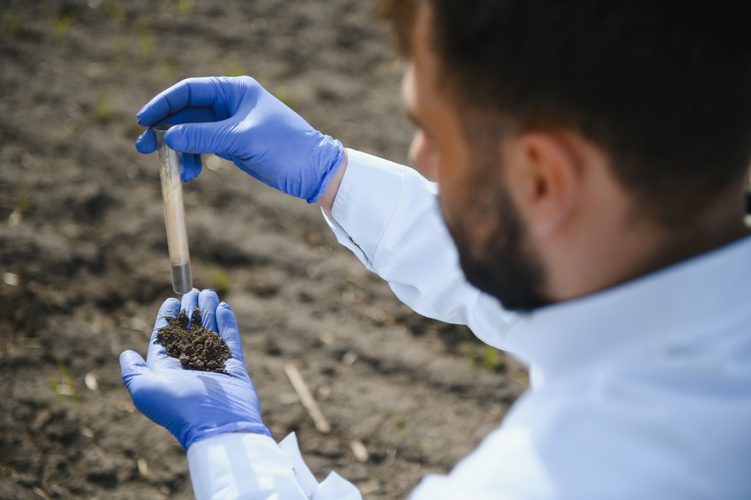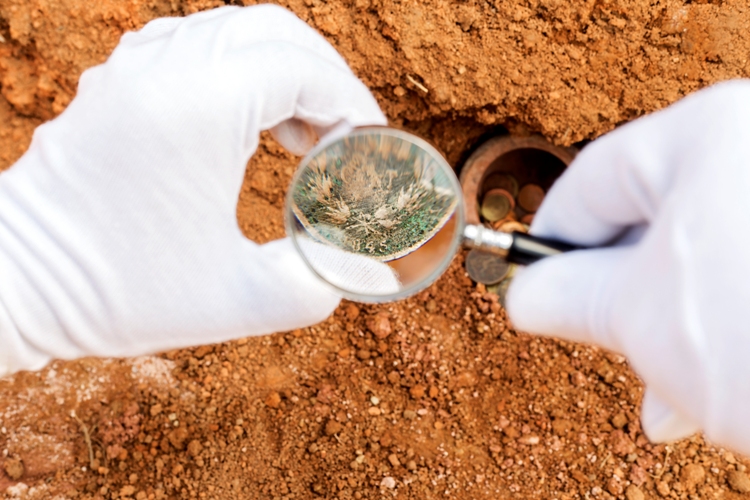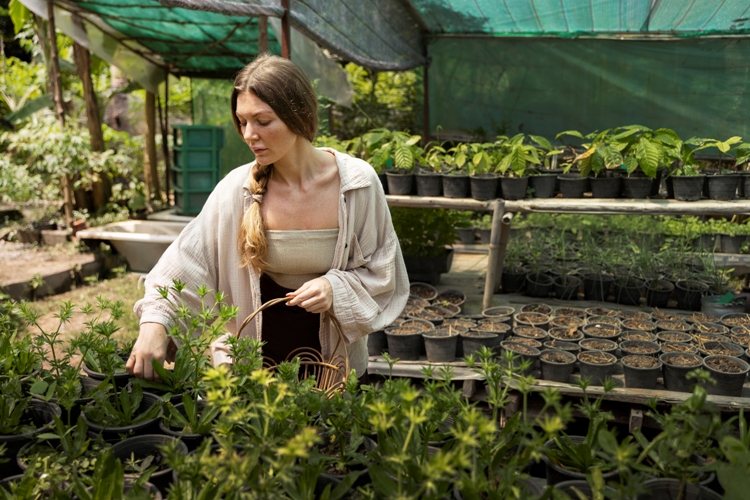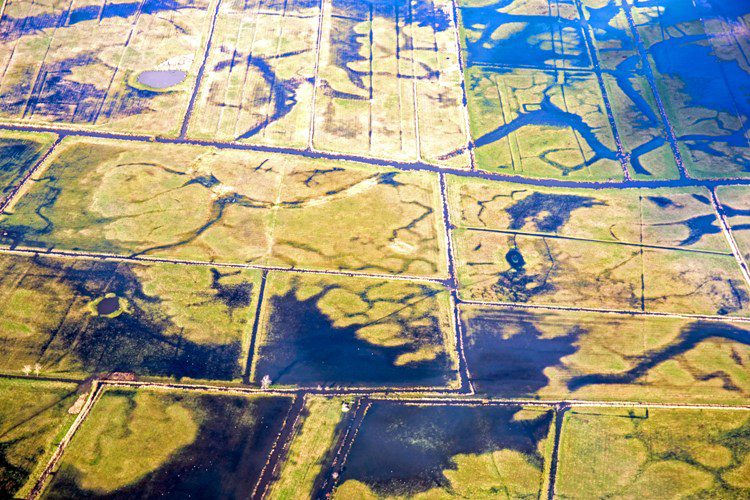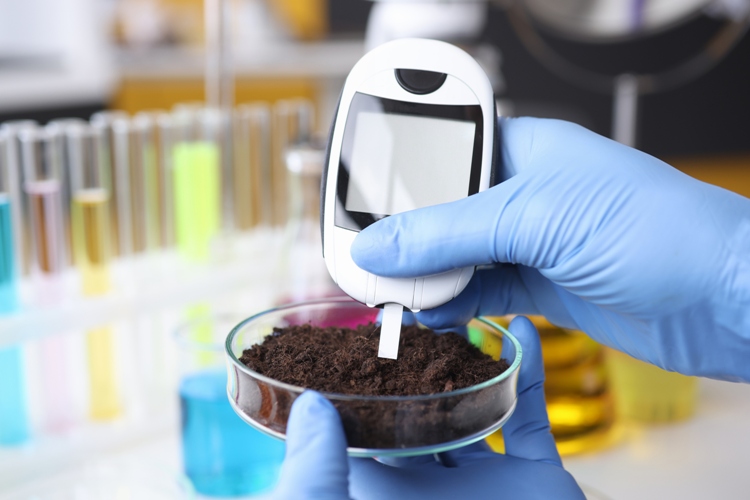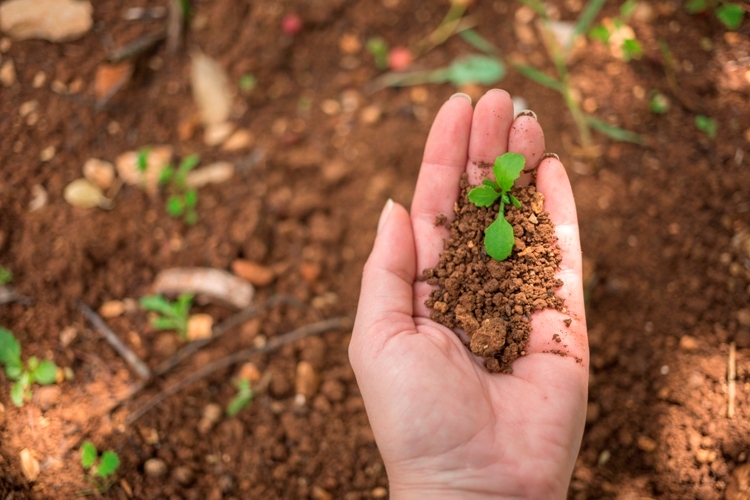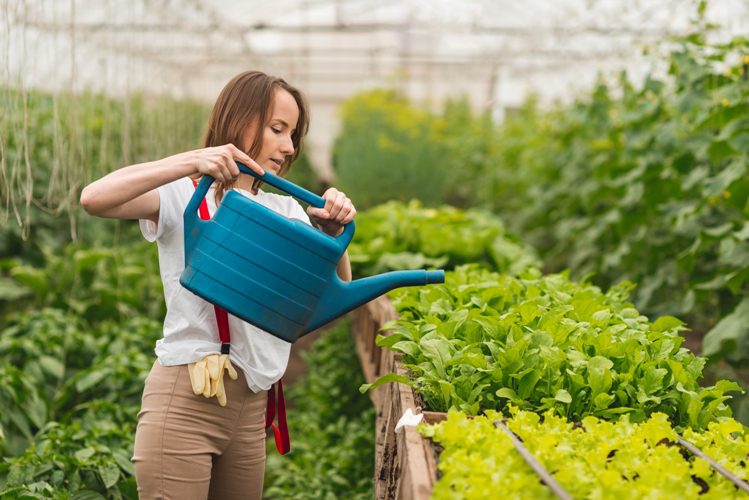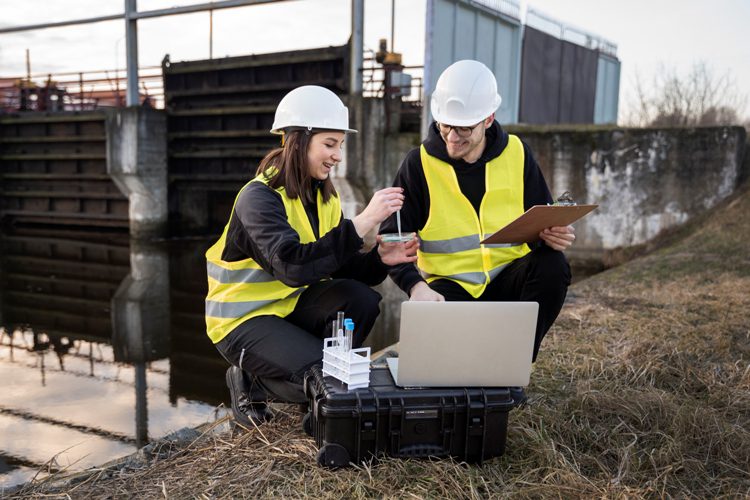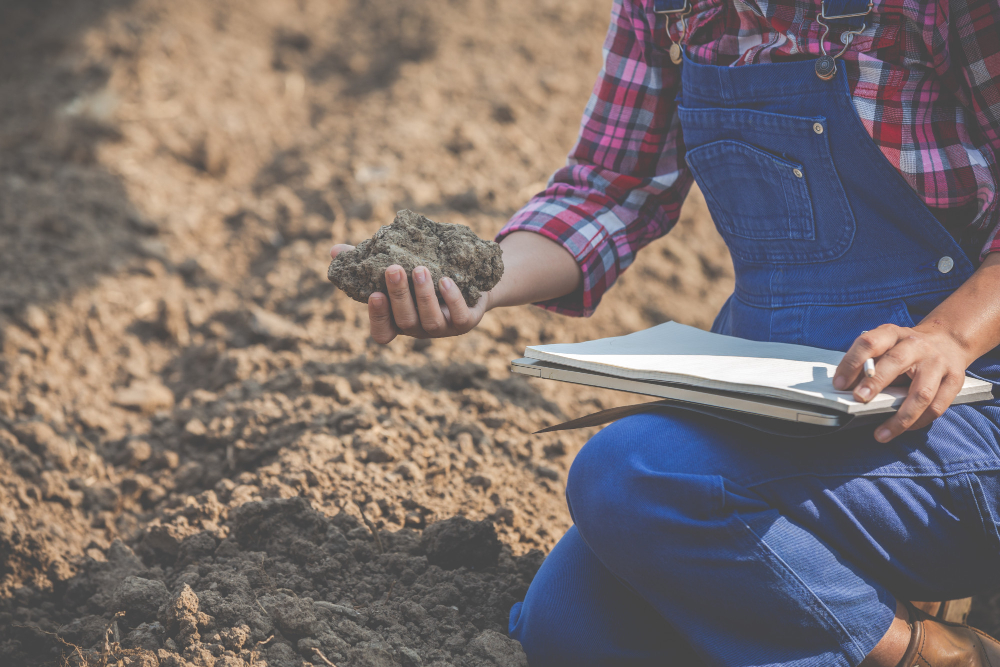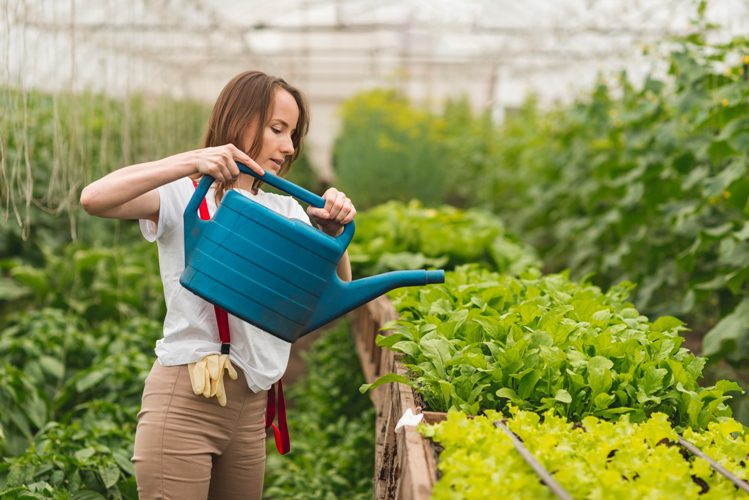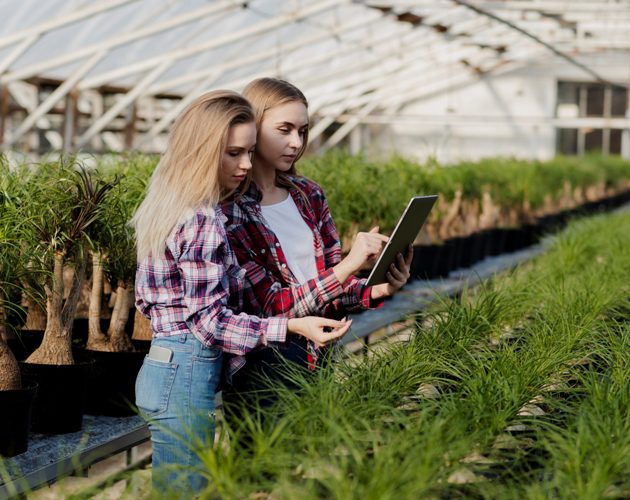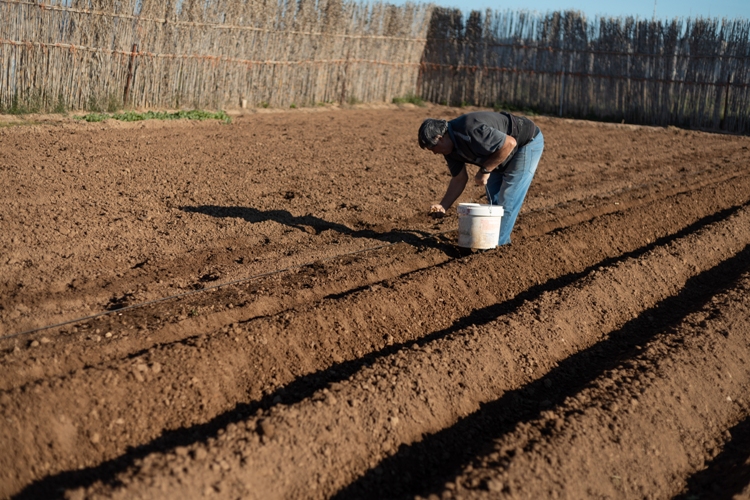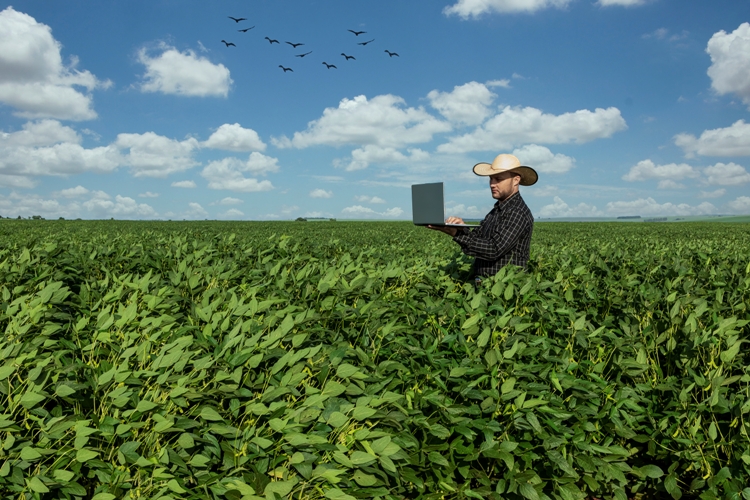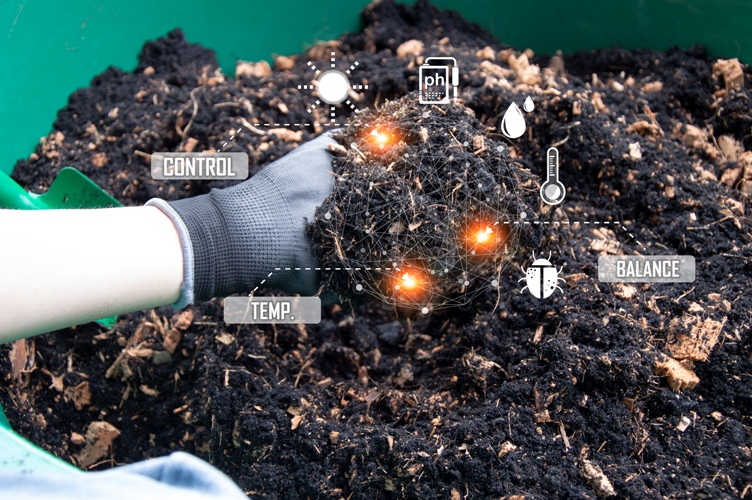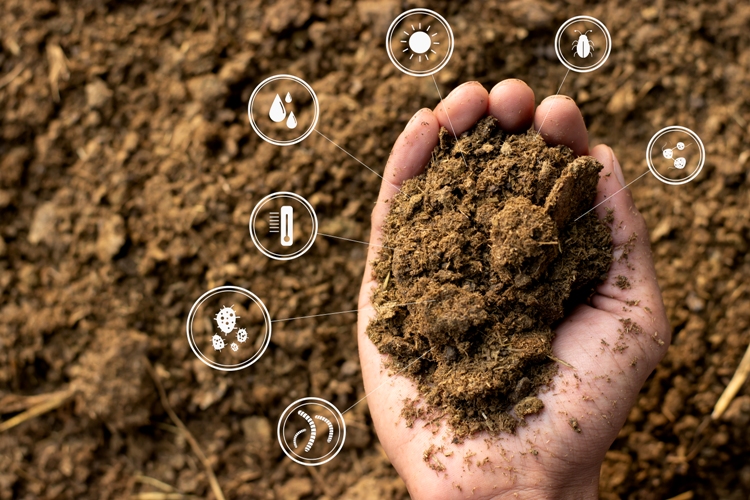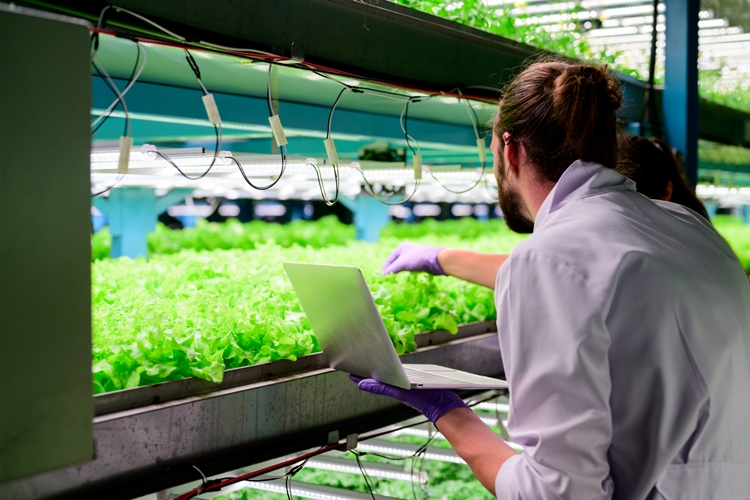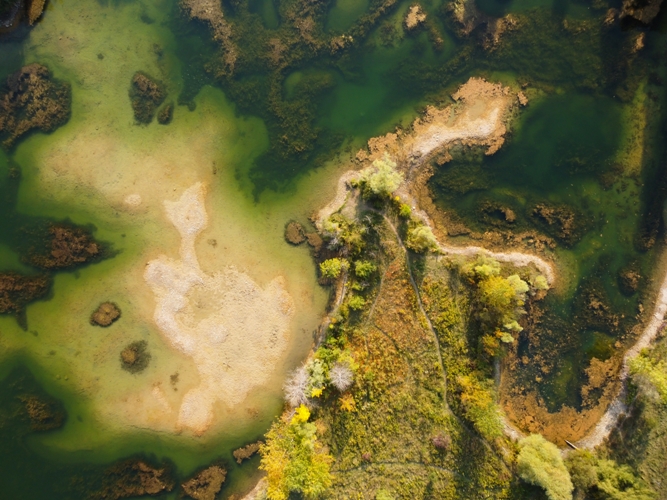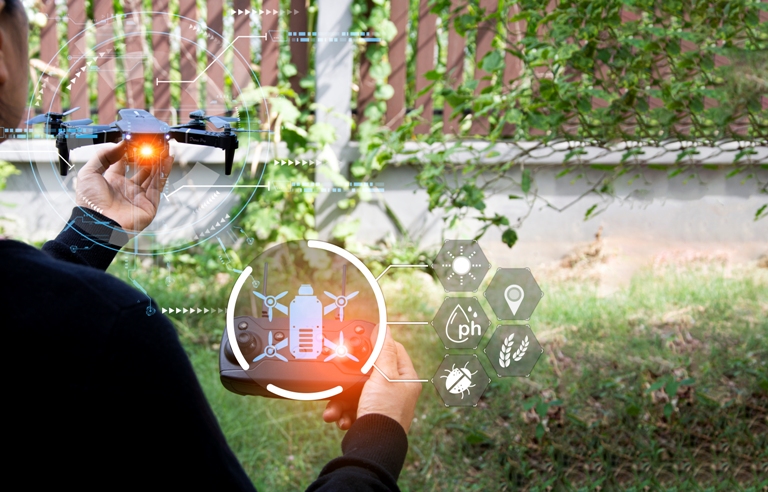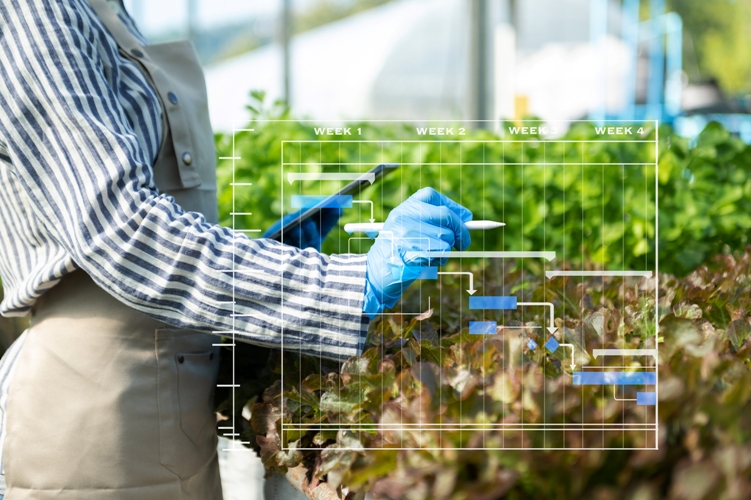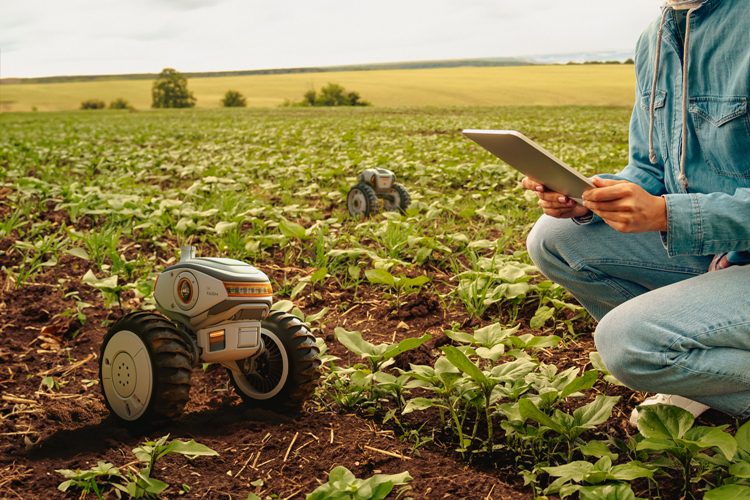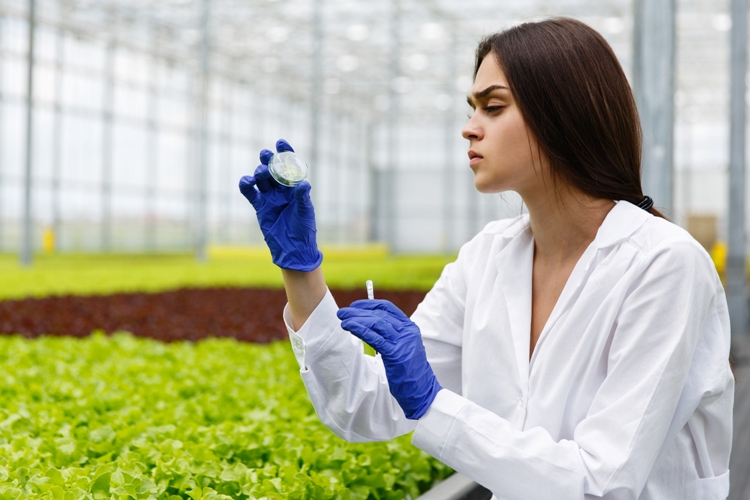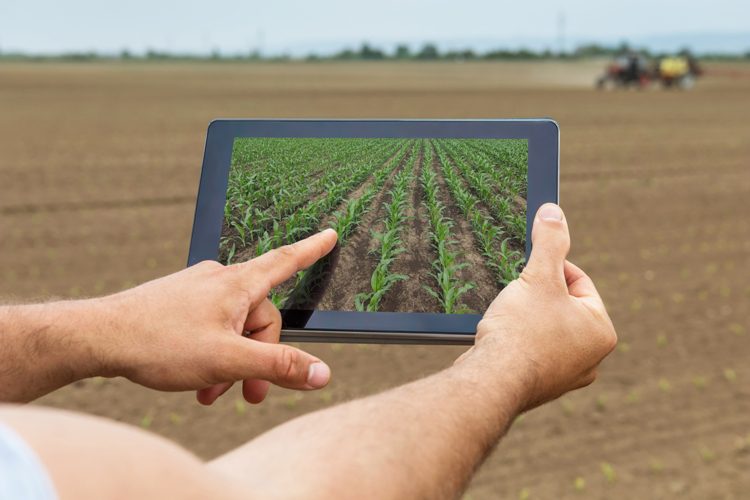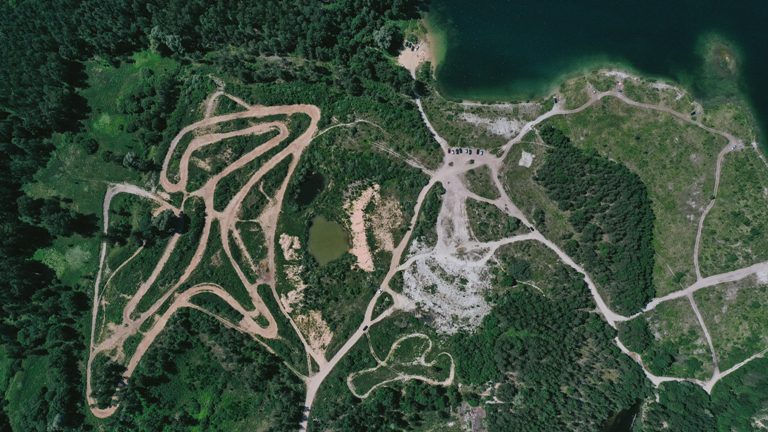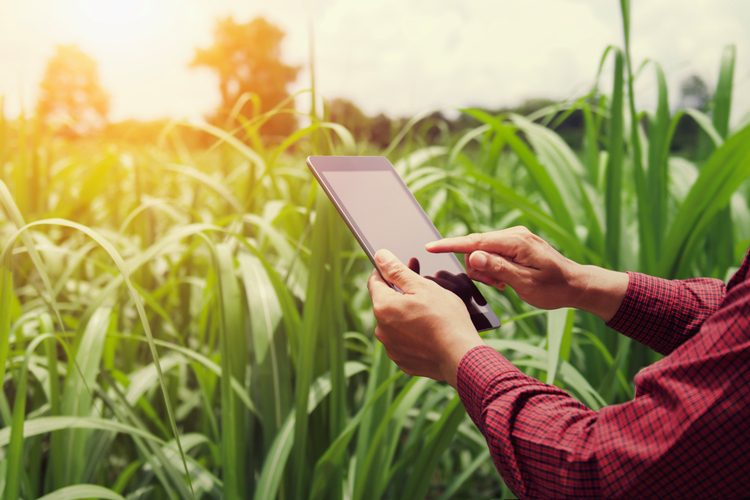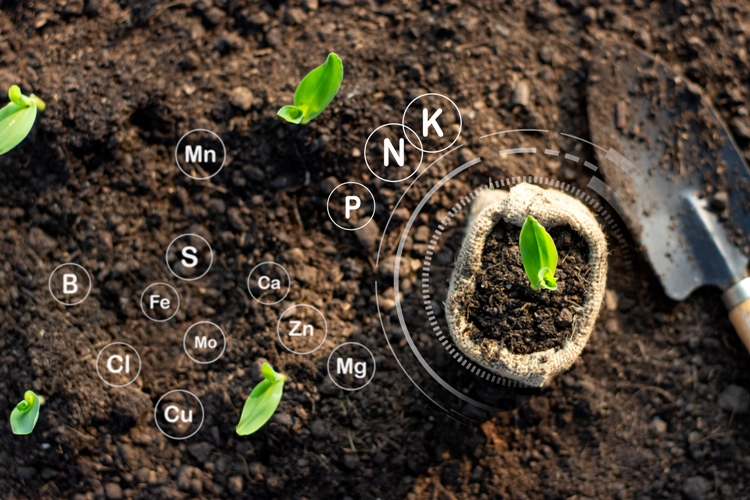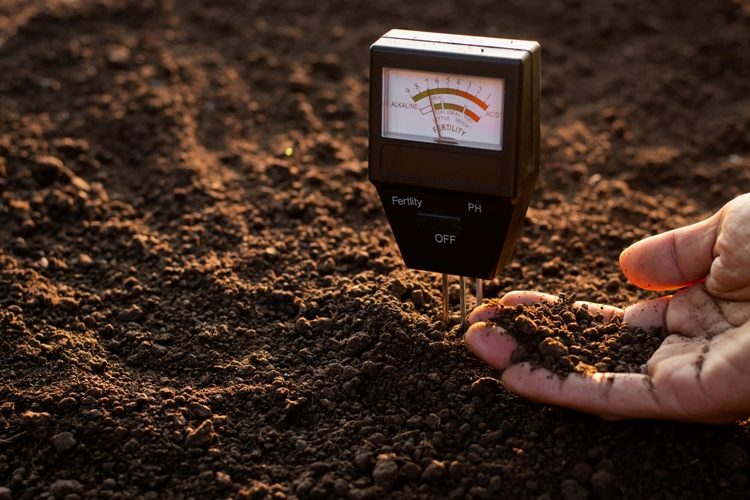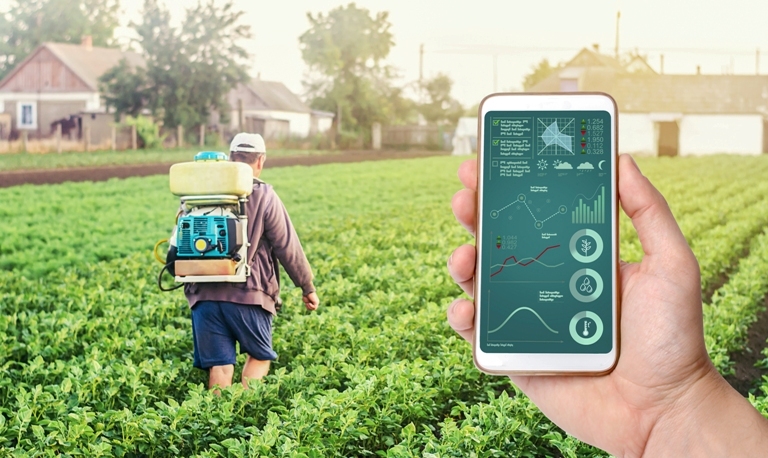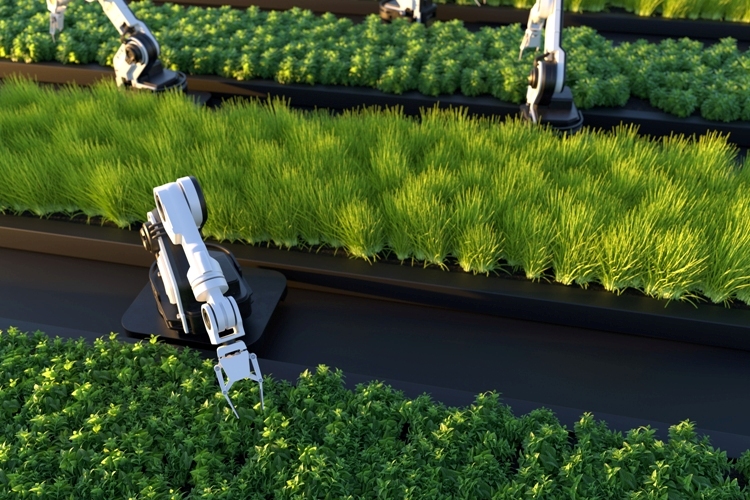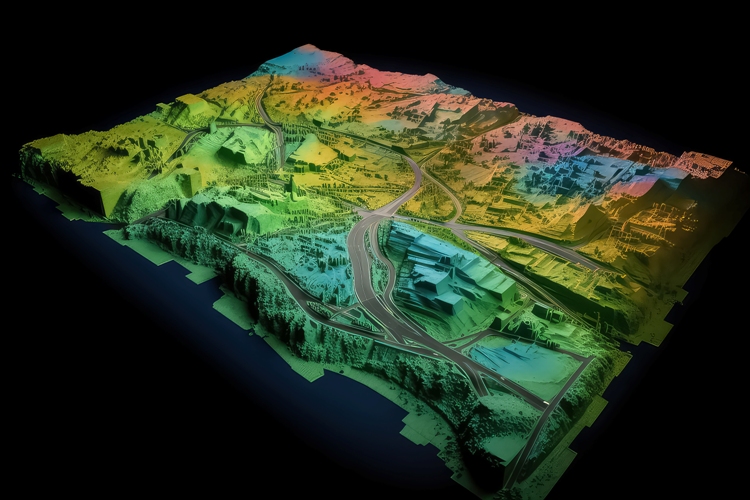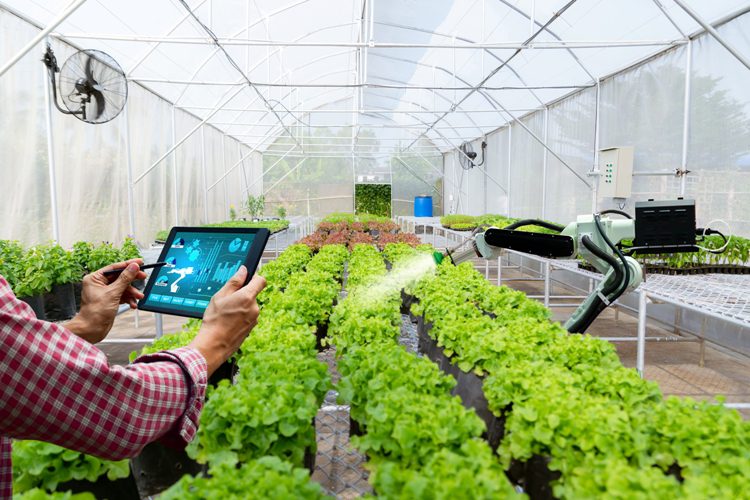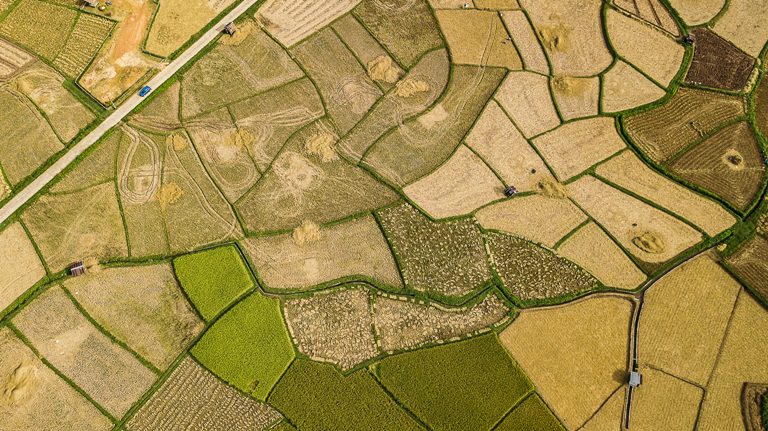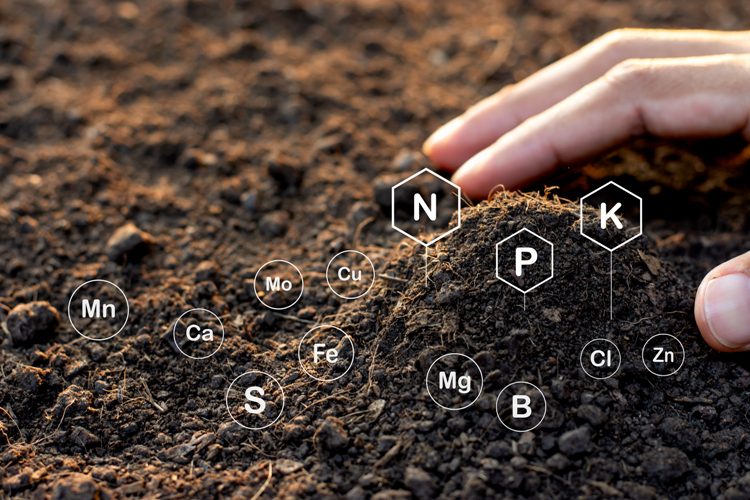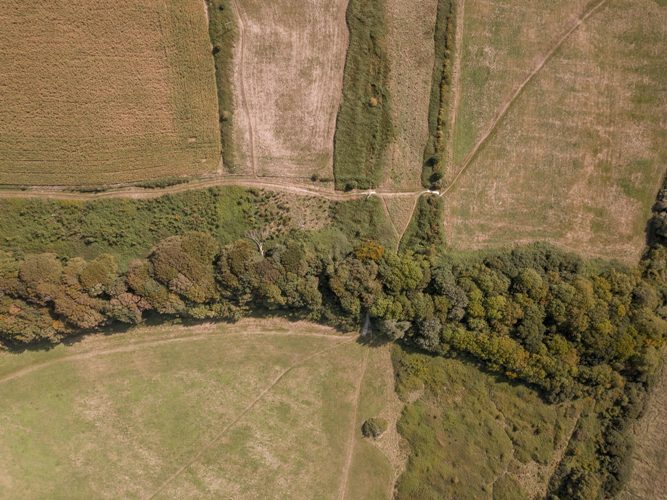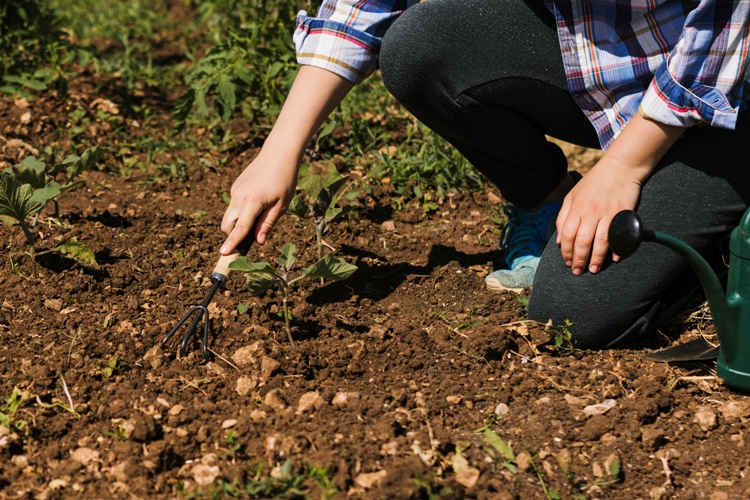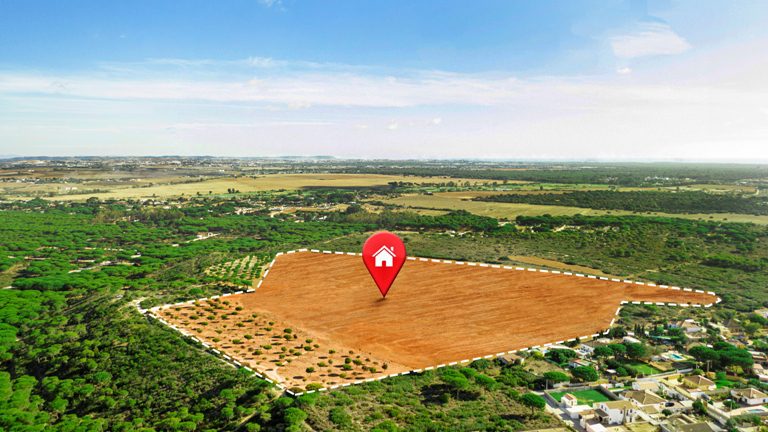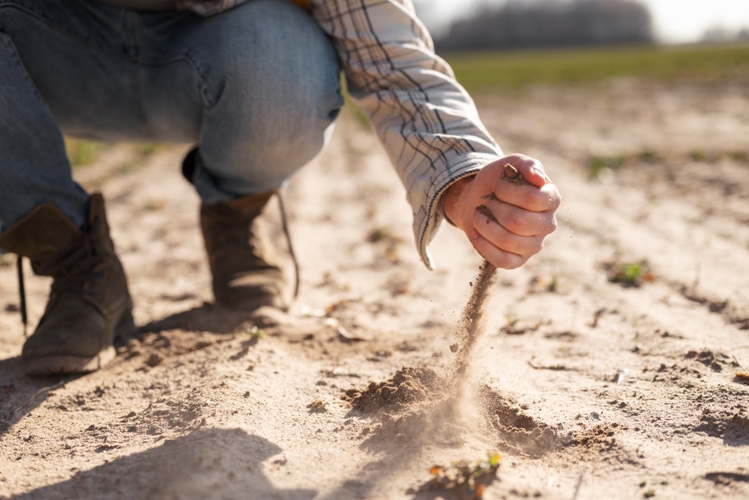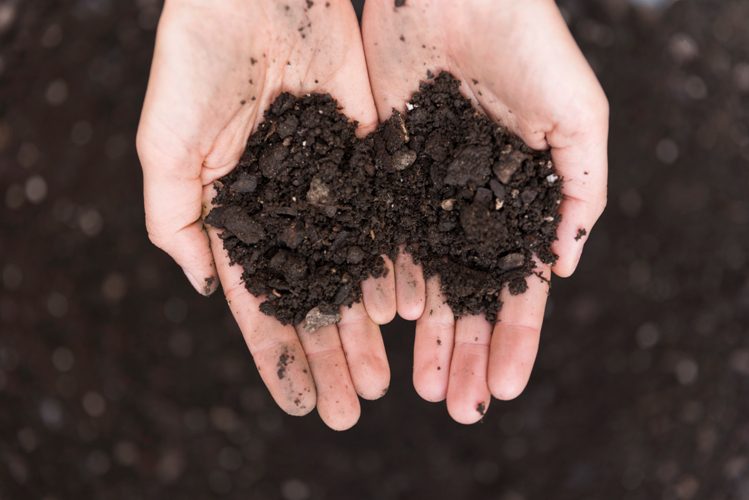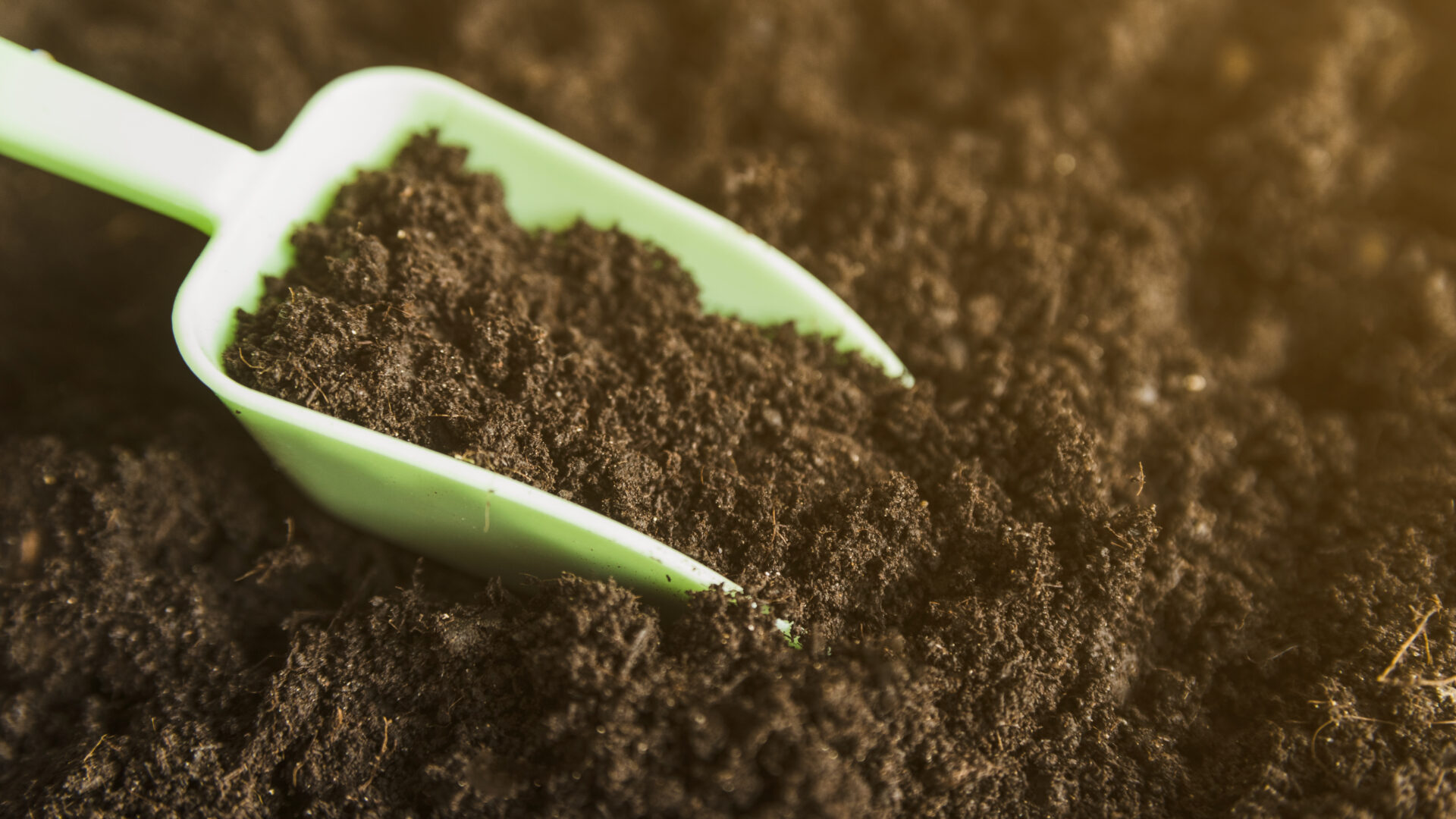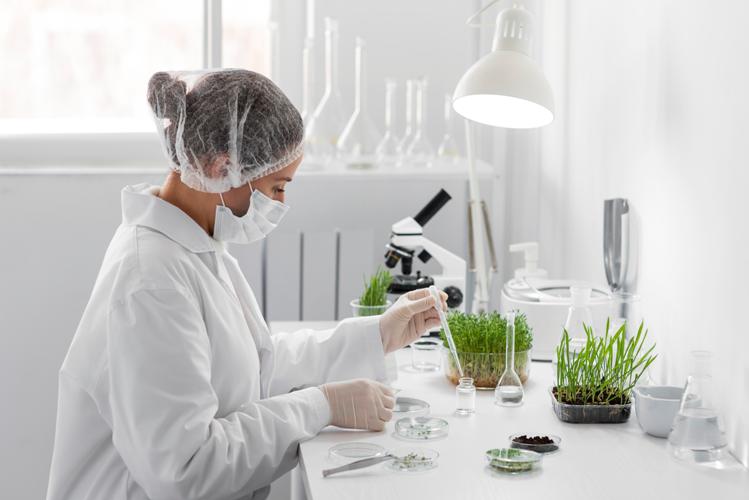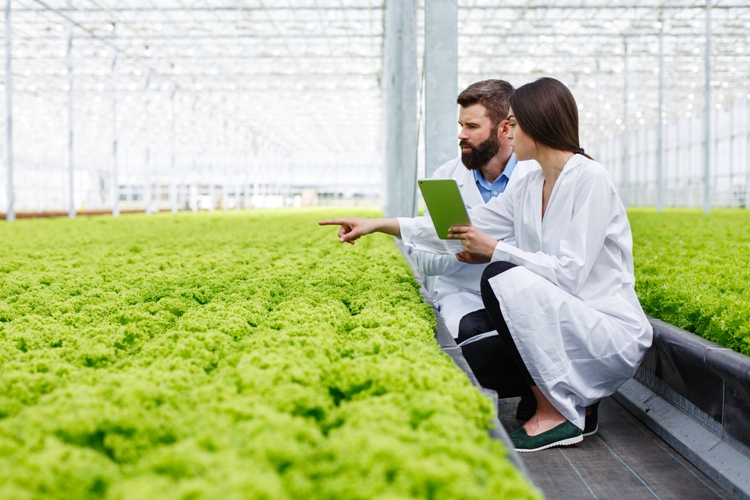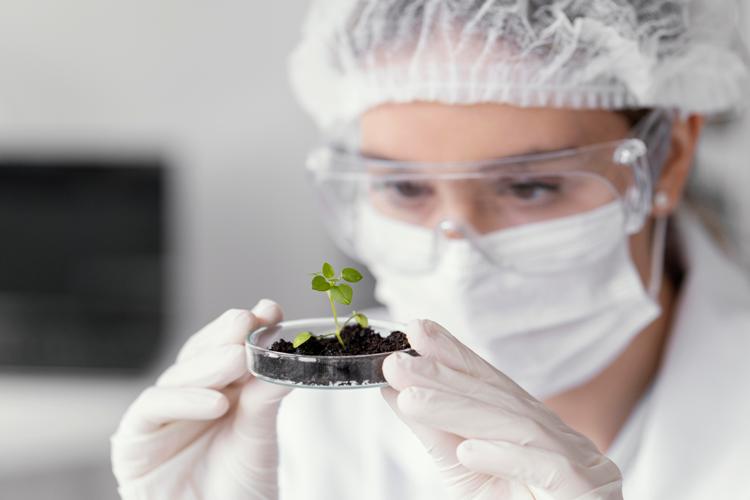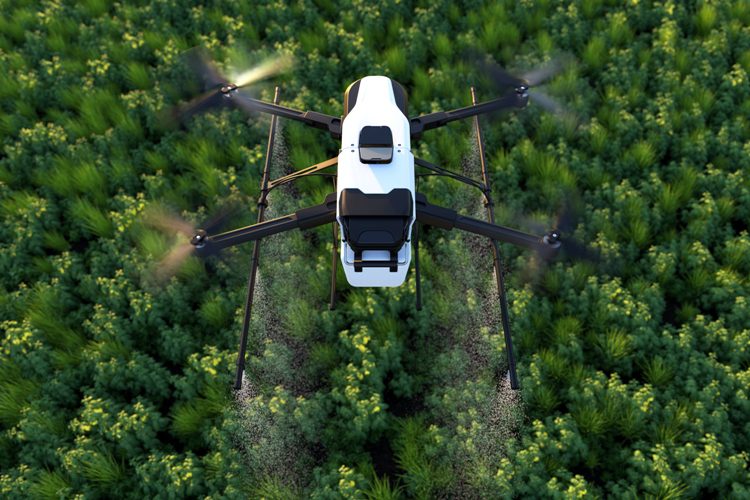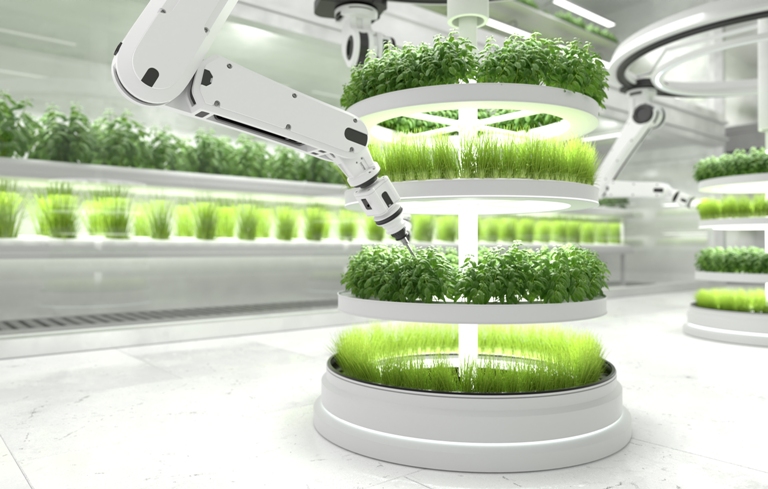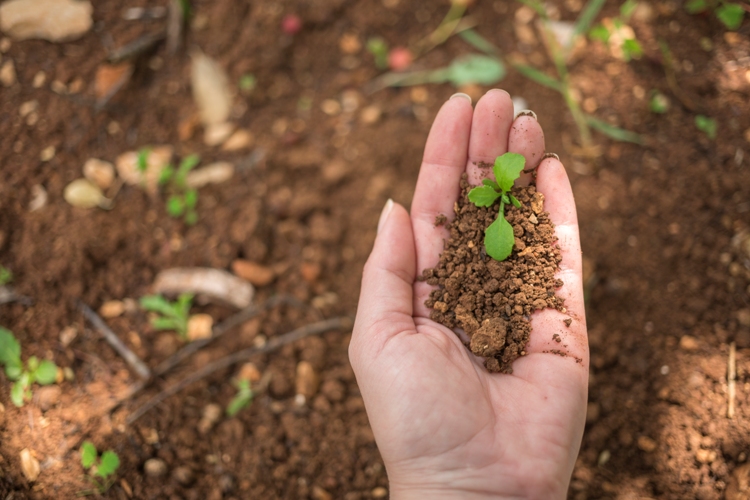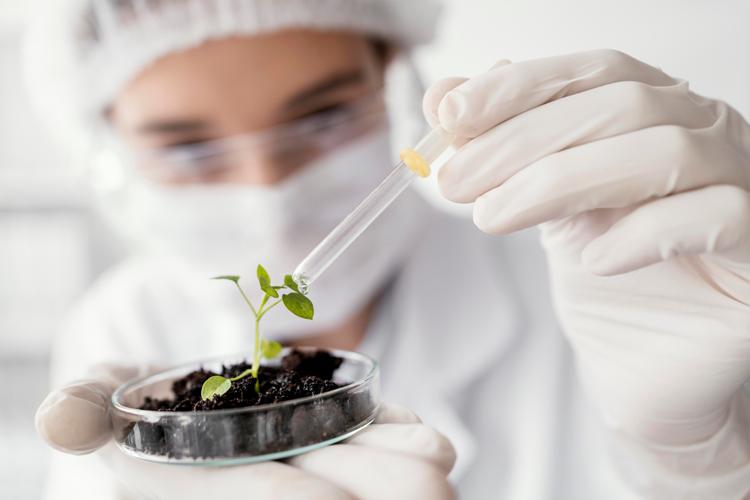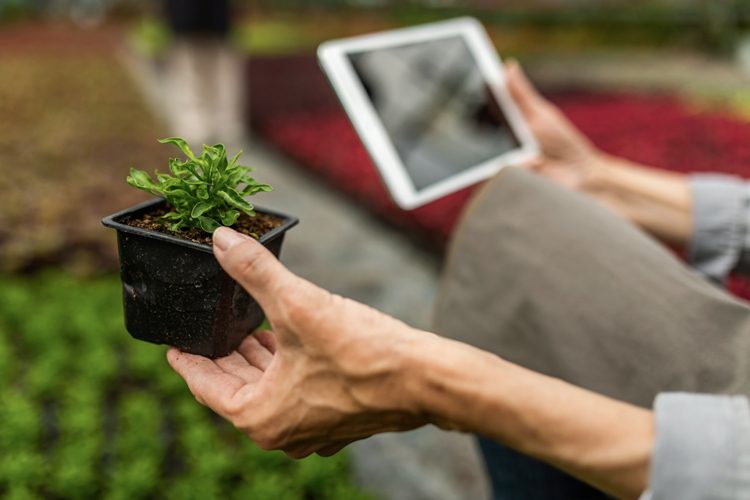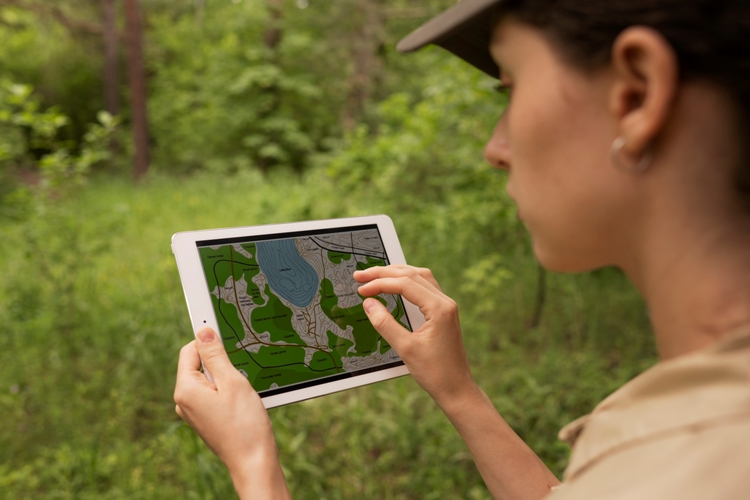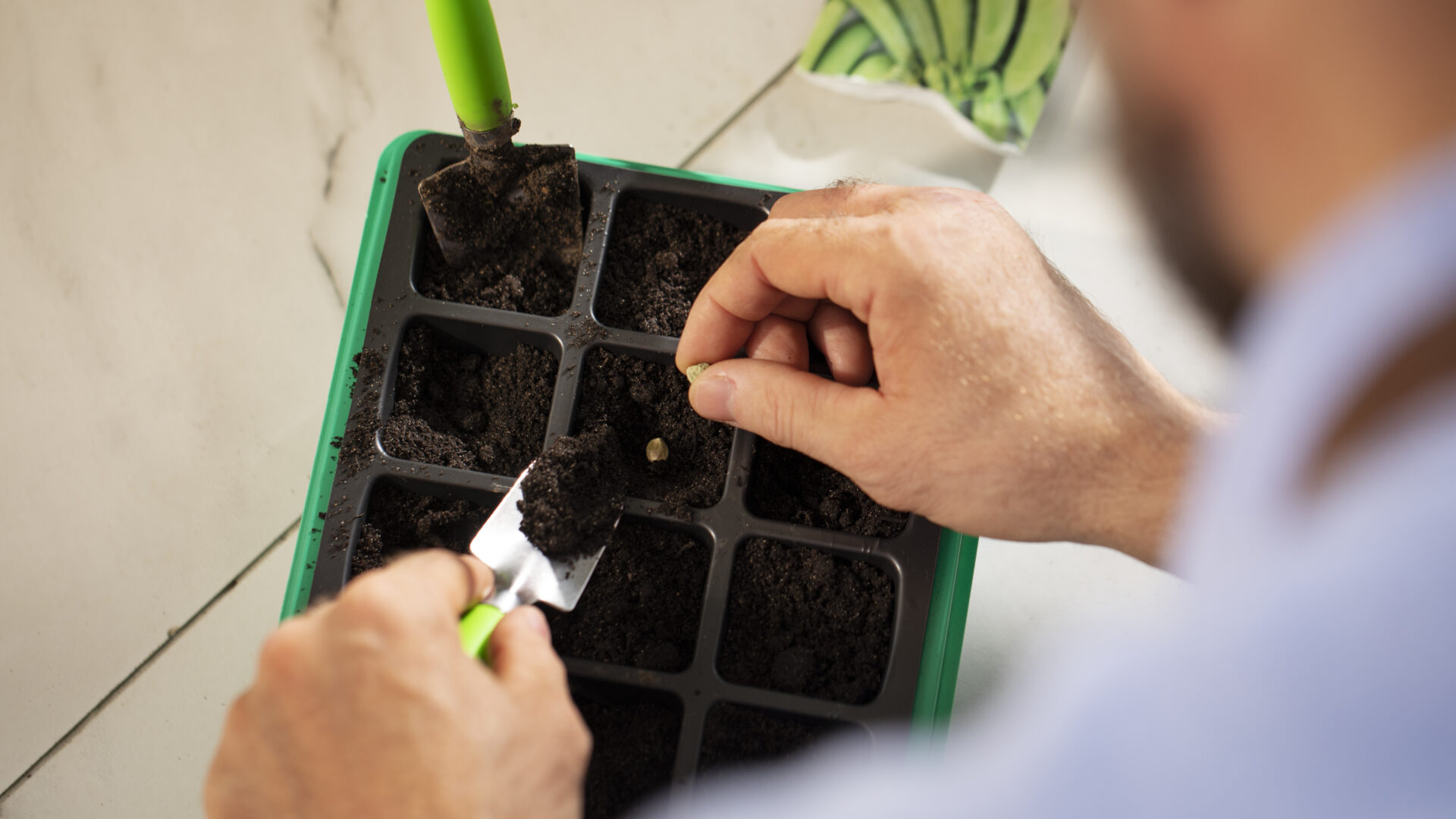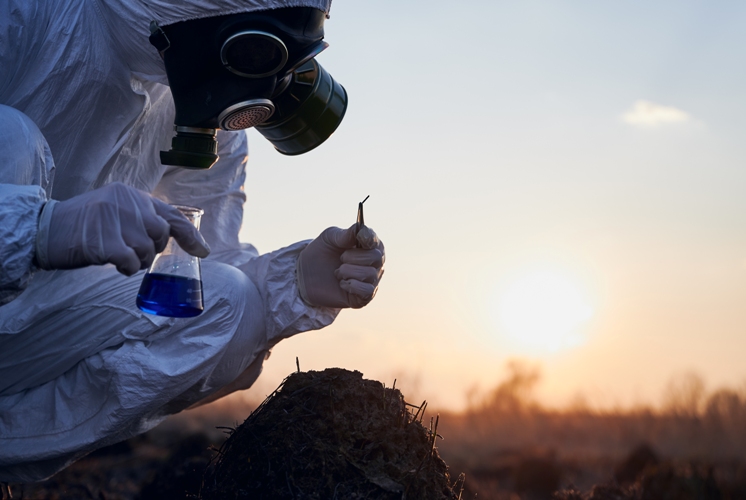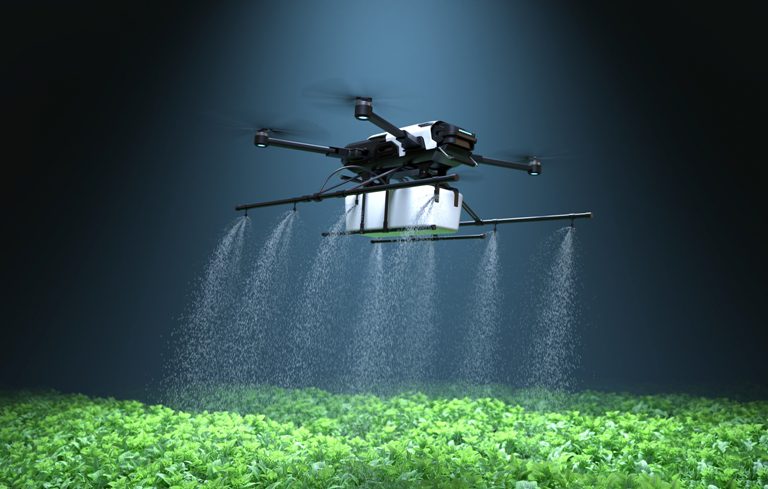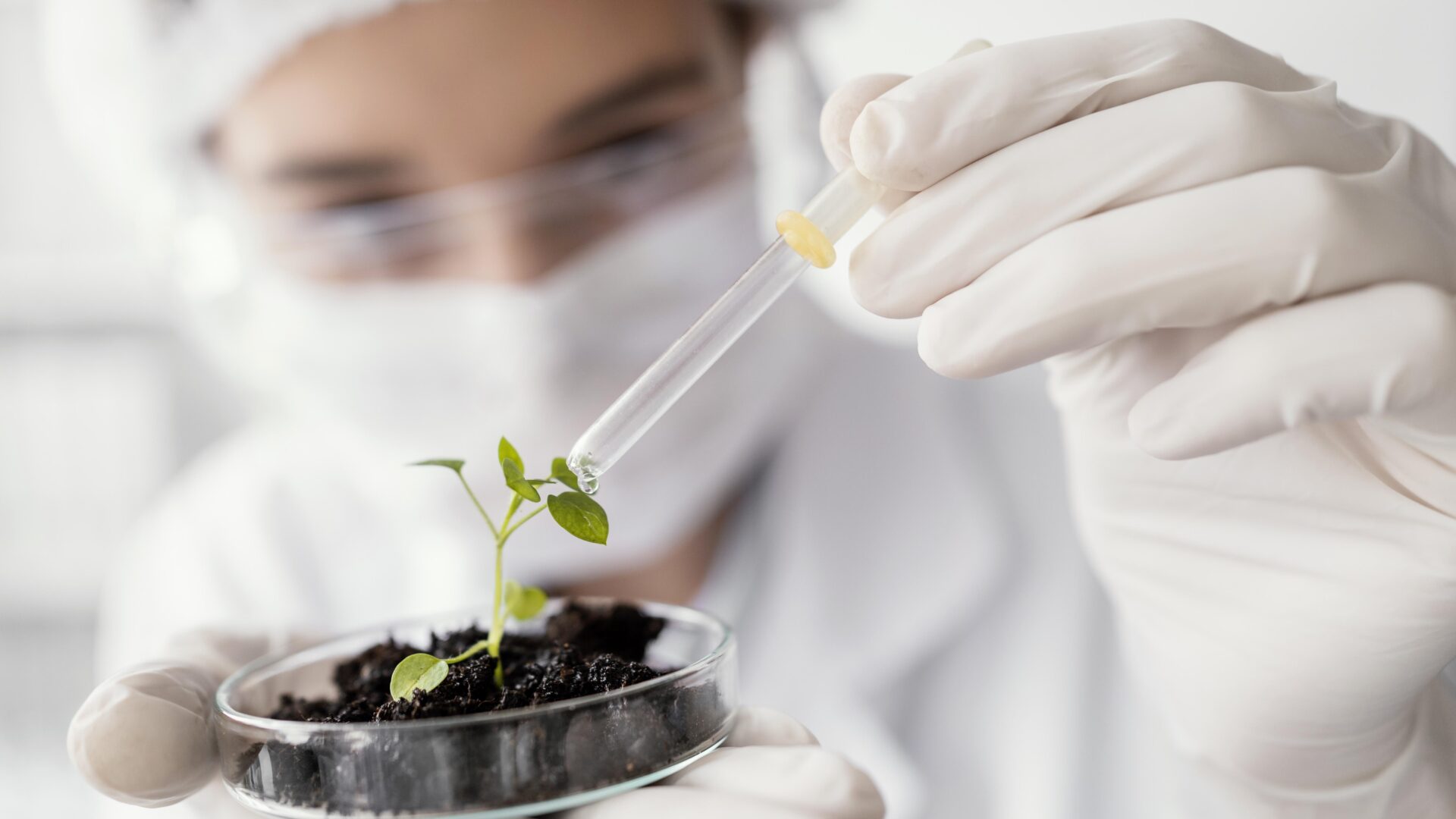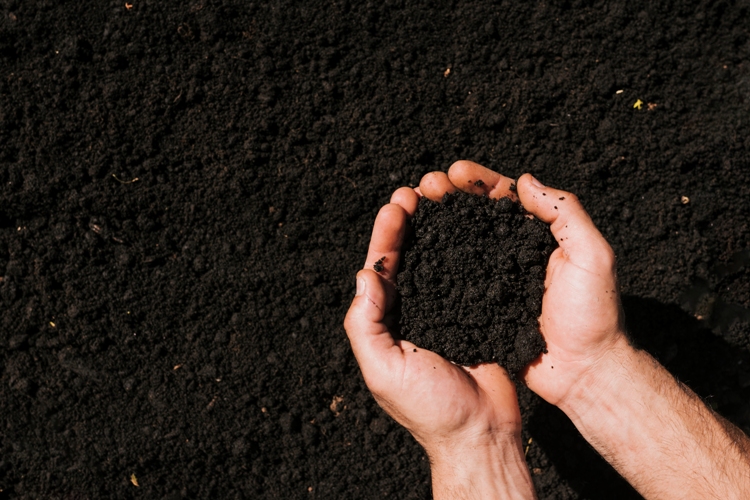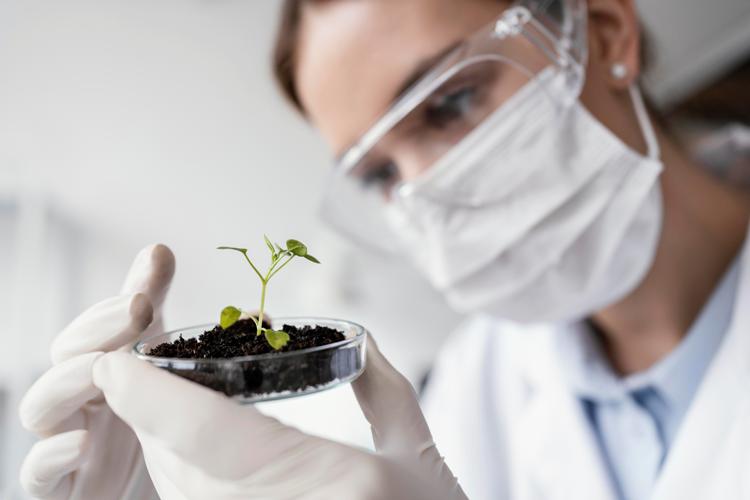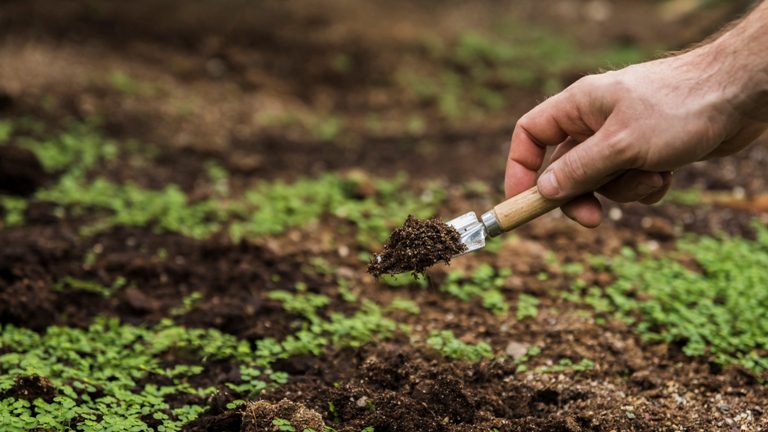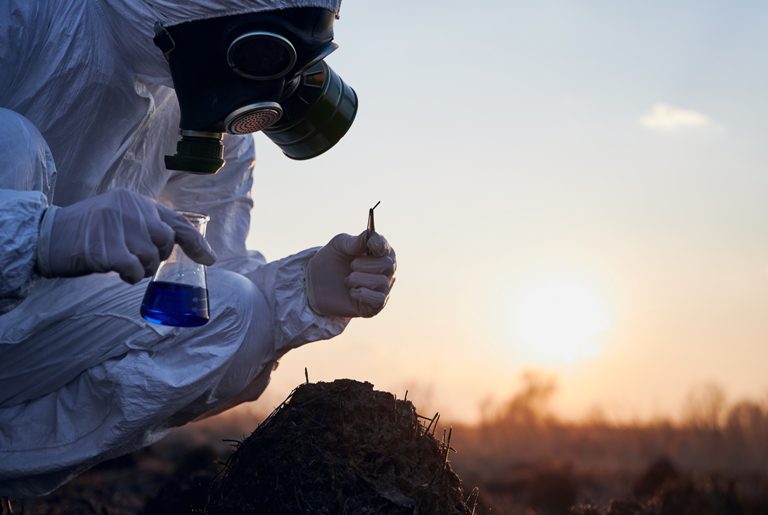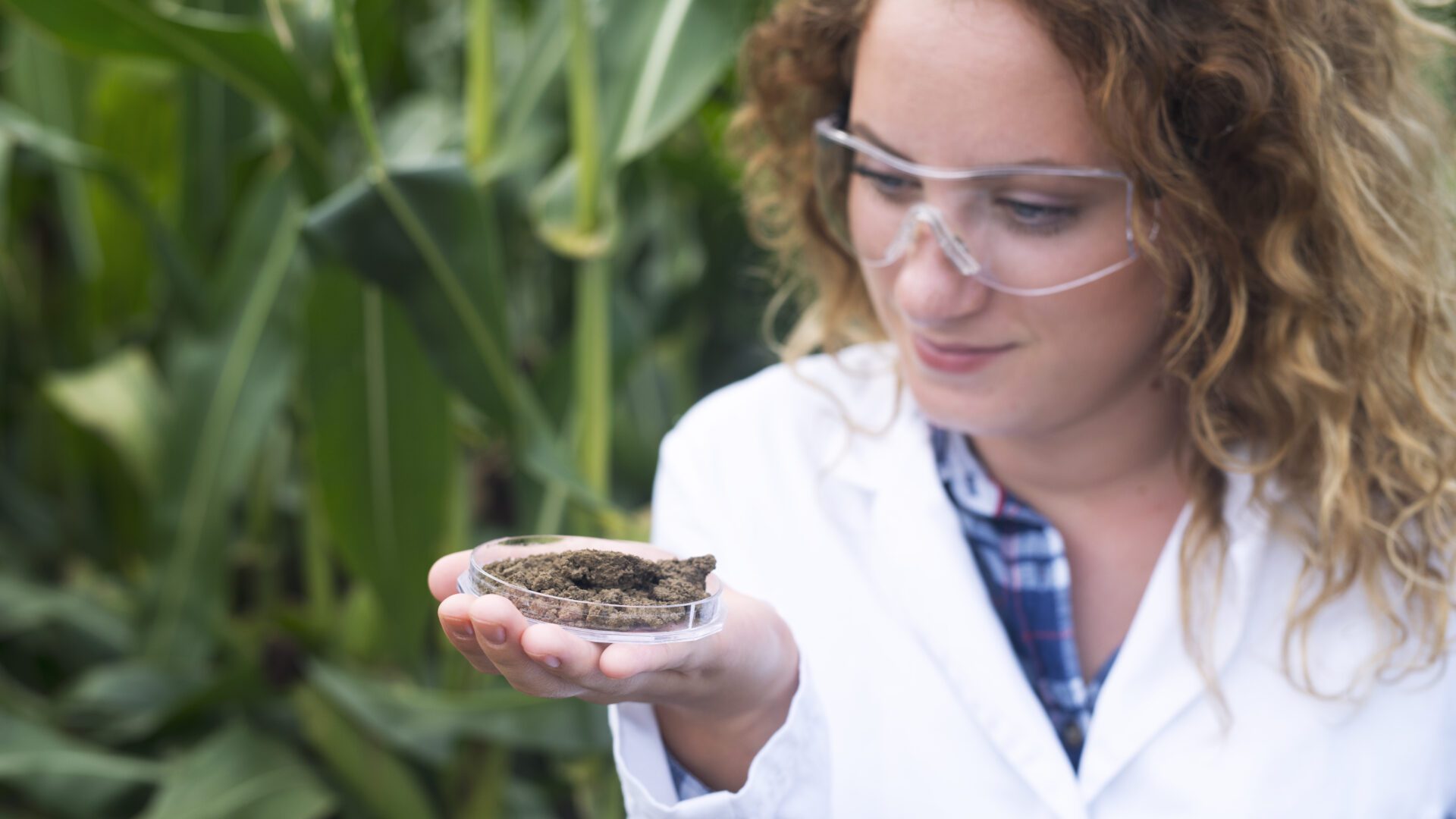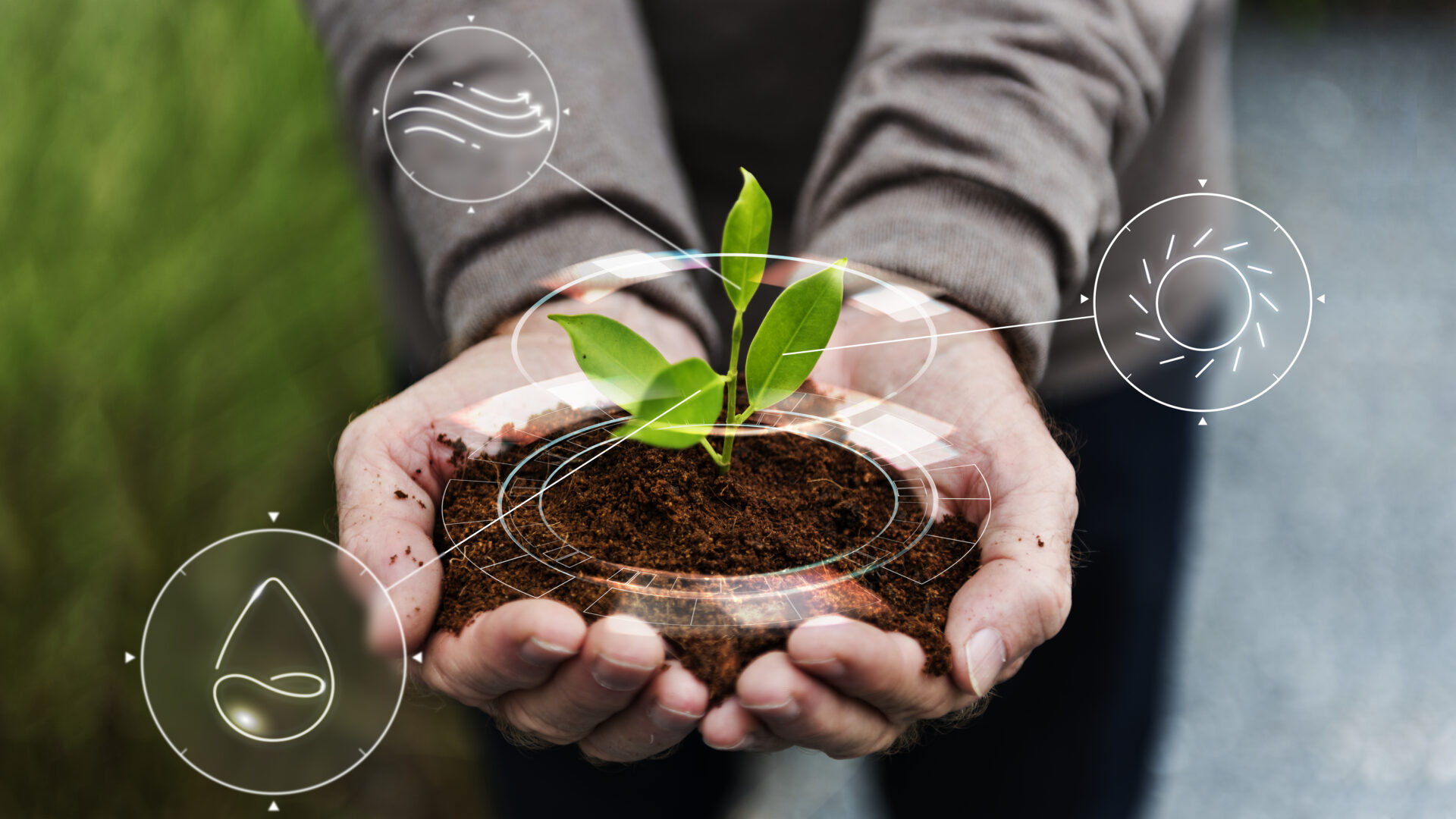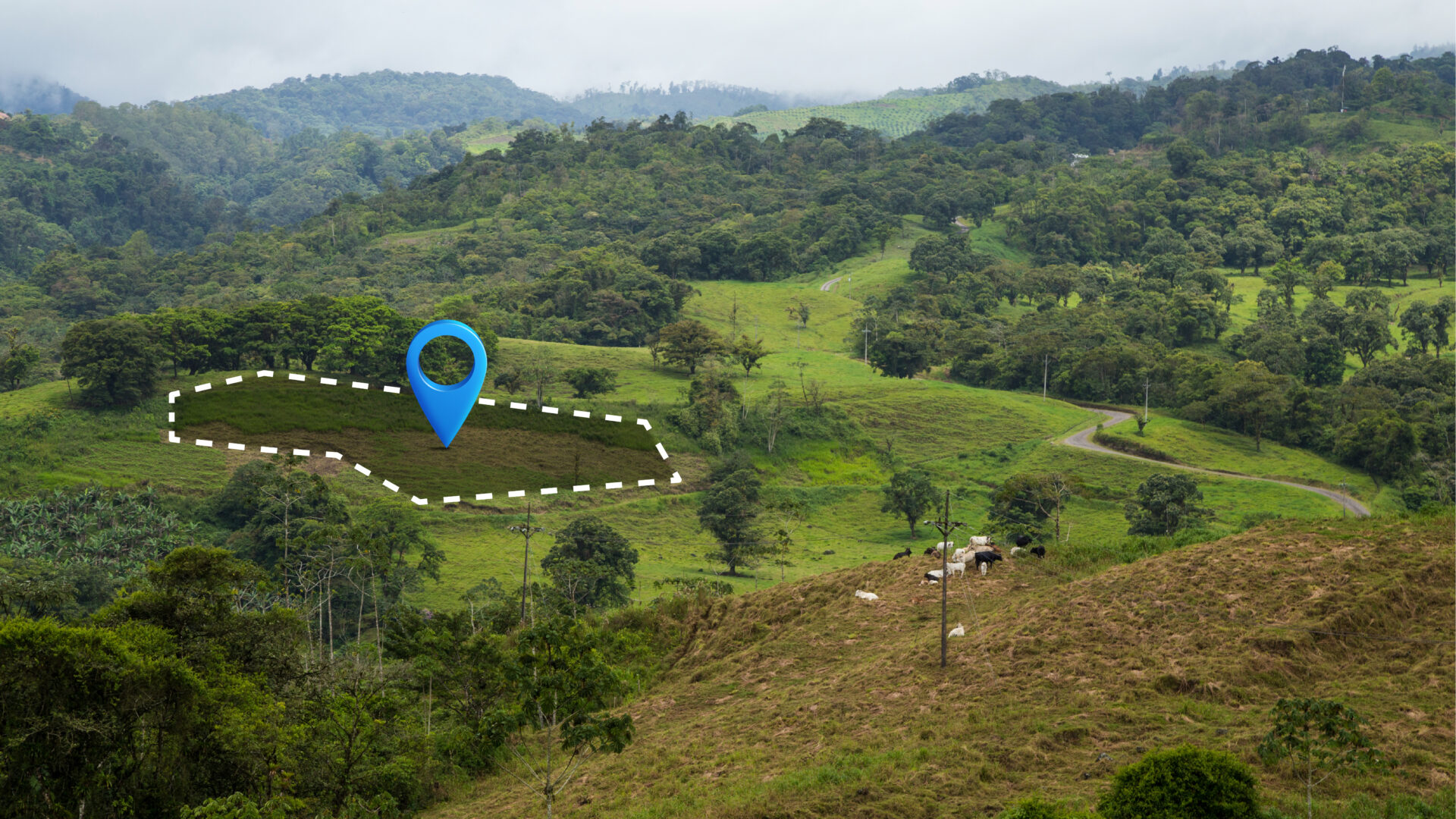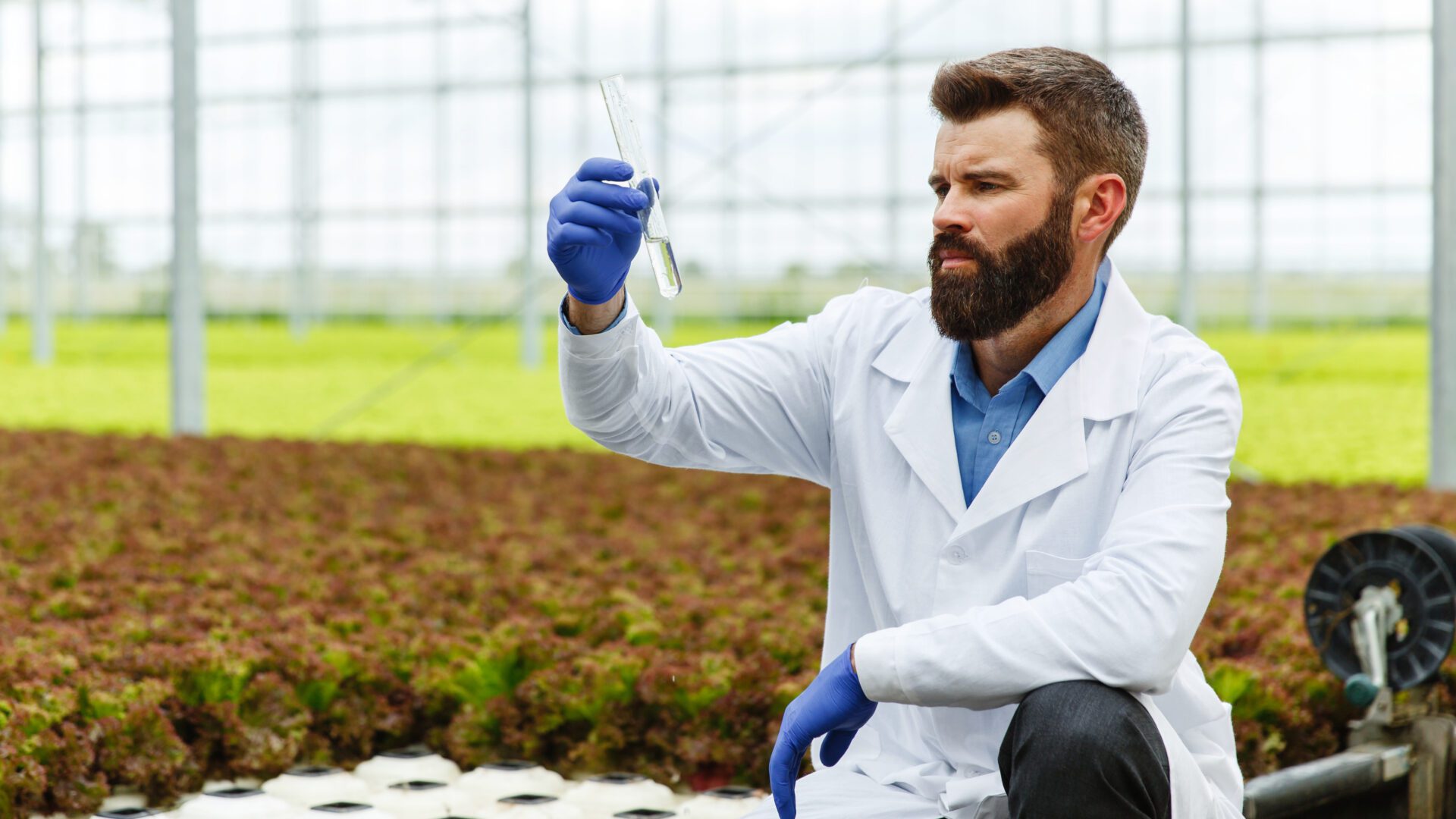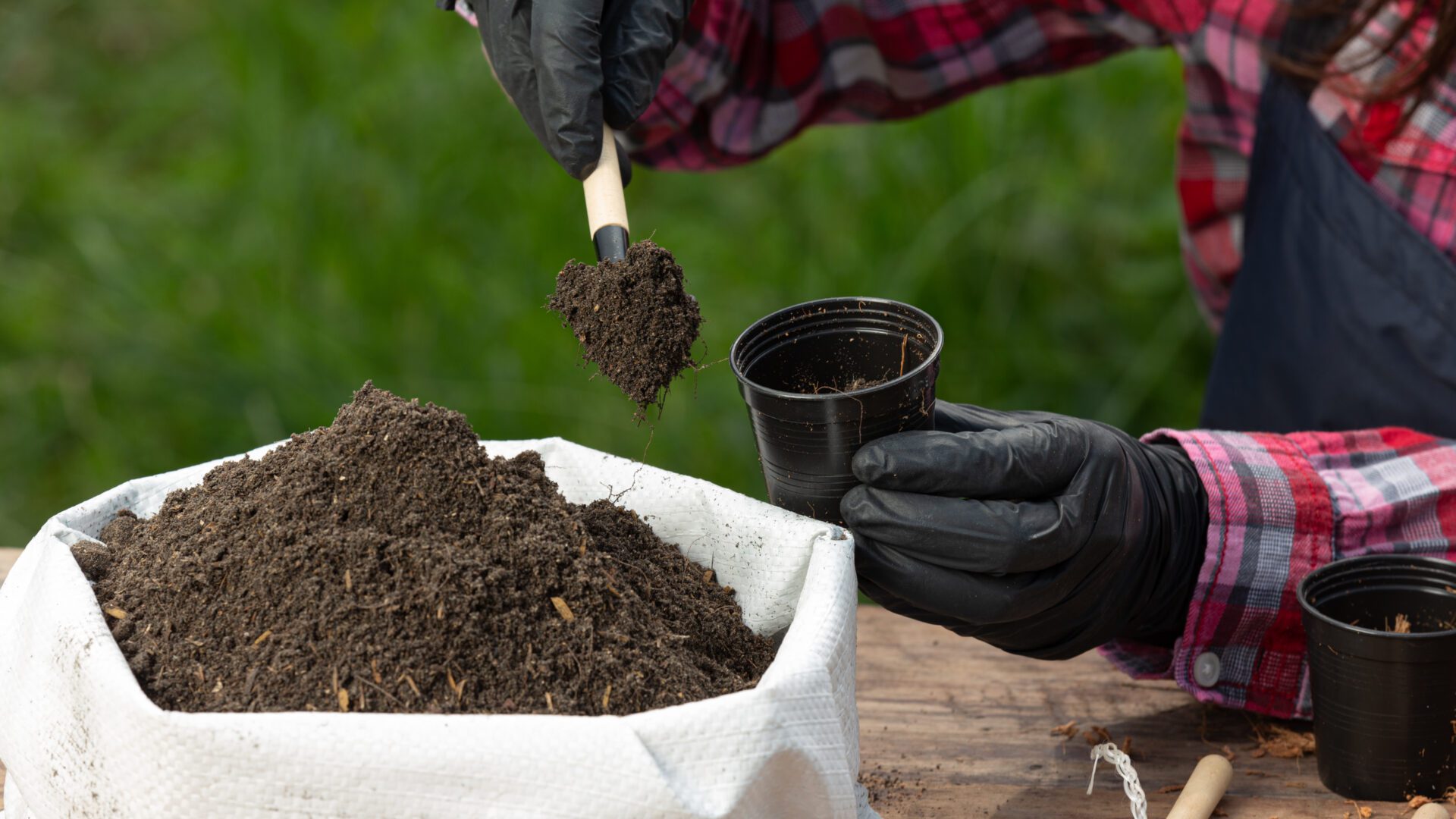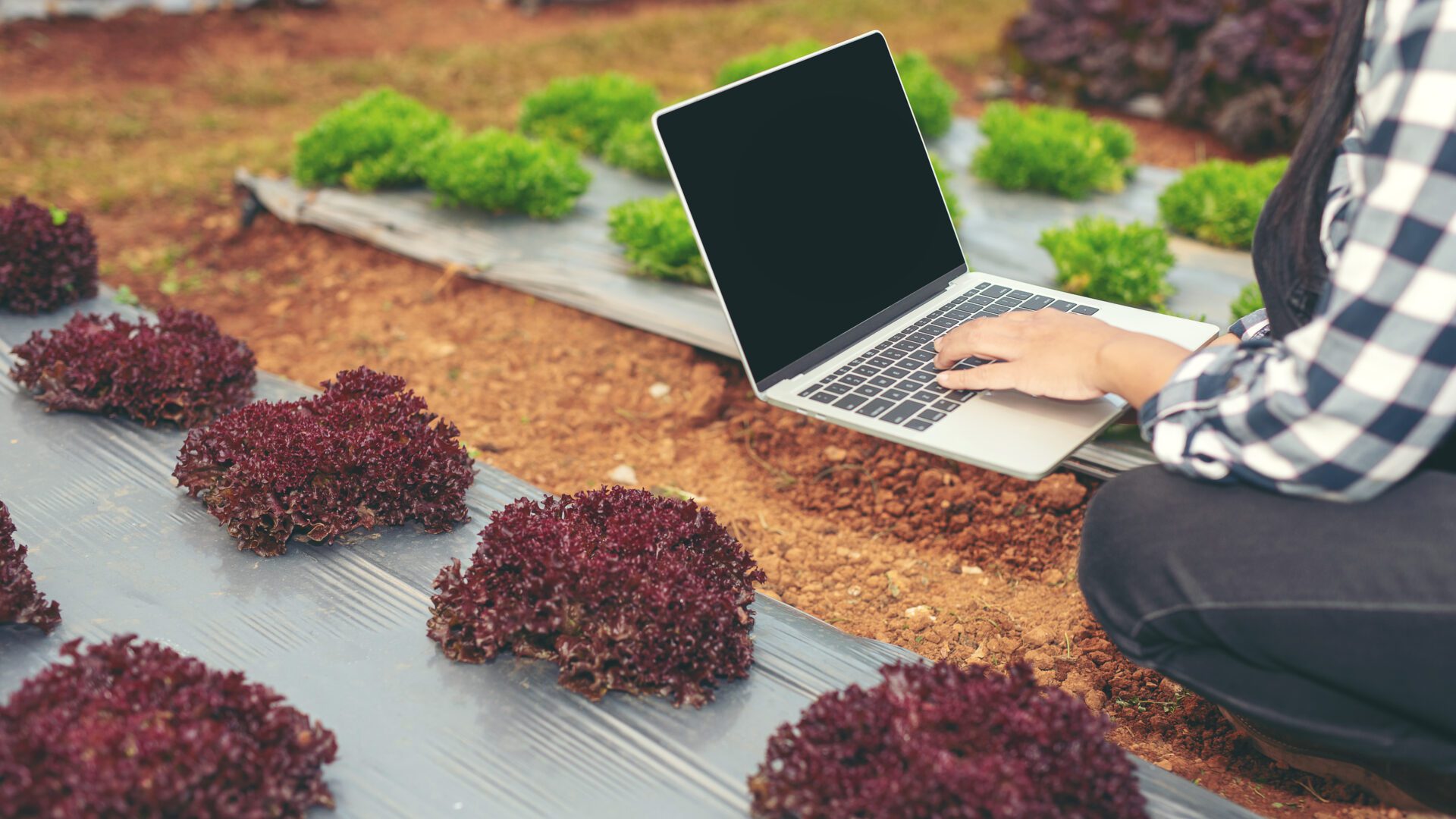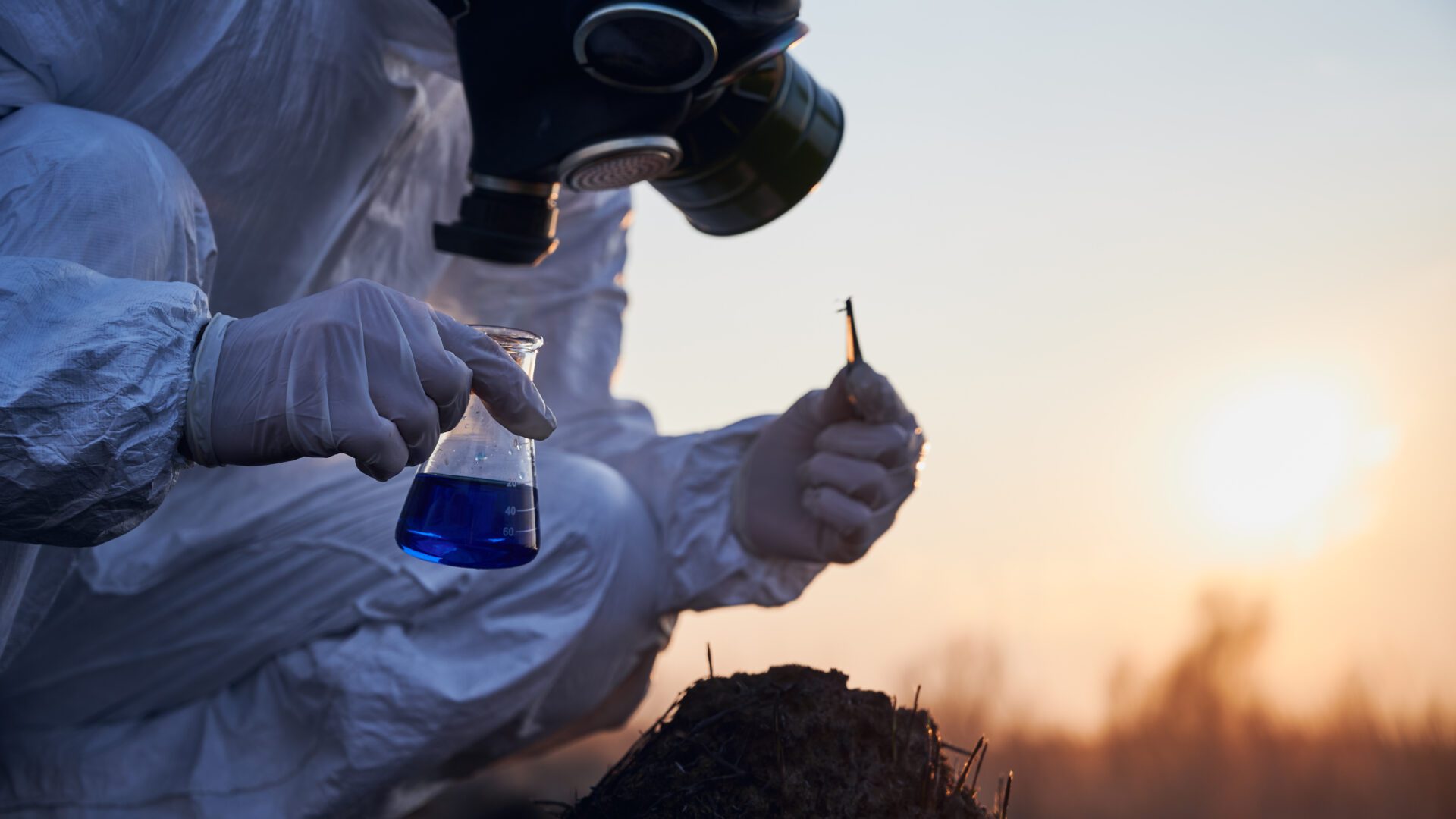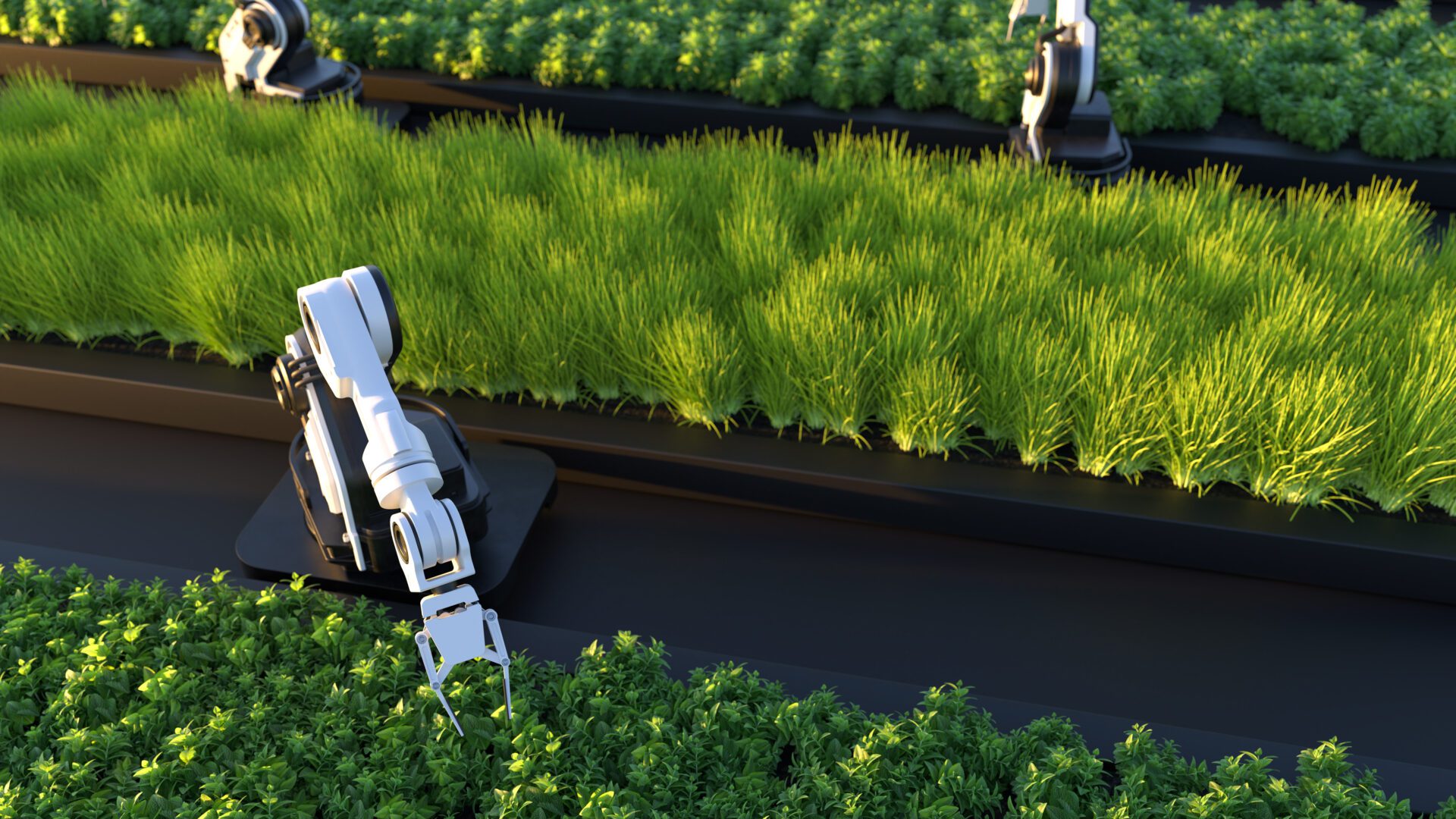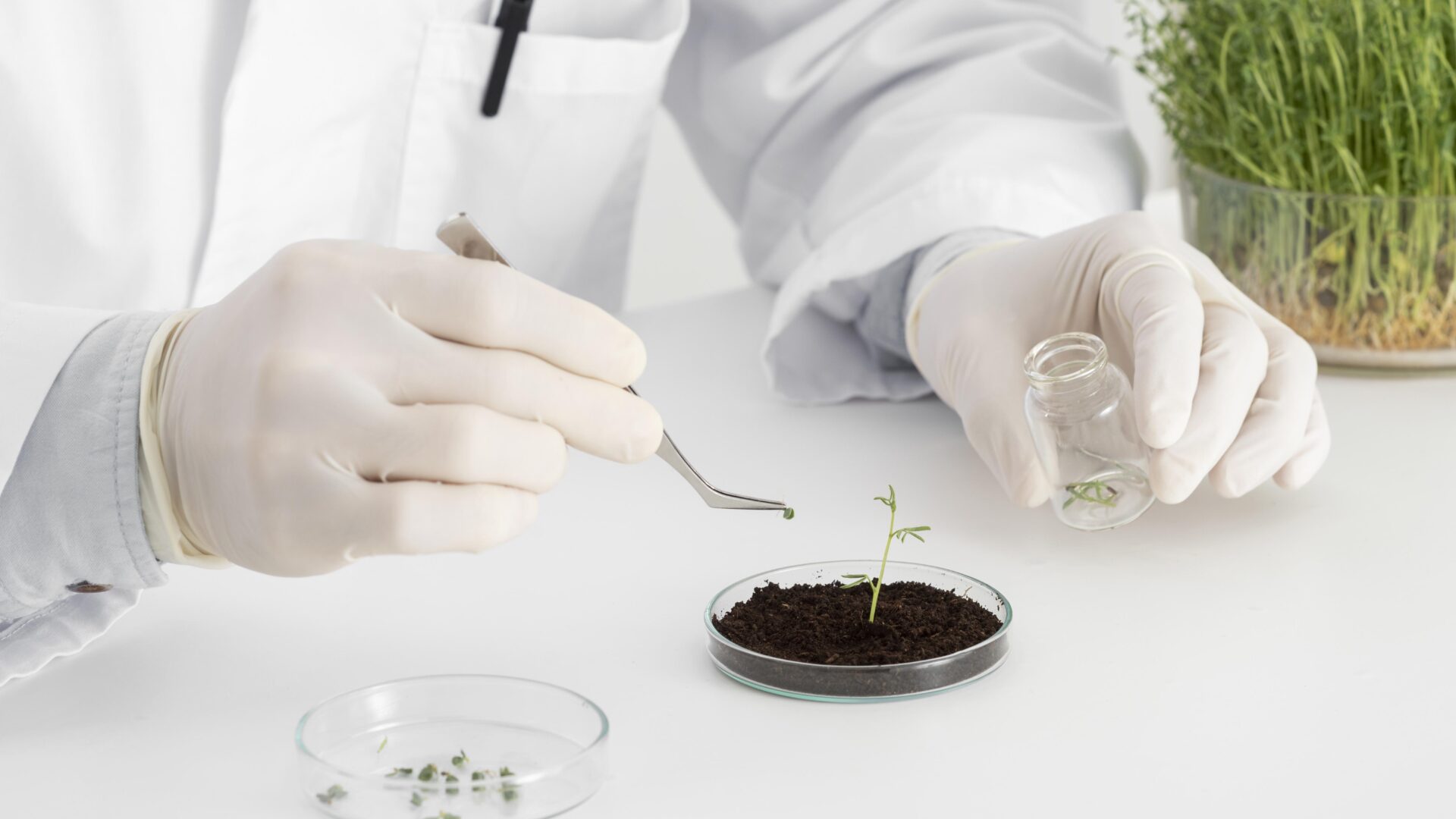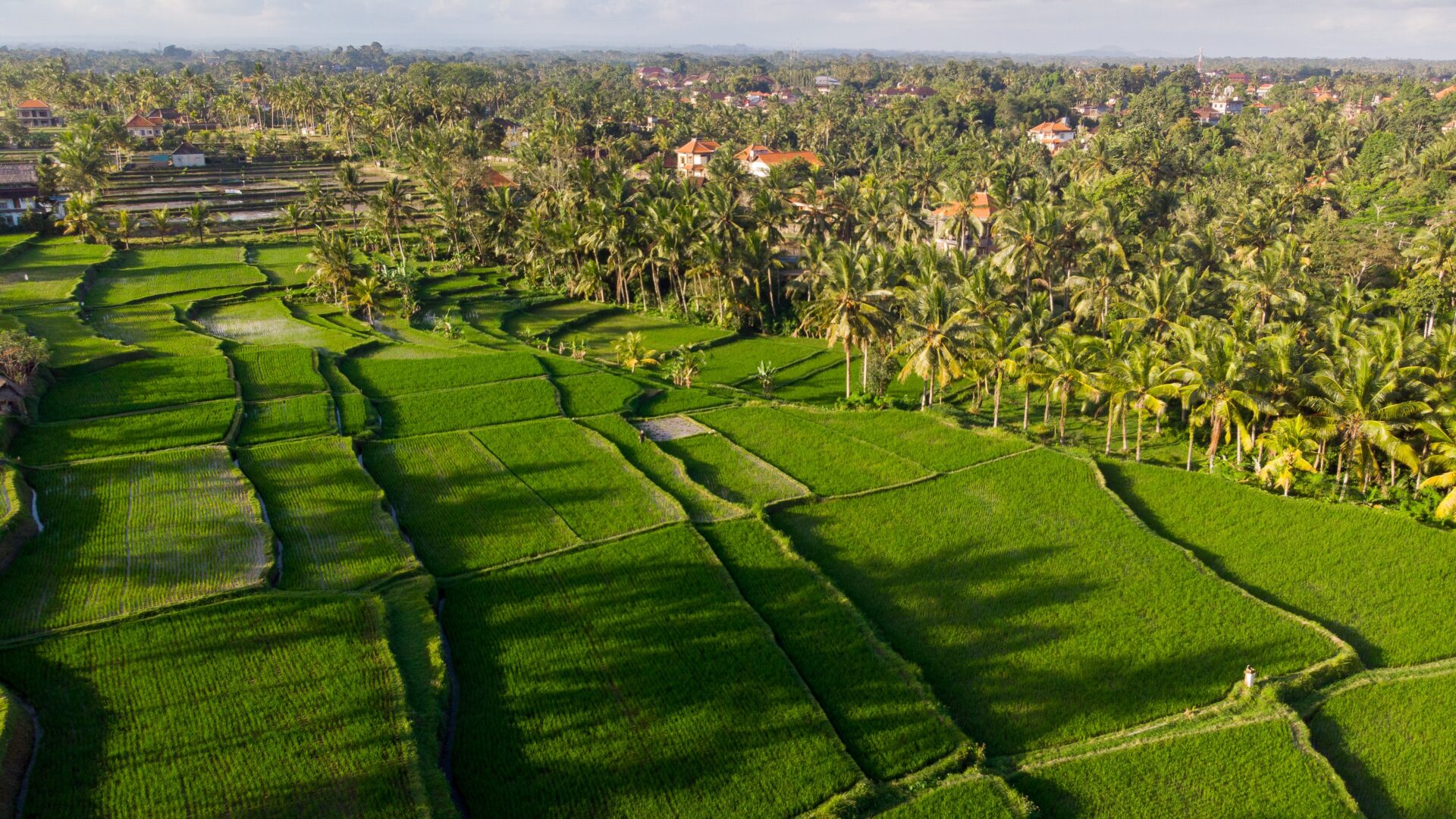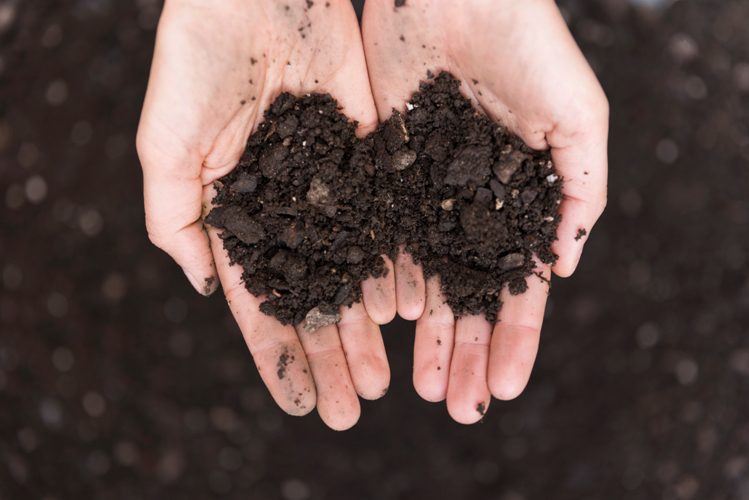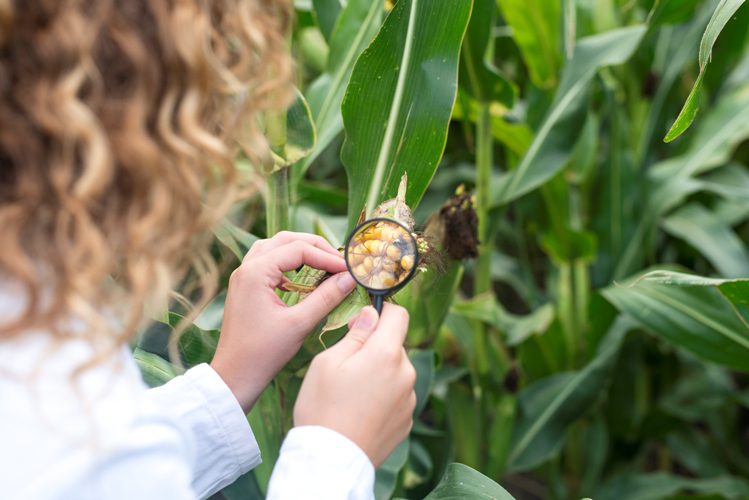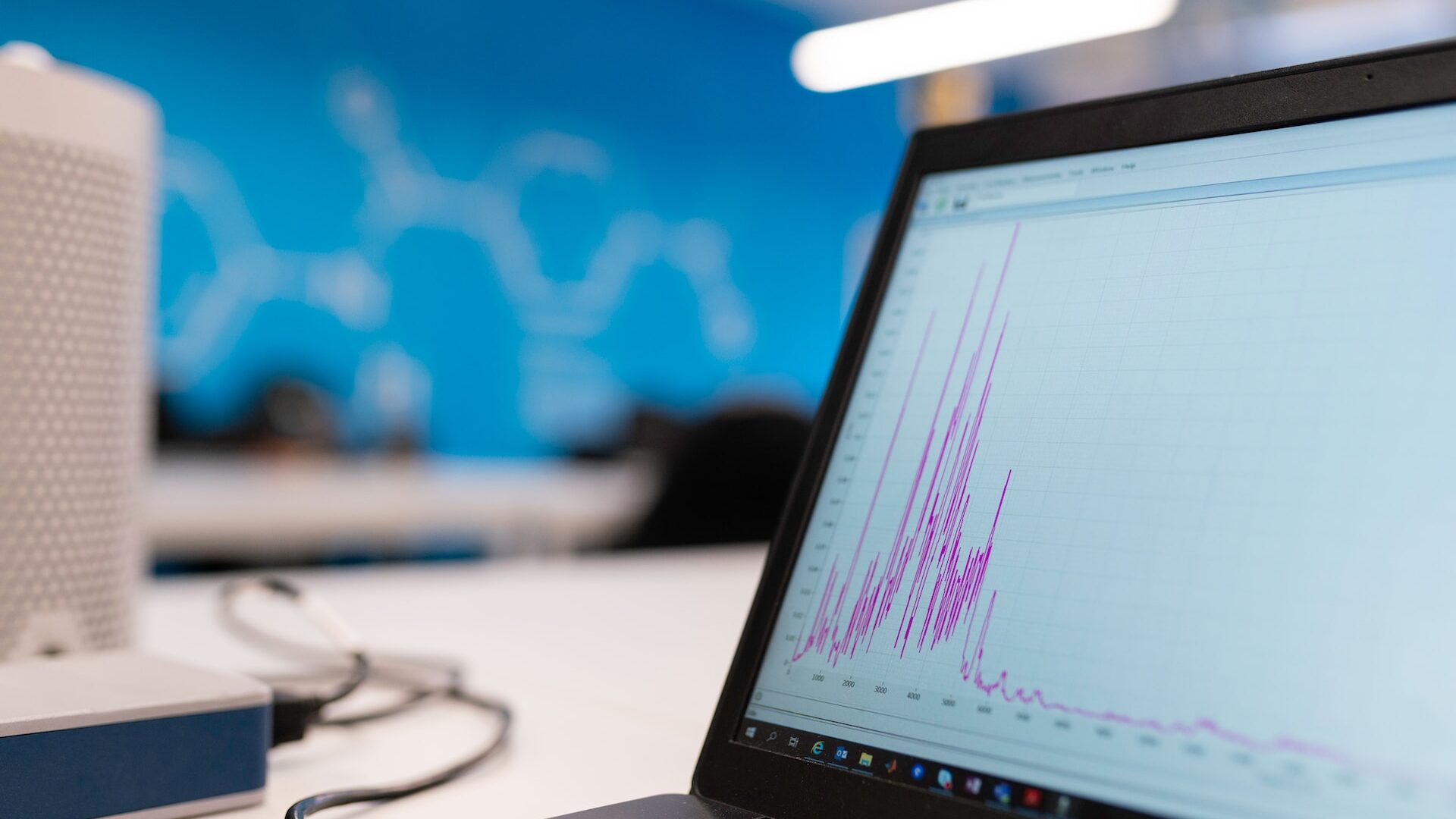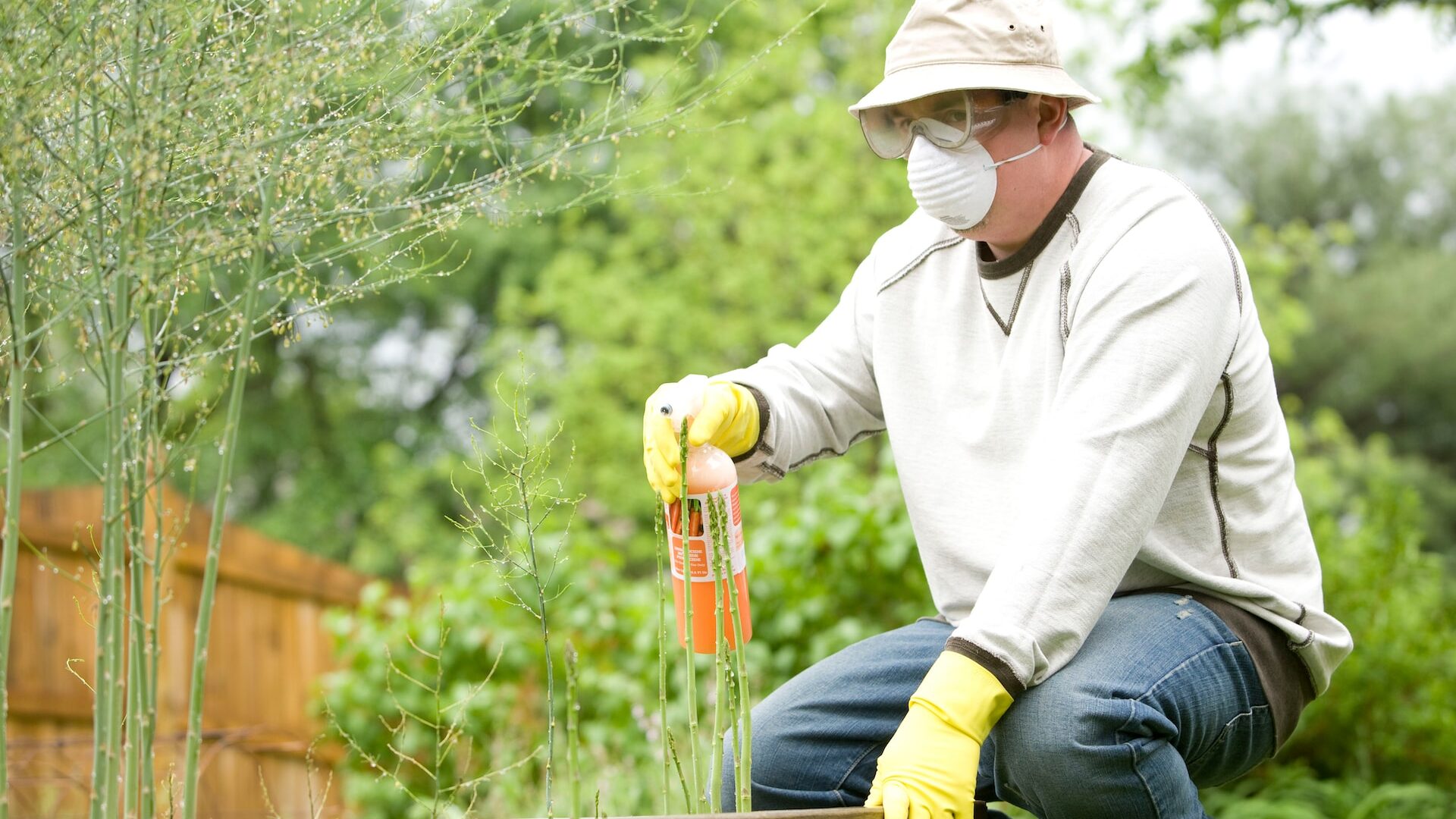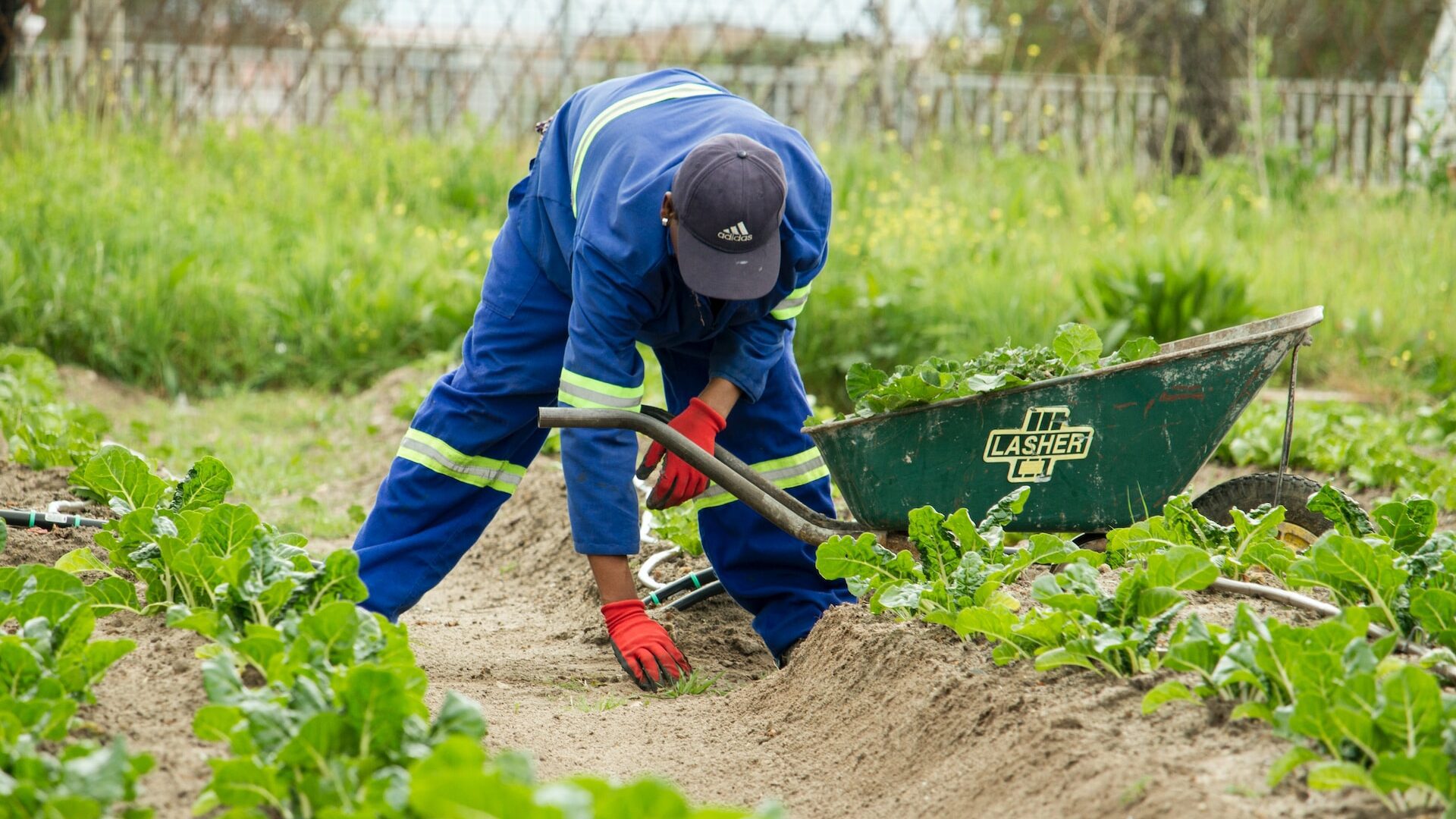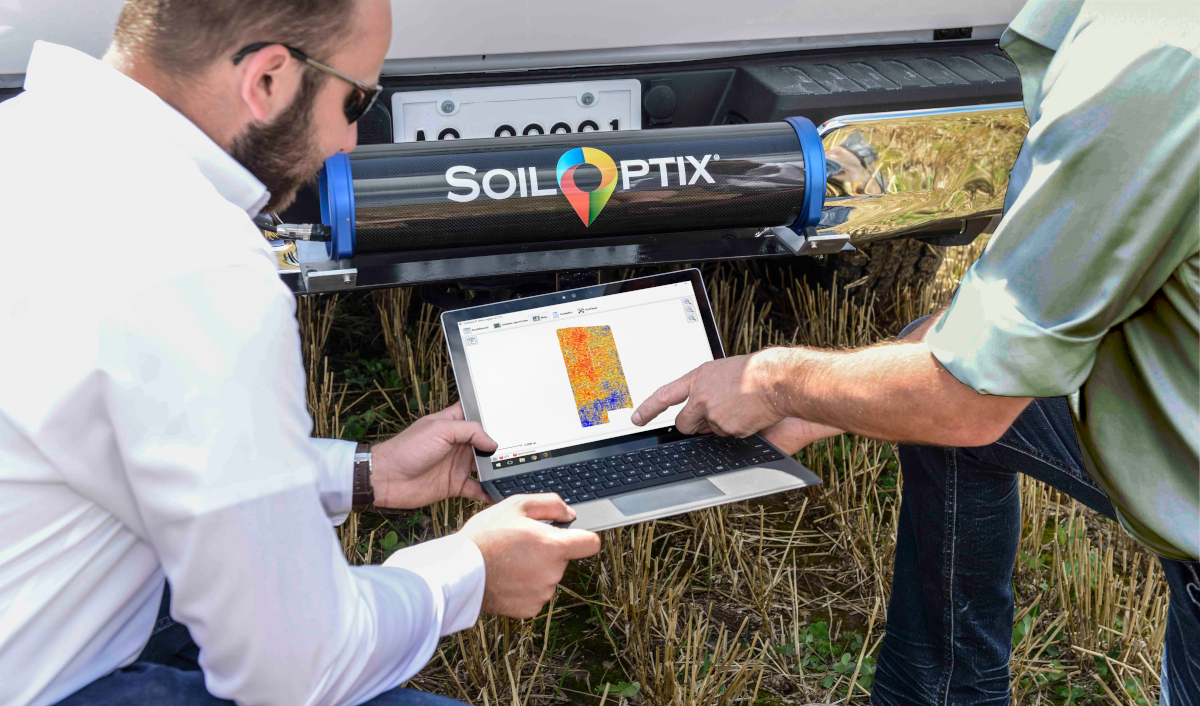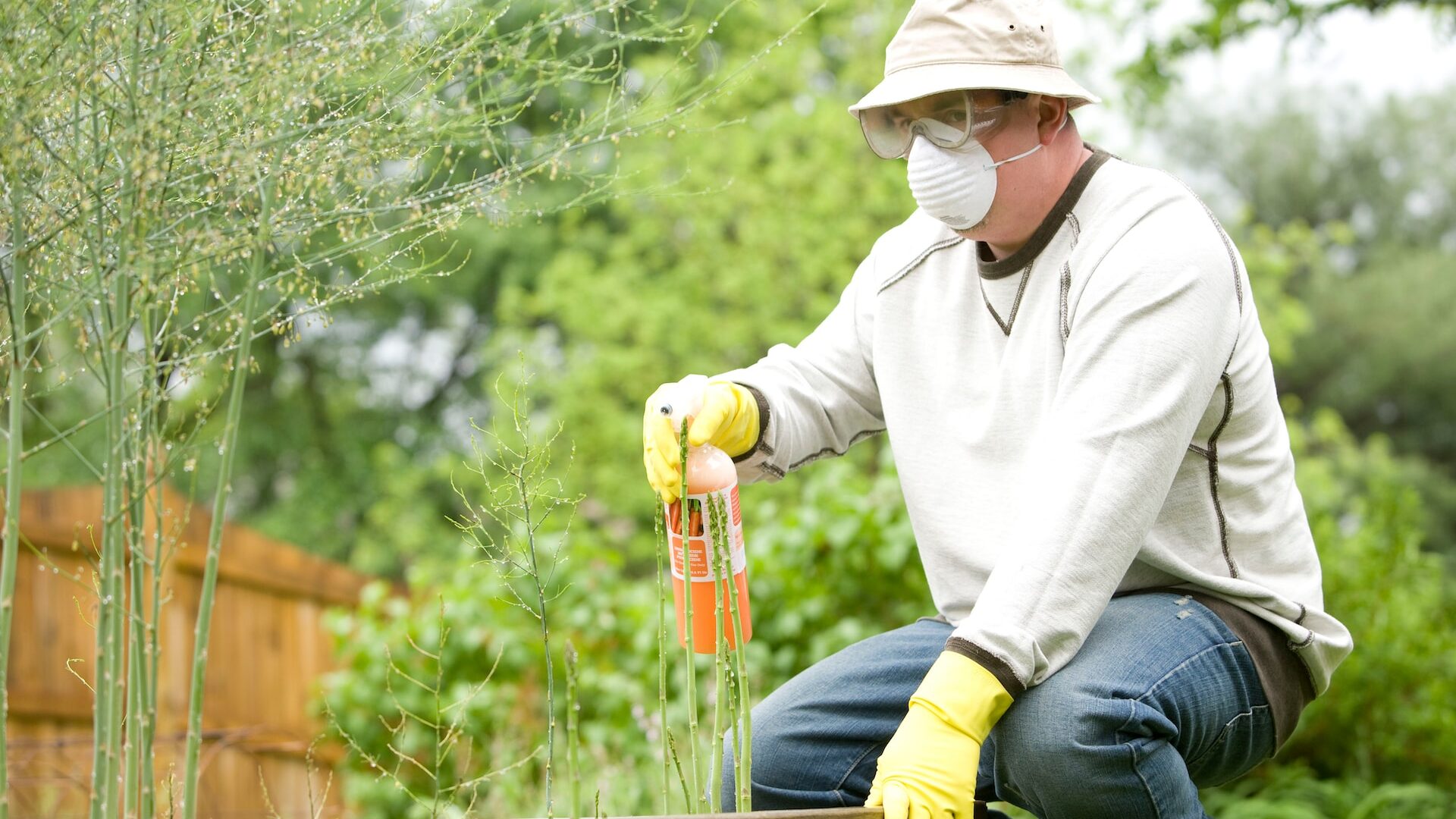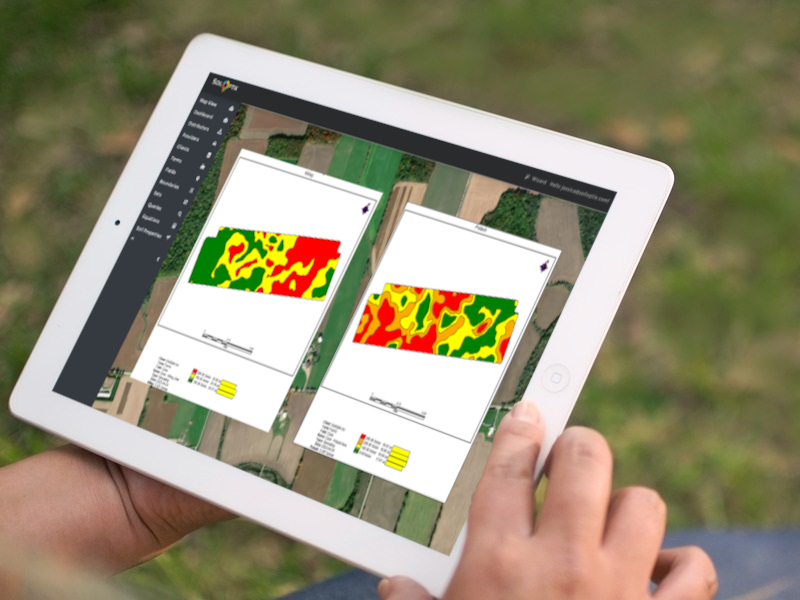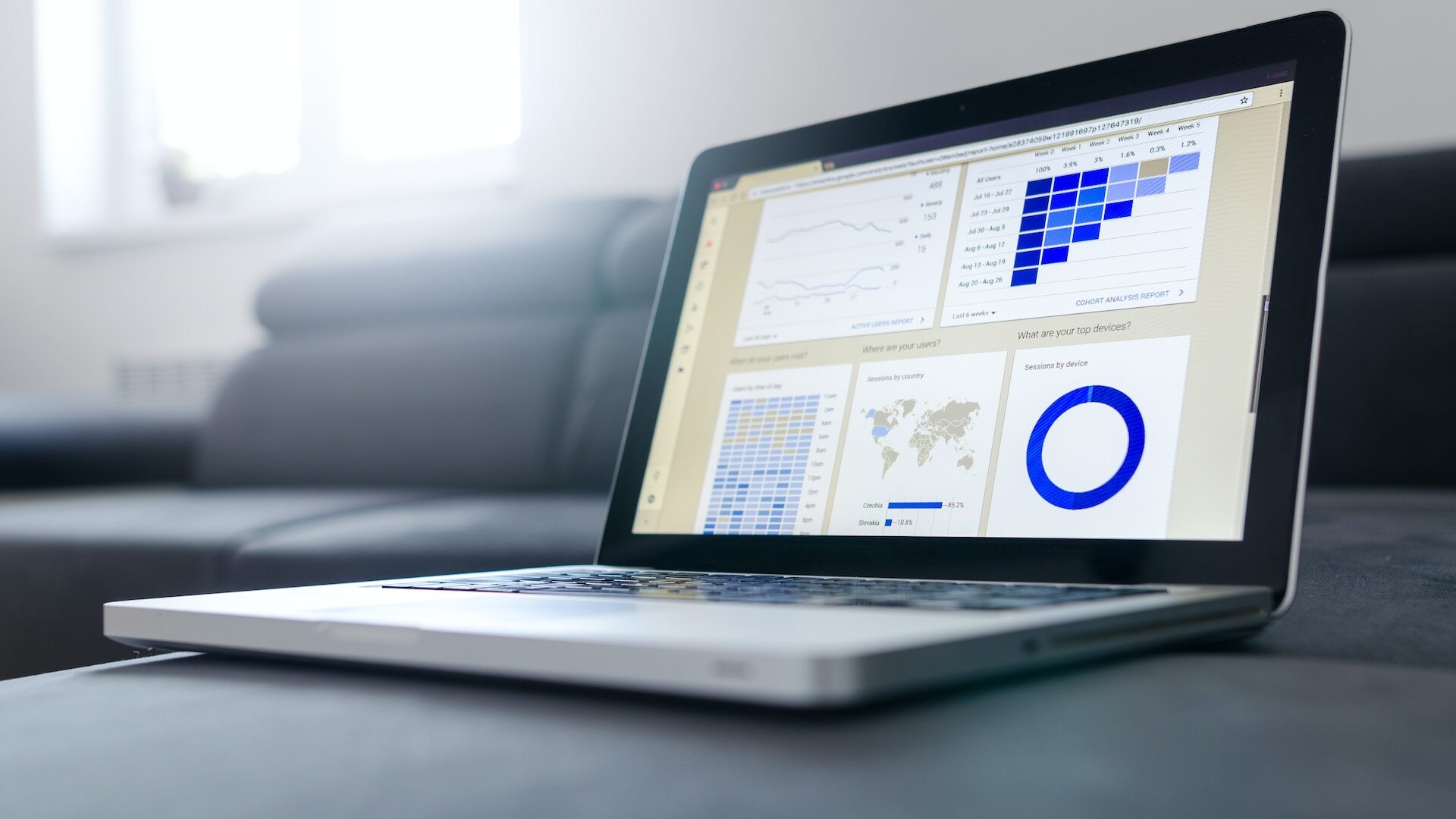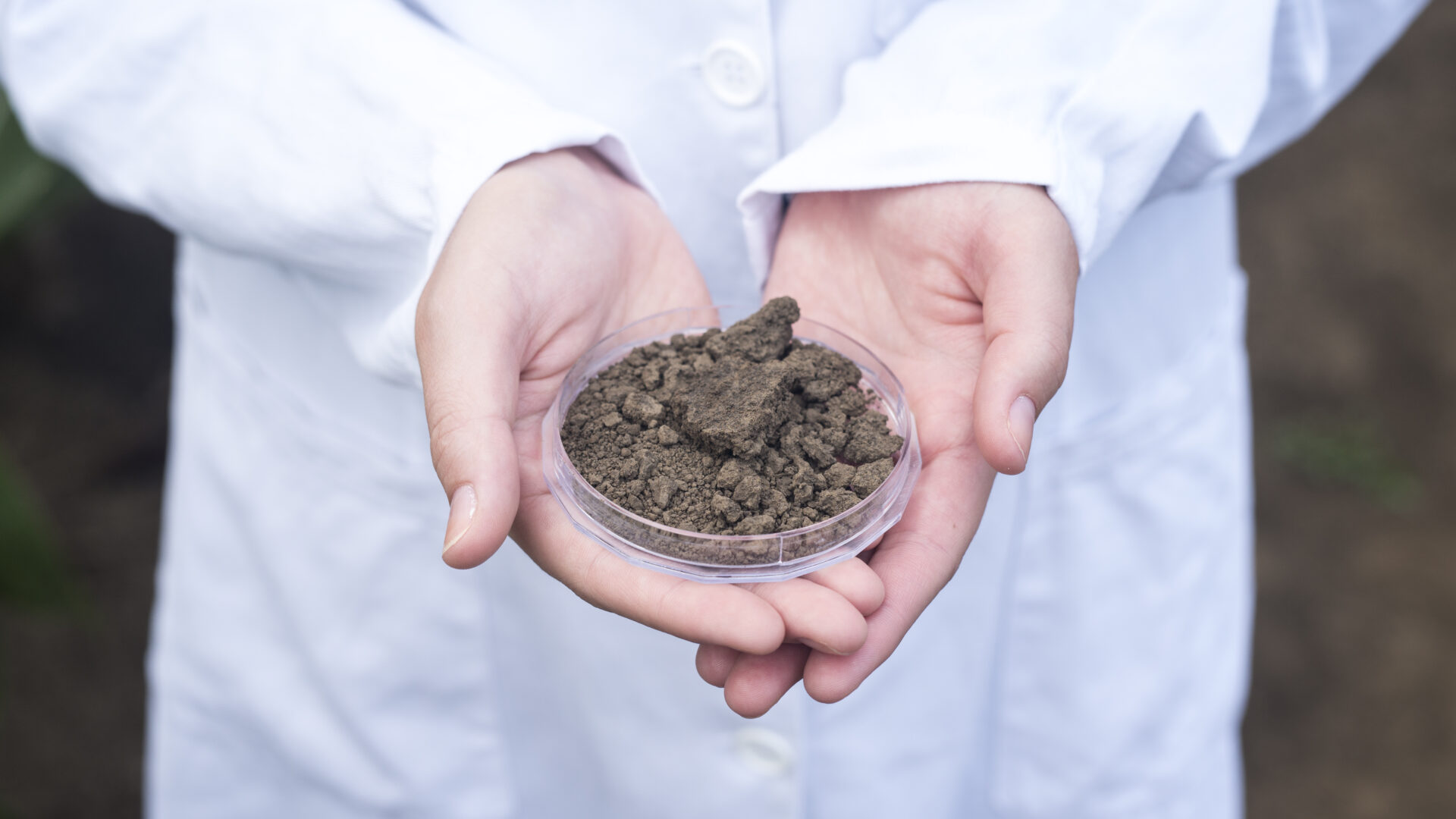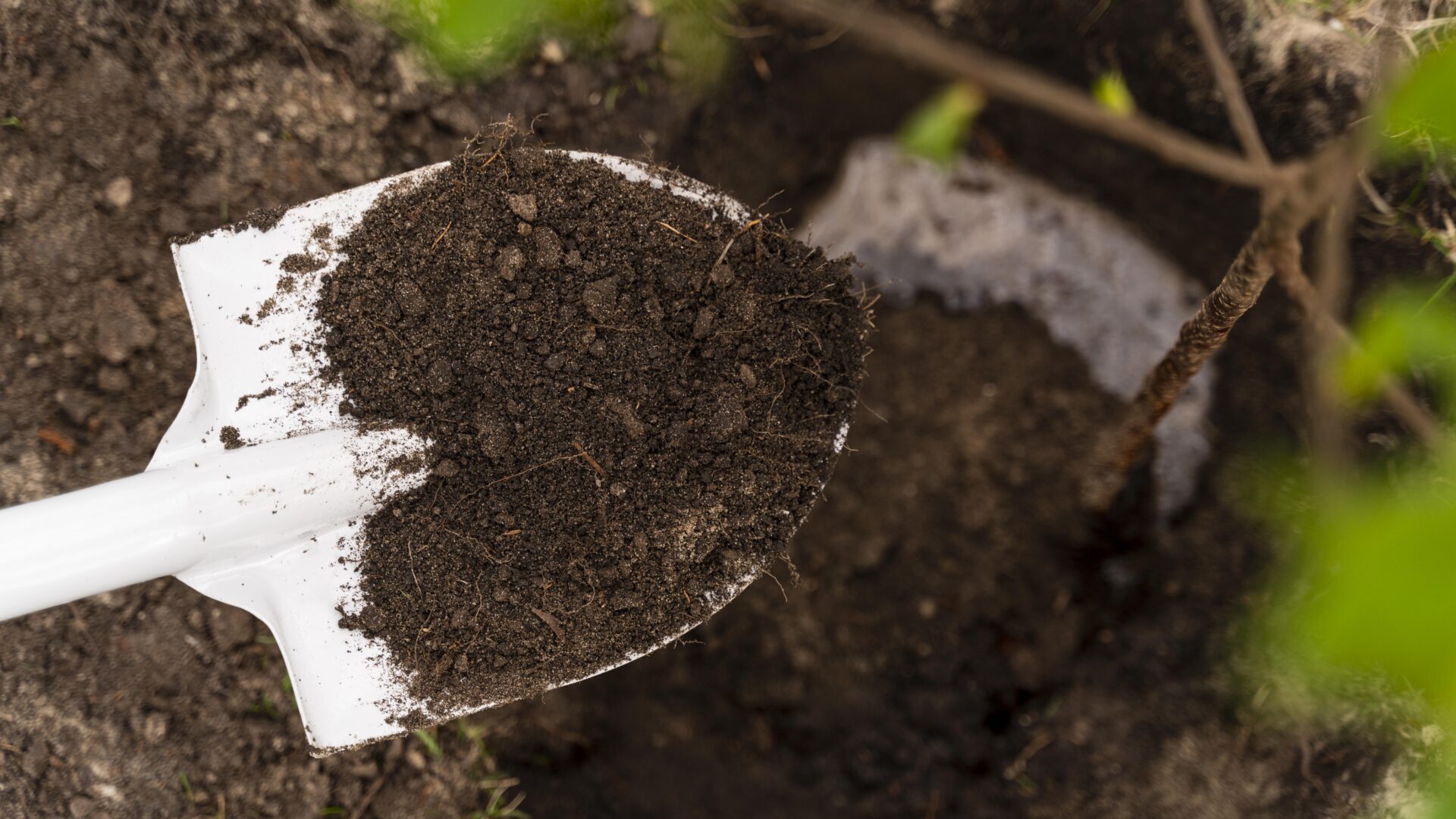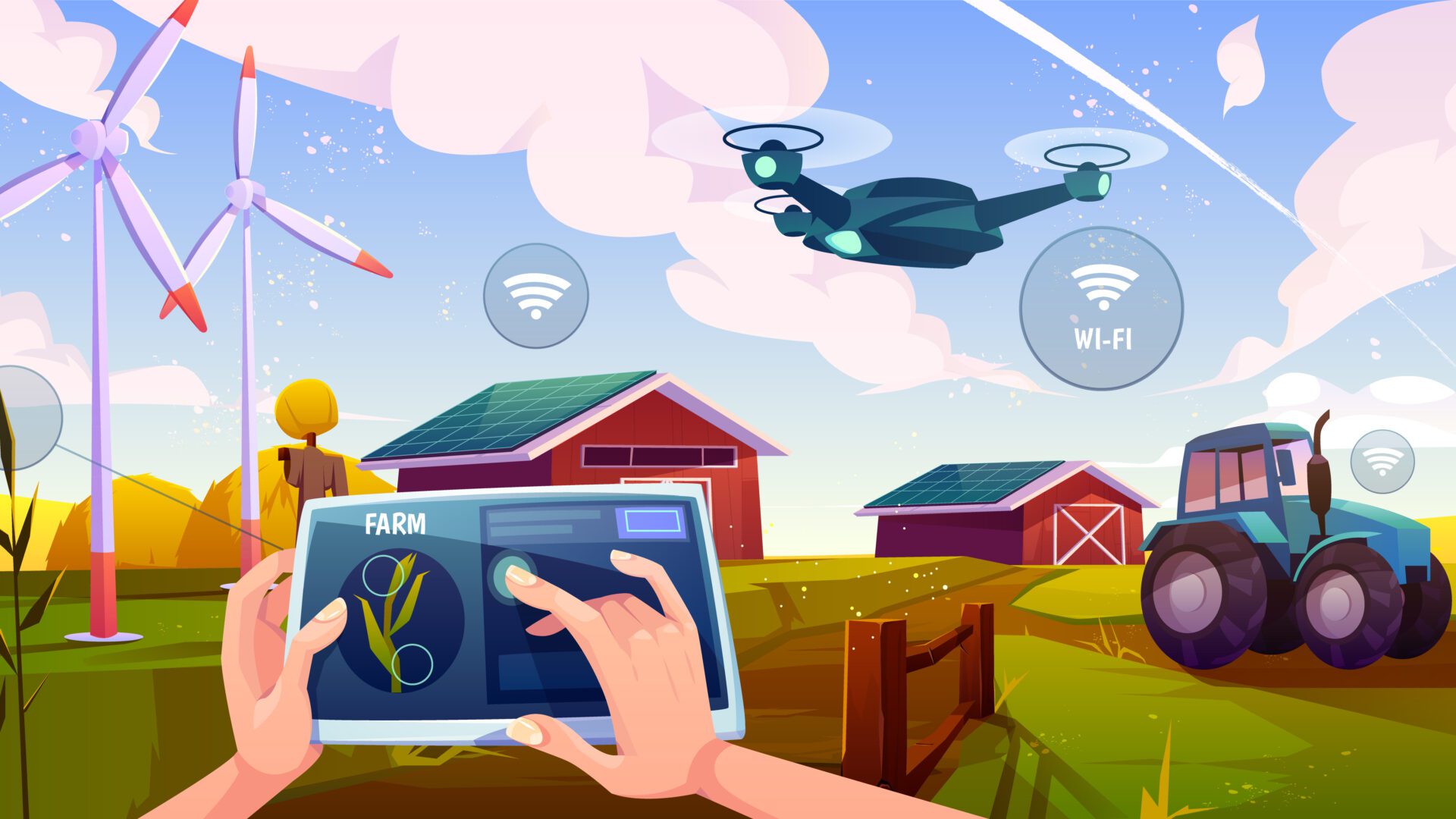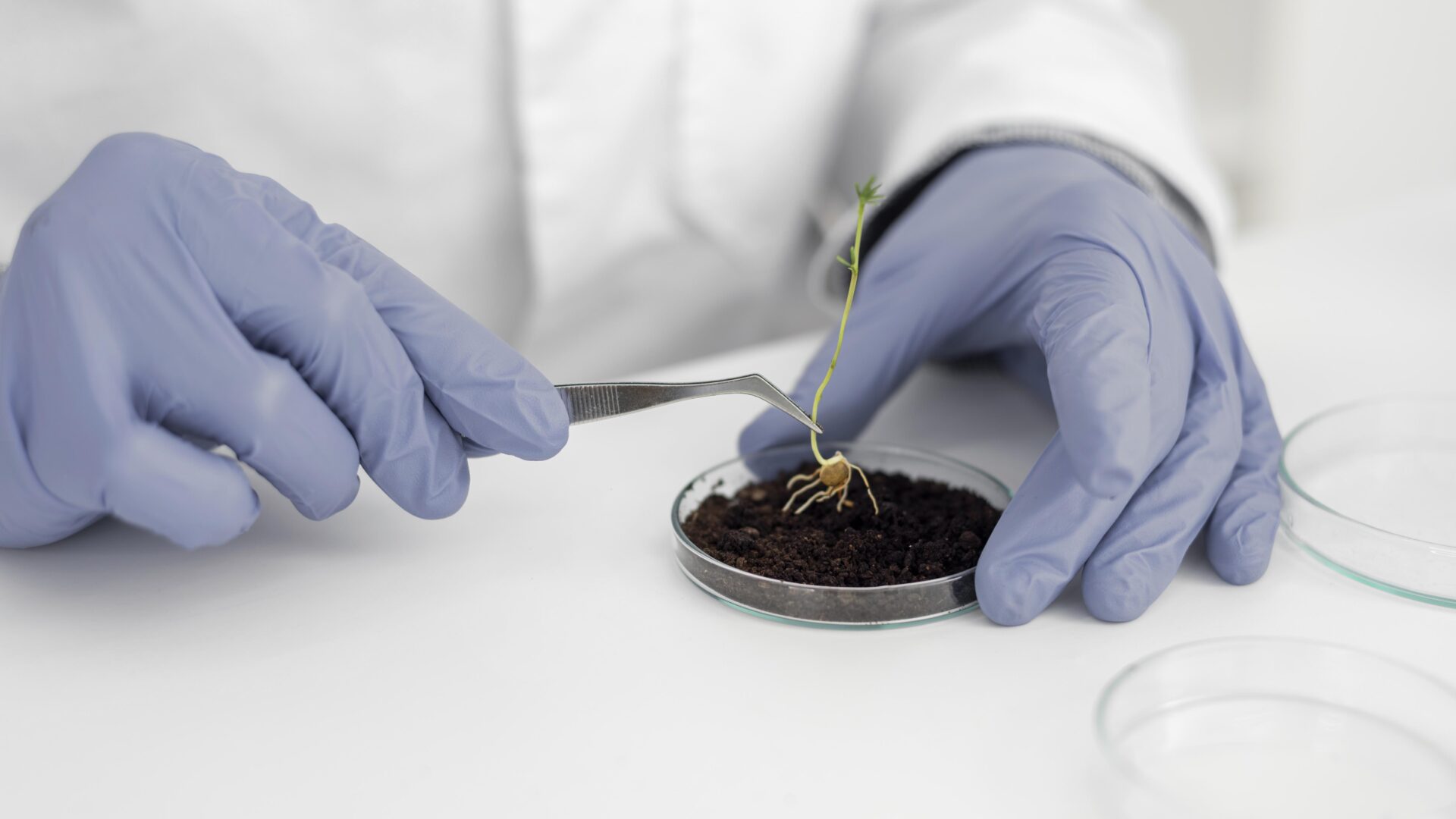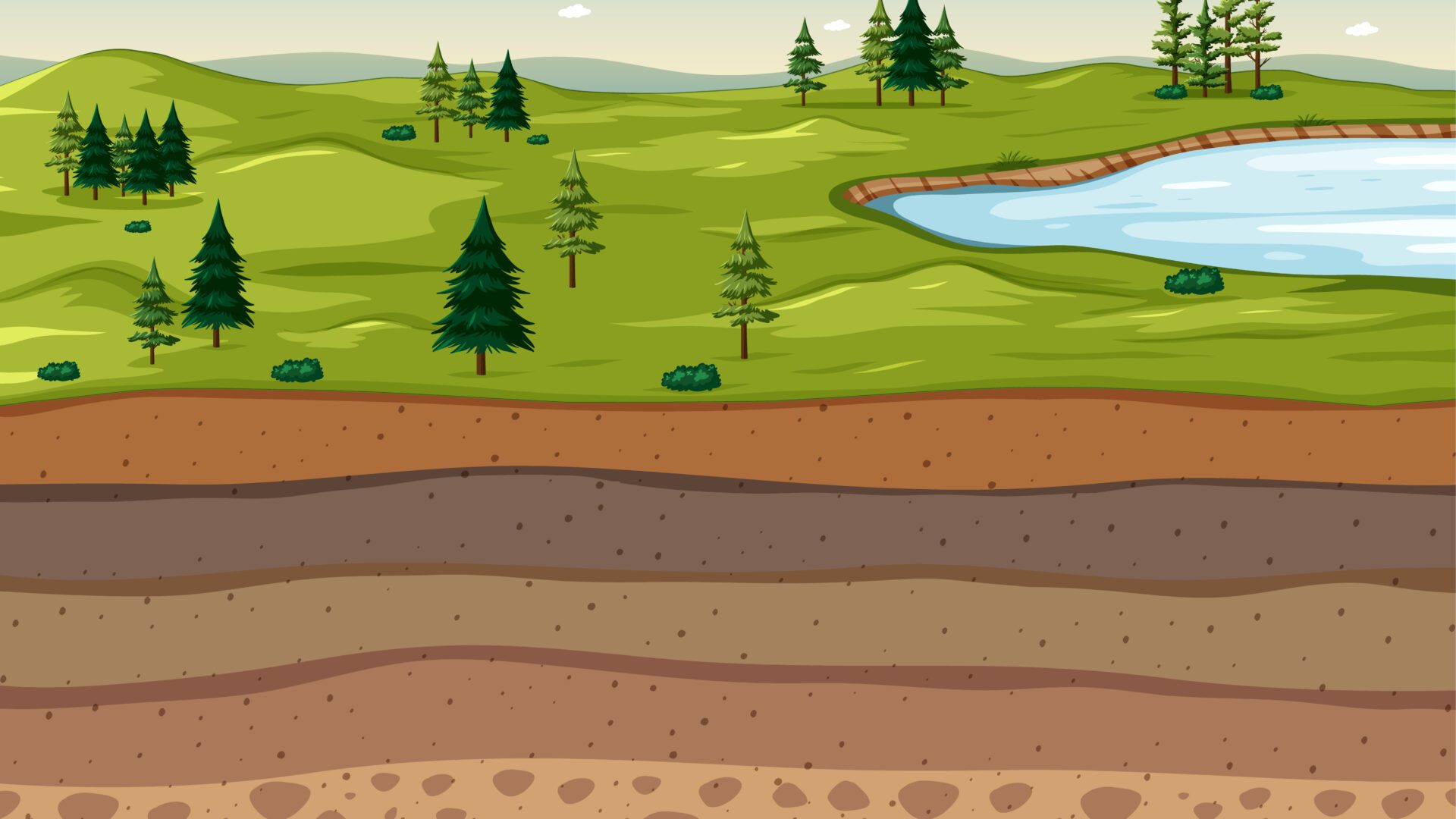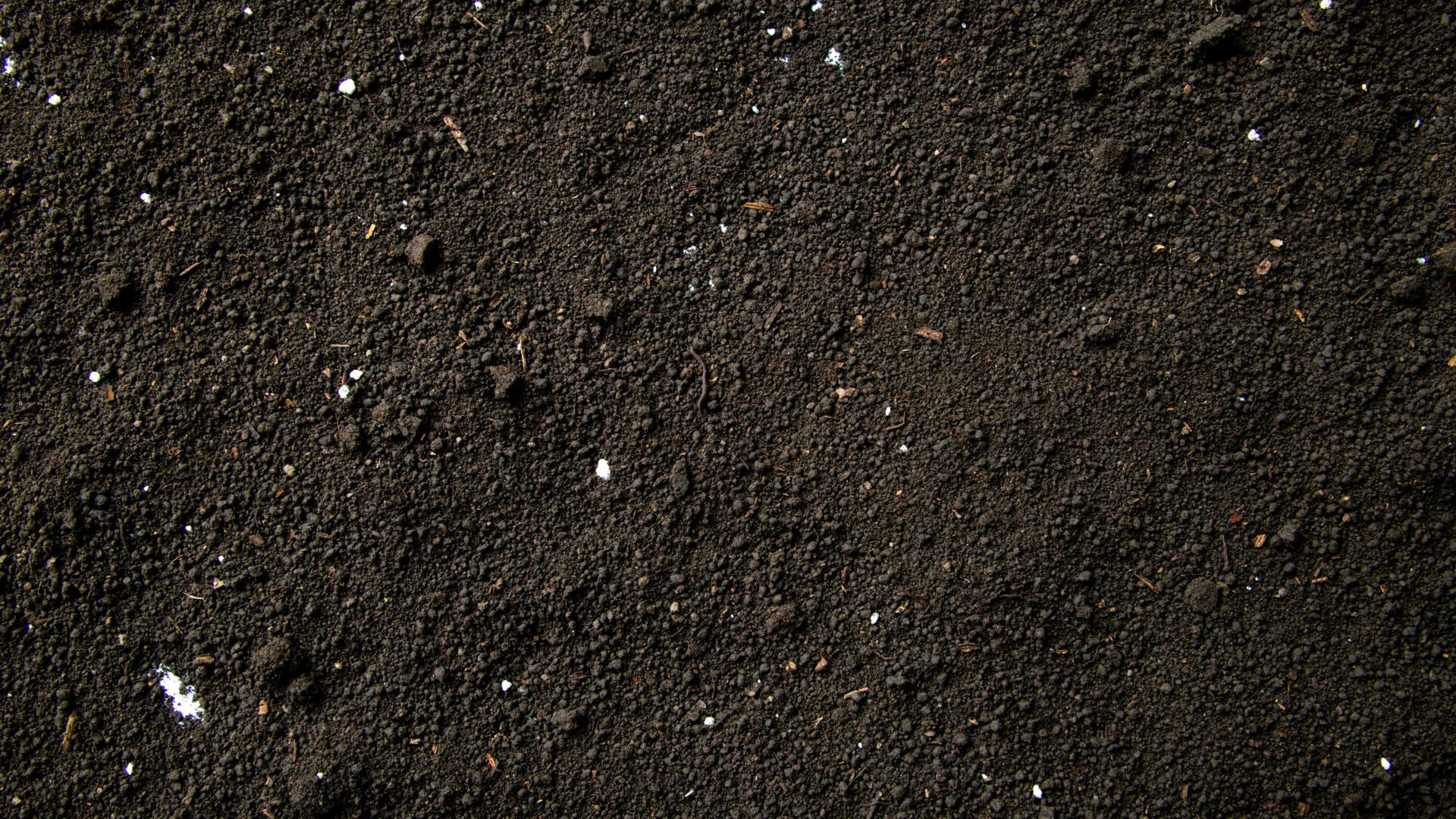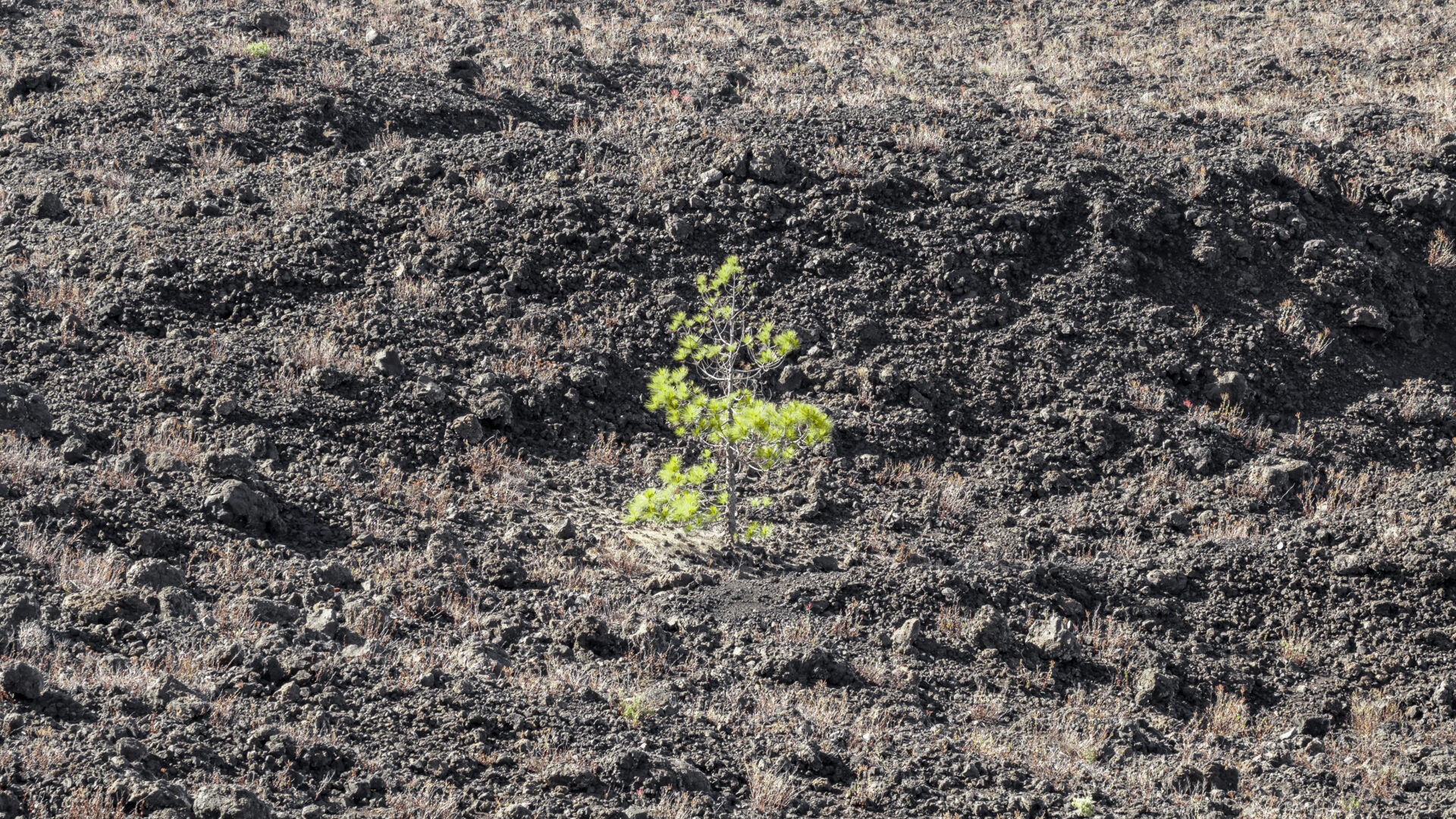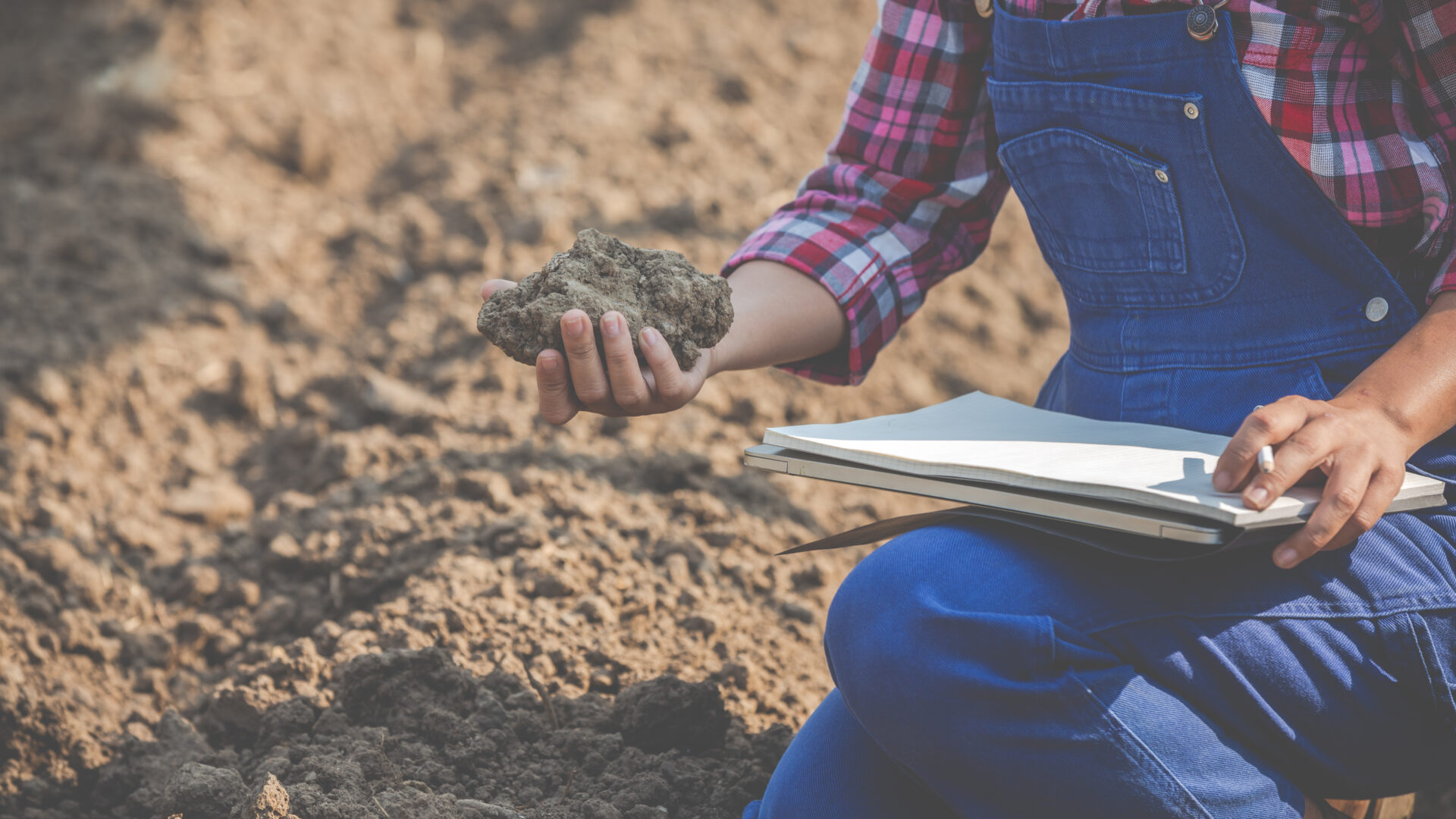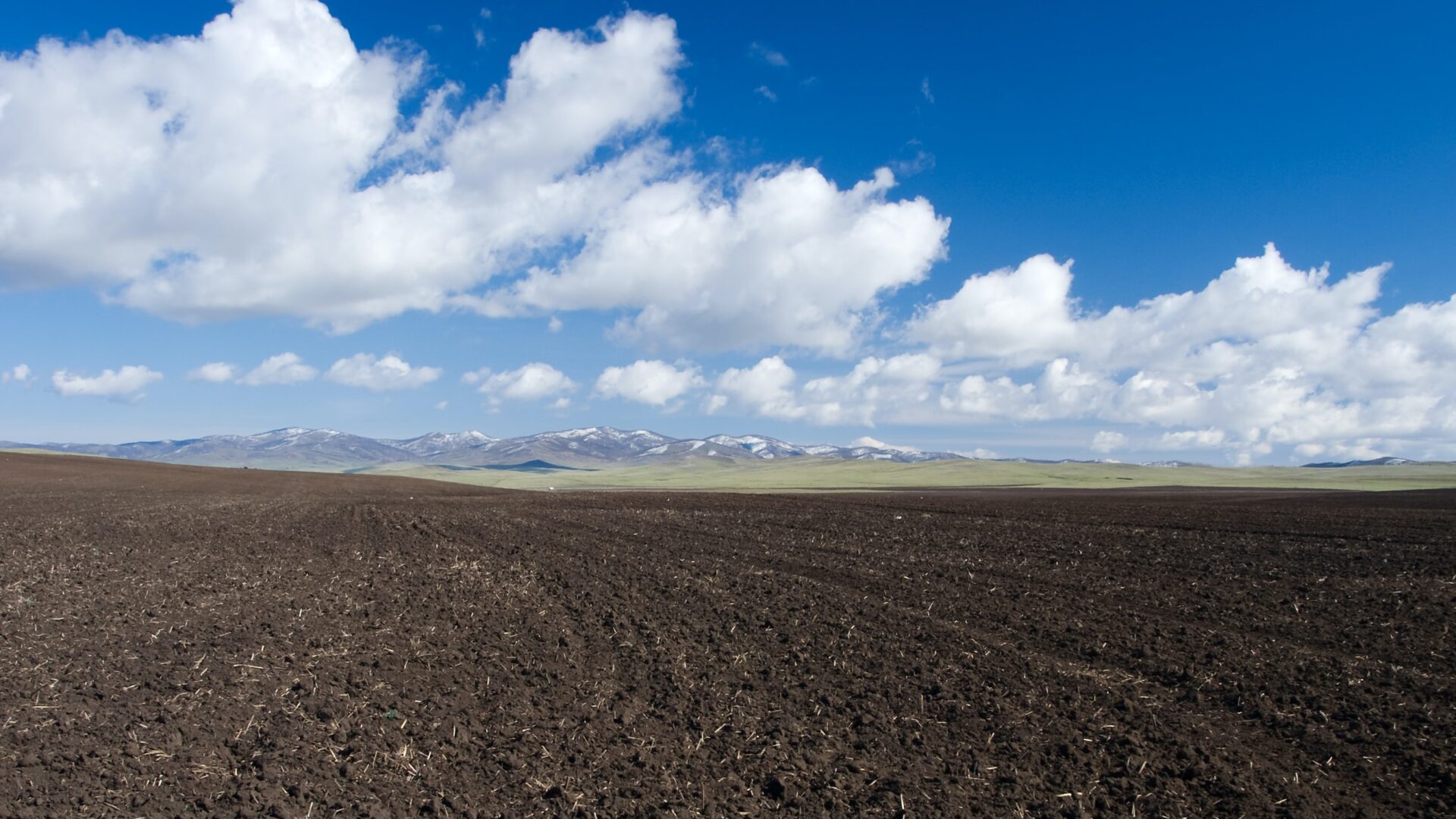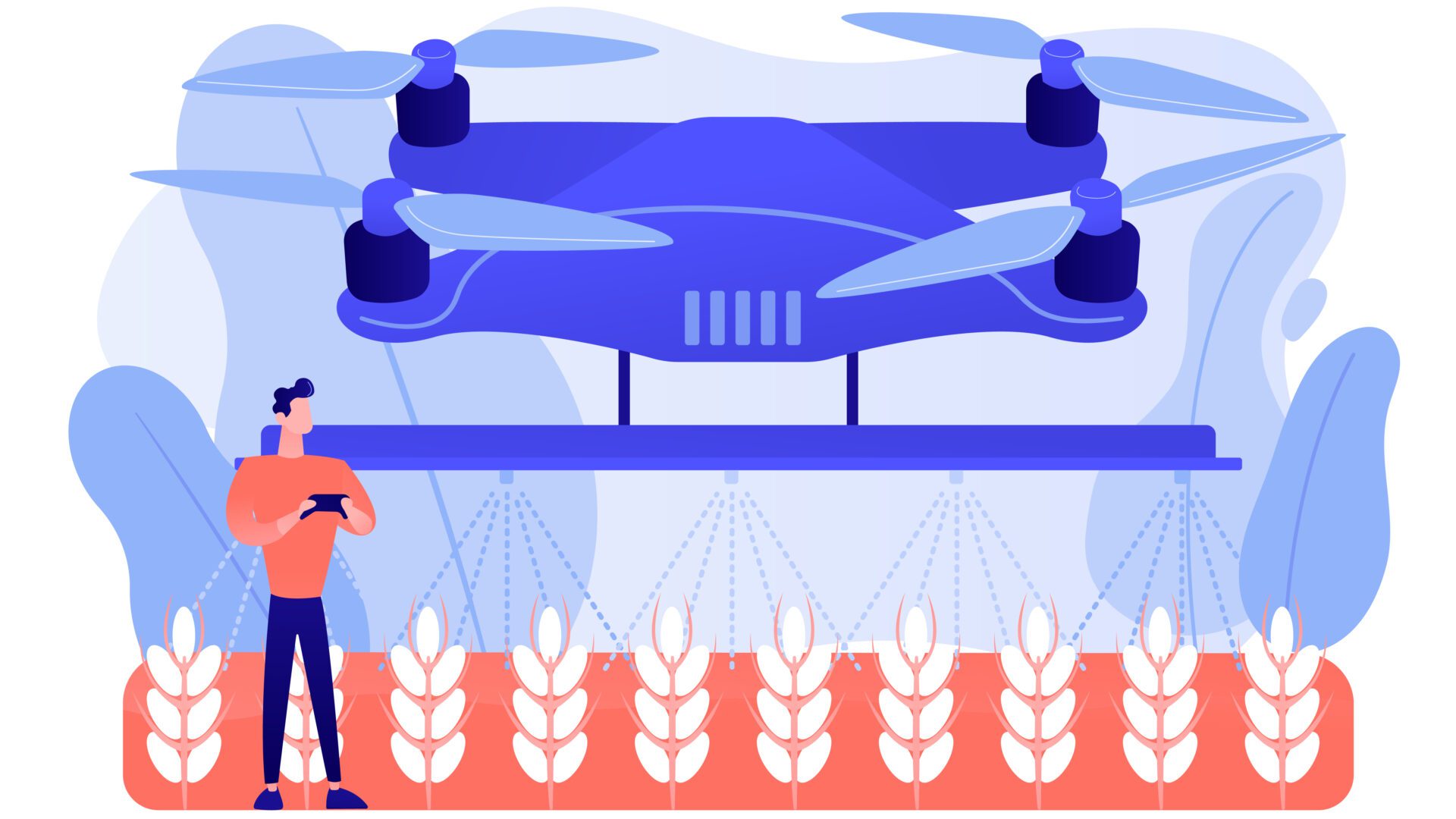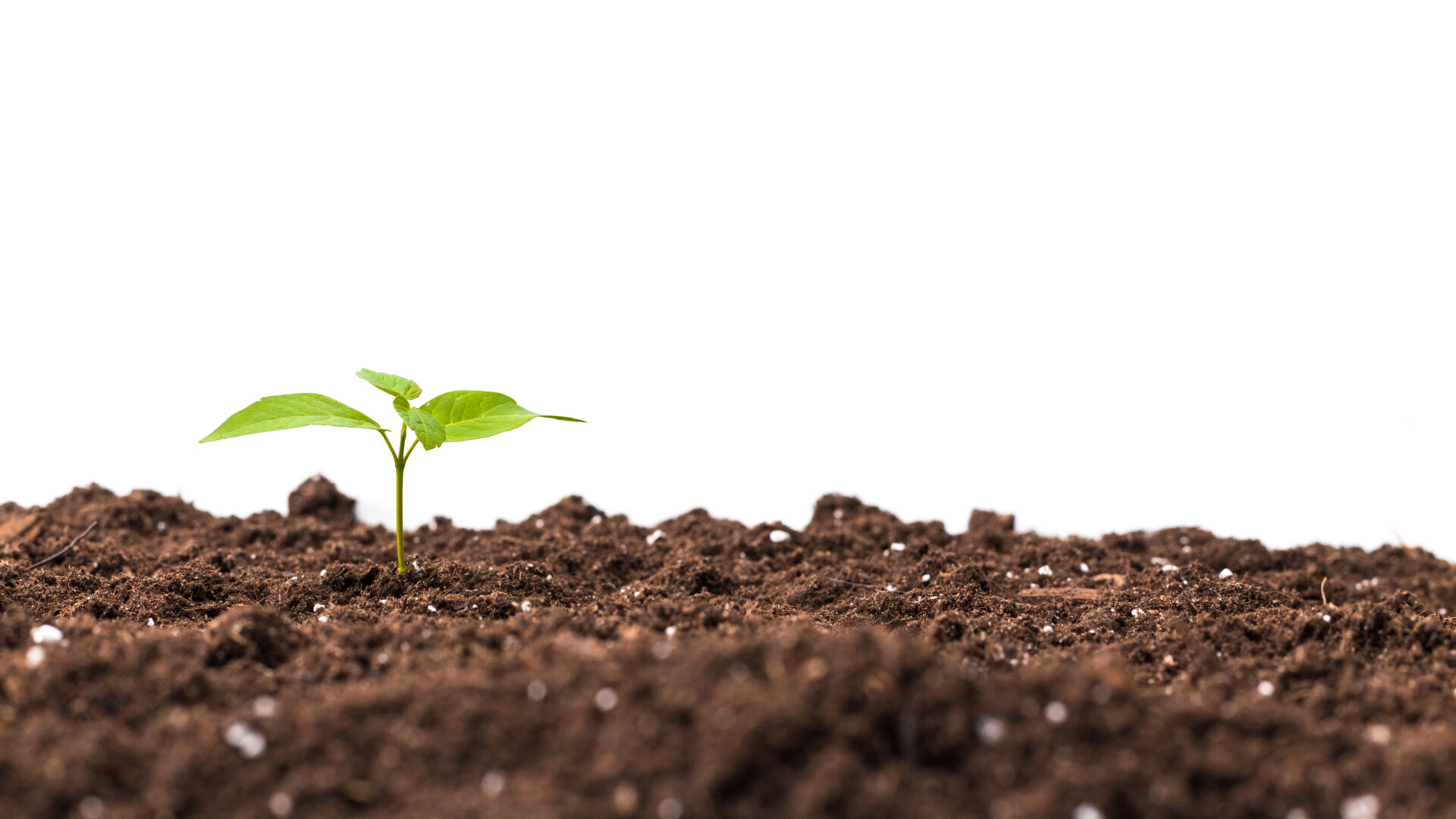SoilOptix® Blog
Behind the Map: What It Takes to Be a SoilOptix® Service Provider
Becoming a SoilOptix® service provider is an exciting opportunity to deliver high-resolution soil mapping as part of advanced precision agriculture services. This article outlines what’s required—from equipment and training to data management and client support—to help you succeed in offering this innovative solution. High-resolution soil data has become one of the most critical assets in… Read Full Article »
The Hidden Costs of Poor Soil Data—and How SoilOptix® Prevents Them
Not all soil data is created equal—and the wrong data could be quietly costing your farm thousands. From wasted inputs to missed yield potential and underperforming tech, poor soil data undermines farm planning at every level. In this article, discover the invisible risks of relying on low-resolution maps and how SoilOptix® transforms your strategy with high-resolution, actionable insights. If you want to stop farming with averages and start making every acre count, this is a must-read.
Why Top Turf Managers Are Turning to High-Resolution Soil Data in 2025
As the turf industry faces growing pressure to maintain elite-quality surfaces while cutting costs and meeting sustainability goals, managers of golf courses, sports fields, and municipal parks are beginning to embrace a powerful new asset: high-resolution soil data. While advanced soil mapping technology like SoilOptix® has been widely adopted in agriculture, 2025 marks a pivotal… Read Full Article »
How Retail Agronomy Teams Can Use SoilOptix® to Differentiate in a Crowded Market
Learn how SoilOptix® is helping ag retailers move beyond product sales into scalable, high-value agronomic services. By delivering high-resolution soil data and integrating seamlessly with existing platforms, retail agronomy teams can boost ROI, build trust, and offer differentiated services that grow customer loyalty and margins.
Digital Soil Testers- Revolutionizing Soil Management for Modern Agriculture
In recent years, technological advancements have profoundly impacted various sectors, and agriculture is no exception. Among the innovations transforming modern farming practices, digital soil testers stand out as a crucial tool for enhancing soil management. These devices offer precise, real-time data on soil conditions, enabling farmers in the USA to make informed decisions that boost… Read Full Article »
Precision Agriculture Services: Revolutionizing Modern Farming
Precision agriculture, also known as precision farming, represents a paradigm shift in the way modern agriculture is conducted. By leveraging advanced technologies, precision agriculture services provide farmers with the tools and insights needed to optimize crop yields, reduce inputs, and enhance sustainability. In the USA, precision agriculture is rapidly gaining traction, transforming traditional farming practices… Read Full Article »
Enhancing Soil Health for Sustainable Farming
In recent years, precision agriculture has revolutionized farming practices across the United States. By leveraging advanced technology and data analytics, farmers can optimize their crop production and improve soil health. This article will explore the benefits and techniques of precision agriculture services in the USA and their impact on soil health. What is Precision Agriculture?… Read Full Article »
The Importance of Soil Nutrient Testing in the USA
Soil health is the foundation of successful agriculture, and understanding the nutrient content of soil is crucial for optimizing crop production. Soil nutrient testing provides valuable insights into the soil’s nutrient levels, helping farmers make informed decisions about fertilization and soil management. In the USA, soil nutrient testers have become an essential tool for farmers,… Read Full Article »
Digital Soil pH Testers: The Key to a Thriving Field
Farming in the USA is a crucial industry that connects us with nature and provides a sense of accomplishment as we watch our plants grow and flourish. However, the success of our crops largely depends on the health of the soil, and one critical aspect of soil health is its pH level. This is where… Read Full Article »
Soil Carbon Sequestration: A Pathway to Sustainable Agriculture and Climate Mitigation
Soil carbon sequestration has emerged as a pivotal strategy in the fight against climate change. By capturing atmospheric carbon dioxide (CO2) and storing it in the soil, this process not only helps mitigate greenhouse gas emissions but also enhances soil health and agricultural productivity. In the USA, soil carbon sequestration is gaining traction among farmers,… Read Full Article »
Soil Nutrient Tester in USA: Does the Change in Seasons Alter Nutrient Levels in Croplands?
Understanding the seasonal fluctuations of soil test measurements during the year can aid in understanding and interpreting soil test results that vary from year to year or samples taken within the same year. Many factors can cause soil results to differ from year to year, with seasonal fluctuations being one of them. Seasonal fluctuations are… Read Full Article »
Precision Agriculture Services in USA: How to Prepare Your Soil Well before Citrus Plantation?
Citrus trees include lemons, oranges, limes, tangerines, mandarins, satsumas, and kumquats. These are surprisingly easy to grow and so rewarding that they can be grown domestically and commercially. Their glossy green evergreen leaves, colorful (and delicious!) fruit, and fragrant blossoms are a great attraction, and the high value of the crop can be a “fruitful”… Read Full Article »
Digital Soil Tester USA: How Does Moisture Alter the Nutrient Levels in Soil?
Everything in an environment affects how plants grow, thrive, and reproduce. When growing plants indoors, climate control is crucial to maximize the photosynthetic process. Maintaining optimal relative humidity levels in the greenhouse and other growing environments ensures optimal plant transpiration. Look for a digital soil tester in the USA to determine your nutrient levels in your… Read Full Article »
Soil Carbon Sequestration in the USA: How Food And Beverage Companies Are Contributing to Sustainable Practices?
Industries worldwide are reevaluating their practices to curb carbon emissions in pursuit of a greener future. Food and beverage creating companies are uniquely positioned to make a considerable impact by embracing soil carbon sequestration in agriculture. This blog post delves into crop-centric soil carbon sequestration in USA and outlines how food and beverage companies can… Read Full Article »
Digital Soil tester in USA: Why Is It Essential to Prevent Soil Nutrient Depletion?
Soil provides 98.8% of our food. Plants grow from the soil, and many of these plants either end up on our plates or are consumed by animals we eat. Soil is vital for our survival. So, what is the problem with soil nutrient depletion? How can it simply harm our health and environment? Can a… Read Full Article »
Can Sustainable Farming in USA Be Helpful for the Environment?
Sustainable agriculture practices prioritize the health of our soil organisms and environment and ensure that farming remains viable and prosperous in the long term. By embracing sustainable agriculture in the USA, we’re not just focusing on present food requirements. We’re also laying down a robust foundation for generations to come. Why Shift from Conventional to Sustainable… Read Full Article »
How to Understand the Results & Recommendations of a Report on Soil Testing in USA?
Soil testing assesses what soil nutrients are present or may be necessary for optimum plant growth and yield. Due to variability in soil across different regions, laboratory analysis, and reporting, guidelines very specific to your region may exist. A local agronomist can provide the information specific to your area. The soil test results list the… Read Full Article »
Top Plants That Help to Boost Soil Fertility in the USA
Did you know soil health can be improved in various natural and sustainable ways? While you can add compost to the soil to improve productivity or use the organic soil amendments to develop up structure and help cycle the nutrients, the plants growing in your garden can also impact soil fertility in the USA. Source: Freepik… Read Full Article »
Soil Analysis in USA: How to Ensure Essential Soil Nutrients for Corn Cultivation?
Cultivating corn generously pays off if you give the crop sufficient space, warmth, and water. Yet, because the crop is very sensitive to climate and field conditions, there is no single-size-fits-all answer on growing corn. It is still a no-brainer growing up, though, when put in context. With today’s readily available technologies, crop producers can… Read Full Article »
How Are Precision Agriculture Companies in USA Helping in Better Food Production?
Precision agriculture refers to a set of strategies and tools available to farmers to work more efficiently and increase soil quality and productivity. This is possible only through the use and proper implementation of increasingly professional, user-friendly, and advanced technologies by precision agriculture companies in the USA. Precision agriculture is a management approach based on three fundamental… Read Full Article »
Digital Soil pH Tester in USA: What Is the Right Way to Balance pH in Soil?
Is your soil not supporting your crop the way you expect it to do? Have you tried everything to improve your yield without any results? The problem could be inappropriate quantities of soil pH. Soil pH can directly affect your crop yield despite your best efforts to keep your crops healthy, so you should get… Read Full Article »
How Crucial is Soil Mapping in USA in Precision Agricultural Practices?
Soil mapping is a process that involves a systematic observation and recording of the soil texture and nutrients, and their distribution within a particular area. It has several critical applications. It helps farmers to make well-thought and informed decisions about the crop selection, fertilization, and irrigation. A farm map can also help to identify soil… Read Full Article »
Soil Mapping USA: Exploring the Relation between Soil & Irrigation for Better Productivity
Irrigation is the application of water to ensure the sufficient amount of soil moisture is available for good plant growth throughout the entire growing season. For irrigation planning purposes, the average precipitation rate during the growing season could be a better yardstick for determining the need for irrigation. The timing and amount of rainfall during… Read Full Article »
What Are the Best Ways to Promote Sustainable Farming in USA?
How do you become an eco-friendly farm? Though it’s a very long process that requires much time and effort, converting your farm to one that simply prioritizes sustainability can help you produce more products, prioritize your farm workers and save money in the long run. You can take numerous steps to turn your agricultural operation… Read Full Article »
Soil Testing in the USA – The BEST Way to Ensure Higher Yield
Soil testing in the USA helps determine the soil’s chemical, physical, and biological properties. Soil testing is crucial for modern agriculture because it offers valuable insights into the presence of major soil nutrients like nitrogen, potassium, and phosphorous, minor elements like Calcium, magnesium, and sulfur, and trace elements like zinc, molybdenum, iron, and copper. Soil… Read Full Article »
Soil Nutrient Tester in USA: How to Determine the Adequate Quantities of Nitrogen in Soil for Your Crops?
Nitrogen (N) is the plant nutrient most often applied to crops as a fertilizer. It is the nutrient responsible for the green leafy growth—insufficient nitrogen results in poor crop growth and low yields. For your plants to be healthy and vibrant, the soil in your field must be rich in essential nutrients like Nitrogen. Therefore,… Read Full Article »
Soil Carbon Sequestration in the USA – Ensuring Agricultural Yield
For a long time, farmers have known that soil organic matter helps improve soil quality. It increases the water-holding capacity of soil and enhances friability and the nutrient content of the soil. Organic matter is the crucial element that affects the chemical, physical, and biological properties of the soil, ensuring its proper function, on which… Read Full Article »
What Is the Inter-Relation between Irrigation and Fertilizer Application in the USA?
One of the many precision farming practices, fertigation is a widely used, adaptable and scalable practice. It simplifies the application of fertilizers and irrigation to plants by combining them into a single waste-averse system. This is one of the most advanced and effective fertilization practice. Even the traditional farmers have recognized this farm practice as… Read Full Article »
Digital Soil pH Tester in USA: How to Balance Soil pH Levels before Crop Growth?
Soil anchors plant roots and serves as a storehouse for nutrients. The term ‘pH’ refers to the extent of acidity or alkalinity of the soil. A pH of 7.0 is neutral, while above 7.0 is alkaline, sweet, or basic. Soil with a pH of 6.9 or below is acidic or sour. Measuring pH is vital… Read Full Article »
How to Understand the Results of Soil Analysis in USA for Improved Productivity?
Soil is the unconsolidated upper layer of earth composed of organic matter, rock particles, minerals, clay, gasses, liquids, and organisms that together support life. The “space” or pores in unconsolidated soil allow water and air to move through the soil, thus providing space for organic materials. Soil fertility varies from one plot of land to… Read Full Article »
How to Find Out the Right Amounts of Sodium with a Digital Soil Tester USA?
In agriculture, most growers think of sodium (Na) as an unwanted intruder when, in fact, it is an essential mineral for thriving and healthy plant growth in halophytes and C4 plants. Sodium is a crucial electrolyte that helps facilitate the thousands of messaging reactions that are part of the electrical life of the plant. It… Read Full Article »
Agricultural Soil Testing: Should You Determine Your Soil Type Before Rolling Out Your Plan for the Planting Season?
Depending on where you live, you’re most likely to have one of six different types of soil: loamy, clay, sandy, silty, chalk, or peat. Knowing which soil type in your yard is essential—and will help you create a lush, self-sustaining farmland, select suitable crops, and troubleshoot any issues. Fortunately, agricultural soil testing can help you… Read Full Article »
Precision Agriculture Companies in USA: How Soil Data Can Help Farmers?
Soil is a fundamental resource and a valuable source of information. Acquiring soil data, interpreting it with the help of precision agriculture companies in the USA, and then making fact-based decisions according to those valuable insights can help growers apply resources optimally without compromising yields. Before understanding how the soil data can benefit an operation, let’s take a… Read Full Article »
Understanding Soil Carbon Sequestration in the USA – Its Impact on Agriculture
In the last two decades, there has been a transformation in the general popularity of the topic of agricultural soils. Two decades ago, the impacts of climate change didn’t quality as a topic of conversation in the dinner table, let alone soil health or the ability of soils to store carbon. However, this scenario has… Read Full Article »
Soil Survey and Mapping in USA Play a Significant Role Enhancing Productivity
Soil is one of the most crucial aspects of any agricultural production system. Different soil components can significantly affect crop or pasture yield and quality and play increasingly crucial roles in environmental sustainability. Farmers have been adapting their management strategies for centuries based on the observed physical and visual properties of soils, with very recent technological advances assisting in this practice. Soil… Read Full Article »
How Regenerative Agriculture Helps to Address Phosphorous Shortage?
With the increase in the global population, food demand will continue to increase. This is where conventional agriculture will face immense challenges. One such challenge is the reduction in essential nutrients like phosphorus. Phosphorus is crucial for plant growth and to ensure sustainable agriculture. However, the problem is the excessive use of synthetic fertilizers and… Read Full Article »
How Does Soil Health in the USA Affect Farm Legacy & Profitability?
Preserving the land for future generations is a priority for farmers, especially for intergenerational farms. Offering children and grandchildren a proud legacy and a profitable business starts with ensuring sustainable farming practices to ensure them future productivity. From generation to generation, long-term farm success is traced back to soil health in the USA and how… Read Full Article »
How Do Precision Agriculture Services in USA Help in Fertilizer Application on Farms?
The environmental and resource problems caused by fertilization and irrigation in traditional agriculture have become increasingly severe. In the current greenhouse production process, excessive consumption of pesticides, fertilizers, and irrigation water leads to a low utilization rate of resources and a high content of liquid nitrate discharged from irrigation, resulting in the pollution of groundwater… Read Full Article »
How Can Soil Analysis in USA Determine the N,P,K Rates in Your Farm?
A comprehensive soil test will reveal your soil’s nutrient content, composition, and other characteristics. Nitrogen, phosphorus, and potassium are plants’ primary nutrients for their growth and development. Your field needs to eat, just like you do. And just like how you track down carbohydrates, protein, and fat, your plants need a particular breakdown of nutrients.… Read Full Article »
Fertilizer Application in the USA – Ensuring Crop Nutrition
Fertilizers, whether they are natural or artificial, are the primary components that increase plant productivity and ensure development. Fertilizer applications in the USA help in improving soil fertility, which promotes growth. The use of manures as compost is probably as old as agriculture itself. With the help of fertilizers, the plants become resilient against harmful… Read Full Article »
Soil Prep Series #5: Digital Soil pH Tester in USA: Exploring the Relation between Soil pH, Acidity & Crop Health
Farming involves a wide variety of knowledge and skills to cultivate a profitable crop successfully. Farmers need to know about the plants they grow, weather, machinery, and the ground in which their crops are grown, such as the pH level of the soil and the nutrients it contains. Soil pH level is the degree of… Read Full Article »
Soil Prep Series #4: Factors to Consider before Choosing a Digital Soil Tester in USA
Soil testing provides vital information about the availability of soil nutrients. It is also increasingly used to identify the soil layer’s biological and physical characteristics to give an entire picture of overall soil health. Farmers and landowners can use the soil testing data to optimize nutrient management plans. Implementing the recommendations based on the soil… Read Full Article »
Soil Prep Series #3: Soil Nutrient Tester in USA- What Are the Steps Involved in Soil Nutrient Analysis?
Scientists generally accept 17 key elements essential for plant growth (authors- Barker and Pilbeam, 2007). These elements are: Carbon (C), Hydrogen (H), Oxygen (O), Phosphorous (P), Potassium (K), Nitrogen (N), Sulfur (S), Calcium (Ca), Magnesium (Mg), Iron (Fe), Boron (B), Manganese (Mn), Copper (Cu), Zinc (Zn), Molybdenum (Mo), Nickel (Ni), and Chlorine (Cl) A specific amount… Read Full Article »
Soil Prep Series #2: Why Should You Choose a Soil Nutrient Tester in USA before Cropping?
If you are preparing for the next cropping season, you’ve come to the right place. Most farmers would agree that quality cropping plots are a result of hard labour, time and money. Their success is a function of good site selection, quality seed, weather and the soil. A soil test provides the information necessary to maximize the field’s full… Read Full Article »
Soil Prep Series #1: Soil Analysis in USA – Steps to Plan Your Next Cropping Season
Every year, agriculture practitioners need rigorous planning before the cropping seasons. Contrary to what many people may think, farmers don’t get a vacation once their crops are harvested. Their jobs keep them busy all year long. Crops may not spring up during the colder months, but there’s still plenty of work left on the farm. Once one… Read Full Article »
Integrated Crop Management- a New Dimension for Precision Agriculture Companies in USA
Integrated crop management offers an all-round approach to sustainable agriculture. It considers the situation across the entire farm, including the socioeconomic and environmental factors, to deliver the most profitable and also the eco-friendly approach for long-term benefit. Integrated Crop Management (ICM) is an eco-friendly cultivation method that uses techniques that guarantee lower environmental impact and… Read Full Article »
Sustainable Farming in the USA – A Crucial Element for Healthy Living
Sustainable agriculture in the USA is such a method that includes using different types of resources to cater to human requirements while also ensuring the following: Maximum production from agriculture Minimum degradation of natural resources Keeping the environment safe In simple terms, sustainable agriculture in the USA includes processes that allow us to meet the… Read Full Article »
Why Opt for Soil Mapping in USA in between Crop Rotation Intervals?
Crop rotation is integral to sustainable farming, used to prevent soil erosion and nutrient depletion, suppress weeds, and occasionally combat the pests and diseases. Crop rotation is like the farmer’s version of Sudoku. It involves strategy, expert placement, and zero guessing to yield healthy crops with the most cost-effective and environmentally friendly results. While the crop rotation… Read Full Article »
Soil Organic Carbon in the USA – The Different Aspects You Ought to Know
Carbon is the primary component of soil organic matter, but can sometimes be overlooked in farming. Understanding carbon’s behavior in soil, how carbon goes through multiple parts of the soil, and what increases soil’s capacity to store carbon for a specific time is crucial to creating an efficient land management practice that will uphold climate… Read Full Article »
The Top 5 Threats to Soil Health in the USA – Details to Know
Soil is a living entity that is brimming with life. When you can ensure that the soil is healthy, wealthy, and functional, you can rest assured that there will be healthier plants, better and more efficient use of nutrients, and higher crop yields. When soil health in the USA is poor, you need to better… Read Full Article »
How Regenerative Agriculture is Improving the Current State of Agriculture
Soil or earth is the primary source of life on this planet. It is our natural resource without which we would have no food to continue the existence of living beings. Can you imagine how dangerous it would be for us if this natural provider gets completely exhausted? Therefore, it is imperative to take care… Read Full Article »
Soil Survey And Mapping in the USA – Factors Contributing to Crop Residue
Ensuring healthy soil enables producers to work with the land and not against it. This reduces erosion, increases water infiltration, saves money on inputs, improves nutrient cycling, and ultimately improves the resiliency of the working land. Soil survey and mapping in the USA are crucial to implementing the best soil management practices. There are multiple… Read Full Article »
Fundamentals of Fertilizer Application in the USA – The Key to Correct Fertilizing
Modern agriculture is going through innumerable challenges to enhance food production in more efficient and sustainable ways. Fertilizer applications in the USA are one of the most important decisions producers face at the start of every season. It has a significant economic weight among cost items, and this is something that farmers have to be… Read Full Article »
Digital Soil Testers and pH Meters – Using the Best Tools to Grow Healthy Crops
Finding the right technology solution that farmers can use as an accurate and reliable digital soil tester in the USA can be challenging, but crucial to grow healthy and sustainable crops. A simple pH measurement offers a wide array of information about the plant’s health and growth potential. There are a wide variety of these… Read Full Article »
Soil Surveying and Mapping in the USA – Bringing Technological Revolution to Farmers
Soil surveying and mapping in the USA is the summary of the available knowledge about a specific area of soil and present in a graphical form for others.
Different Methods of Fertilizer Application in the USA
Fertilizer application refers to adding supplemental nutrients to the soil layer to enhance and improve plant growth. The application method can vary depending on diverse factors, like the type of fertilizer, the form, and the specific requirements of the plants and soil. While all aspects of your routine are essential, fertilizer application in the USA has the… Read Full Article »
Sustainable Farming in the USA is the Future of the Agricultural Sector
There is no denying that farming is an elemental part of life on Earth, and making it sustainable has become more crucial. Sustainable farming in the USA is also known as sustainable agriculture. In simple terms, it is farming practices that include ecological cycles. It is sensitive to microorganisms and their interactions with the remaining… Read Full Article »
Soil Microorganisms and Their Impact on Soil Fertility in the USA
Did you know? Behind better soil fertility in the USA and ensuring a good quality crop, an army of helpers works tirelessly within the soil. These unsung heroes are the soil microorganisms. These are tiny but mighty beings that have a crucial role to play in ensuring a better quality of yield. In the following… Read Full Article »
Regenerative Agriculture in the USA – Paving the Way for a Sustainable Future
Regenerative agriculture in the USA is a holistic farming process focused on soil health, biodiversity improvement, and food, water, and air quality improvement. Regenerative agriculture has attained a lot of attention from all the stakeholders, including policymakers, producers, consumers, and scientists. By harnessing the natural processes of the earth, regenerative agriculture is aimed to create… Read Full Article »
Navigating How Regular Soil Testing Can Increase Fertility in Agricultural Fields
Soil testing is essential in determining proper fertilizer applications to balance the nutrient availability in the soil and the crop’s nutrient requirements to achieve production goals. A routine sampling and analysis program can be utilized for a precise fertilization program that optimizes plant health and minimizes environmental effects. Current pH levels of soil, nutrient fertility… Read Full Article »
How Soil Microbes are Affected by Fertilizer Application in the USA & Commercial Cropping
Soil microbes increase soil fertility by adding air, minerals, and nitrogenous compounds. Microbes contribute to higher plant growth and better-quality crops by offering essential elements and minerals that the plants cannot use on their own. Microorganisms decompose organic matter into simple forms that can be easily taken in by the plants. Microbes increase soil fertility… Read Full Article »
How Can Digital Soil Mapping in the USA Be Rewarding for Framers?
In agriculture, the foundation of crop health and productivity lies beneath our feet—in the soil. This dynamic, living ecosystem plays a pivotal role in successful farming. Understanding soil means leveraging its potential to improve agricultural outcomes. Soil mapping in the USA makes this possible. The soil’s balance of nutrients, moisture, and organic matter profoundly impacts crop yields,… Read Full Article »
Exploring How Precision Agriculture in the USA Prioritizes Innovation in Farming
Precision agriculture technology has become one of the most popular research fields worldwide. Science continuously looks for more efficient ways to improve how we feed the world. Various technological aspects of precision farming utilize real-time data and software analytics to increase the overall efficiency of production agriculture, enhance profit margins, and reduce environmental impact. Precision… Read Full Article »
Soil Organic Carbon Above Ground Biomass: How to Manage and Maintain Carbon Stocks in Soil?
Carbon is one of Earth’s most common and essential elements and is one of the life’s building blocks. Carbon constitutes approximately 58% of the soil organic matter, and soils with more carbon content tend to be darker in color and much more resilient to precipitation extremes, improving water infiltration and retention. Soil organic carbon above-ground biomass density… Read Full Article »
Measuring Soil Organic Matter – Details About Organic Matter in the Soil
Soil organic matter is the term used for all the living and non-living materials within the soil or added to the soil. This includes the roots that develop during the growing seasons, incorporated crop stubble, slurries, or added manures. Every organic matter will contain Carbon (C), Nitrogen (N), Sulphur (S), Phosphorous (P), Magnesium (Mg), Potassium… Read Full Article »
How Precision Agriculture Technology for Crop Farming in the USA Can Benefit the Farmers?
Weather, soil moisture levels, and irrigation are just some of the variables that farmers evaluate daily to produce volumes of high-quality crops. Farmers know that to grow healthy crops consistently, they must understand the best conditions to plant specific varieties of crops, the necessary soil and moisture content for their crops to grow, and the… Read Full Article »
Gamma Ray Spectroscopy Applications in Soil Mapping – The Ideal Tool for Precision Farming
Soils emit gamma radiation that can be measured with gamma spectrometry. Spectral features are correlated with soil mineralogy and texture. Measuring the spectral features proximally and in real-time on heterogeneous agricultural fields is a crucial option for precision agriculture. Fine-scale spatial information on soil properties is necessary to implement precision agriculture successfully. Gamma Ray Spectroscopy… Read Full Article »
Creating a Better and More Sustainable World with Smart Farming and Precision Agriculture
Did you know? According to the data from the Food and Agriculture Organization (FAO) of the United Nations, by 2050, there will be 9.7 billion people worldwide. This means that, compared to 2024, there would be around 2 billion more mouths to feed. This increase in the number of individuals in the world must be… Read Full Article »
Applications of Big Data Analytics in Agriculture – The Details on Trends, Challenges & Solutions
The agricultural industry faces many challenges, including climate change, fluctuations in demand and supply, workforce lockdowns, and supply chain disruptions. There is a consensus among the industry stakeholders that the present situation needs a much more robust supply chain system. Farmers must use cutting-edge technologies to enhance their resilience and reduce potential risks. Big Data… Read Full Article »
Agriculture Mapping Software – Details on Automated Yield Data Cleaning and Calibration
Yield data is the data collected from different farm machinery like combines, planters, and harvesters, that evaluates the quality and quantity of the crops that have been produced within a given field or area. Agriculture mapping software plays a vital role in this. Accurate yield data helps farmers in making informed decisions. When they are… Read Full Article »
The Diverse Precision Agriculture Technology Options That Benefit Farmers
Conventional farming practices all over the world are reaching their limits, prompting the adoption of highly innovative approaches like precision farming technology. The concept of precision farming encompasses diverse interpretations. According to the International Society of Precision Agriculture, precision farming is an approach that dedicatedly consists of collecting, processing, and analyzing the temporal, spatial, and individual… Read Full Article »
Soil Testing and Analysis Plays a Very Important Role in Ensuring Soil Health
Like vitamins and the other supplements that keep you in good health, they also benefit your field’s soil. But you wouldn’t take nutrients you don’t need; you’d have the doctor run soil testing and analysis to determine what was best for you. Because the soils in different fields can vary widely in nutrient composition, broadcasting… Read Full Article »
USA Smart Digital Farming – Eliminating the Farming Challenges
Even though farming is one of the oldest professions, it‘s relevant more so than ever because of the growing food shortages throughout the world. Global sustainable development will depend a greatly on farming in the next few years. The UN estimates that the global population will reach 9.7 billion by 2050. This will create a… Read Full Article »
Dynamic Field Mapping – IoT and Data Analytics as a Means of Agricultural Success
The agriculture sector is continuously evolving. In this ever-evolving sector, there are two technological powerhouses that have revolutionized the way you can cultivate, manage resources, enhance crop yield, and guarantee food. The combination of IoT and data analytics has formed a completely different era of farming. Precision in dynamic field mapping in the USA and… Read Full Article »
Predictive Digital Soil Mapping in the USA – Maintaining a Healthy & Predictive Farmland
In recent years, natural fertilizers have been replaced by synthetic nutrients in many places. This is a choice that empowers the farmers in making advanced land management decisions to enhance their yields. It is crucial to achieve a natural balance of soil as a part of sustainable production. Farmers have to be strategic about continuously… Read Full Article »
Digital Farming in the United States – Gather & Organize Data & Fix Data Management Practices
There is no denying that every new technology related to digital agriculture is based on analyzing data. However, when it comes to analyzing anything, it is always “garbage in, garbage out.” Then comes artificial intelligence, machine learning, big data analytics, and unstructured data. The promise was that the algorithms would figure it out by themselves… Read Full Article »
Carbon in Soil Organic Matter in the USA – Why Is It Crucial to Prevent Organic Carbon?
Did you know? In the 19th century, when the land-hungry pioneers steered wagon trains westward through the United States, they encountered a huge landscape of grasses that nurtured fertile soils. Presently, only 3% of North America’s tallgrass prairie remains. The disappearance of such grasses had a significant impact on the landscape and ecology of the… Read Full Article »
How Impactful is Soil Mapping in USA Agriculture?
Mapping sustainable and unsustainable land for a longer term is an incredible way to ensure proper planning and the ideal way to move forward. Think of soil mapping in USA agriculture as a much larger version of testing the soil profile in your garden. Let’s dive deep into this topic and see how it can help your… Read Full Article »
The Role of Digital Farming Technology in Day-to-Day Farm Operations
In today’s rapidly changing world, digital agriculture technology has become an essential tool for modern farmers. It affects several vital areas, from increasing a farm’s productivity and profitability to improving its environmental health and viability. Safeguarding crop health, minimizing herbicide applications, automating operations, and having the access to detailed farm data about crops, the herds, and machinery… Read Full Article »
Why is it worth investing in precision agriculture technology software for crop farming in USA?
Precision agriculture is the type of farming that is site-specific. This farming technique uses precision agriculture software to guarantee that soil and crops receive the nutrients they require for productivity and reach their highest level. The farm’s sustainability, financial success, and environmental protection are the primary objectives of precision agriculture technology for crop farming in the… Read Full Article »
How impactful is dynamic field mapping in the USA?
Agricultural maps have been critical assets for agricultural practitioners throughout history. Landowners and farmers know their farmlands like the back of their hands. With the introduction of digital maps, agribusinesses gain a competitive advantage by learning their land precisely based on data, not just experience. Agricultural field mapping is a vital necessity of precision farming.… Read Full Article »
How can USA’s smart digital farming impact the agricultural sector?
Smart farming is part of a wave of innovation sweeping across U.S. farms, from the vast wheat fields of the Midwest to the West Coast vineyards to the blueberry fields of Florida. In the USA, intelligent digital farming is the transformative approach to farming that promises numerous benefits, including lower operational costs and increased yields to more… Read Full Article »
GIS Field mapping for agriculture: One of the biggest boons of technology
The use of technology in agriculture is not a new phenomenon anymore. Future growth in agriculture must come from new technologies that are not only cost-effective but also conform to the natural climatic regime of any region. Sustainable agricultural production always depends on the judicious use of natural resources in acceptable technology management under the… Read Full Article »
Does carbon in soil organic matter in the USA have the potential to impact growth & fertility?
High-quality, fertile topsoil is rich in soil organic matter. Soil organic matter (SOM) is formed by the biological, physical and chemical decay of organic materials on the surface and below the soil. This comprises of plant and animal remains at various stages of degradation, the cells and tissues of soil organisms, and the substances produced… Read Full Article »
Why is Gamma Ray Spectrometry Crucial for Soil Mapping?
Soil composes the pedosphere, representing the dynamic interface between the hydrosphere, lithosphere, atmosphere, and biosphere. There are numerous processes involved in the pedosphere that affect the other environmental spheres. Among these processes, chemical and physical weathering of the minerals and rocks initiate soil formation, forming different soil attributes and resulting in specific soil types or… Read Full Article »
How Effective is Gamma Radiation Spectroscopy for Soil Mapping in Agriculture?
Soil plays a vital role in crop growth, and in general, farmers use soil sample analysis and their experience for crop management-related decision-making. The characterization of the spatial variability in soil properties is crucial for farmers to reduce the risk of crop failure, improve decision-making efficiency, and benefit in both the economic and environmental senses.… Read Full Article »
What role does the application of remote sensing in soil mapping play?
Soil is an essential component of the environment. For this reason, there is a need to study and research more about it. Remote sensing technology has taken the world by storm, presenting a new frontier in understanding our soil. With the ability to capture detailed images and data from space, this technology is revolutionizing how… Read Full Article »
How soil data analysis and data science is helping agricultural practitioners
Interestingly, almost every aspect of agricultural processes can be captured into a data point. Critical data can be caught throughout the growing season, from soil temperature and moisture at planting to variable rates of nutrients applied to pest and disease pressure. At harvest and beyond, soil data analysis, yield and quality data, climate data, and marketing… Read Full Article »
Field Mapping – The Crucial Aspects of Field Maps in Agriculture
Today, the world is experiencing a new agricultural revolution that came with the development of precision farming. Agriculture is one of the most important contributors to the economy, and we need it to stay that way. Therefore, it is crucial to understand what is happening in the field and how it affects the world. For… Read Full Article »
Agricultural Soil Testing – Effects of Crop Rotation on Soil Fertility & Plant Nutrition
Crop rotation plays a crucial role in soil fertility and plant nutrition. Agricultural soil testing plays a crucial role in analyzing multiple parameters like chemical content, toxicity, pH level, salinity, earth-dwelling biota, and more. Soil testing also offers information on chemical contamination, organic content, electric conductivity, cation exchange capacity, and other chemical and physical properties.… Read Full Article »
Soil Carbon Sequestration – Building Carbon in the Soil
During photosynthesis, plants absorb CO2 from the atmosphere and use it to make organic compounds that are crucial for plant growth. When the plant dies or sheds the leaves, soil organisms like bacteria, fungi, and earthworms break down the decomposing plant material and transform it into organic matter – known as soil organic carbon. Soil… Read Full Article »
Site Specific Soil Analysis with Variable Rate Technology – Details You Ought to Know
When looking at effective soil analysis and better crop production, there are certain factors that must be known before establishing a site-specific or precision management program. Many of these factors are economic, some are agronomic, and others are technology related. A very crucial technology-related question is “what are the available methods of variable rate application… Read Full Article »
How Soil Testing Can Identify Healthy vs. Unhealthy Soils?
Sometimes, we only think of soil as nothing more than a mess when tracked inside! But soil is a thriving miniature world of diverse living things hidden and away from our view, vital for the health of our Earth, as revealed in soil testing results. Healthy soil ecosystems have all the similar components as more visible ecosystems… Read Full Article »
How farmers can reap the benefits of digital farming solutions?
Digital agriculture is an approach to intelligent farming that ensures optimum yield in quality and quantity, while using natural resources like water and agrochemicals intelligently by leveraging innovative technologies. This presents a potential opportunity when we consider that by the year 2050, we must produce 70% more food while accessing only 5% more farmland, according… Read Full Article »
How can agricultural soil testing make a big difference for farmers?
Soil tests determine many parameters including the soil’s nutrient level and pH content. With this information, farmers can select the quantity of fertilizer and the exact type needed for application to improve the soil on their farm. This is essential because fertile soils are necessary to grow healthy crops. Agricultural soil testing is a process of determining… Read Full Article »
What are the wide-ranging benefits of adopting precision agriculture?
Precision agriculture is a farm management approach using crucial technologies to improve yields across the entire farming operation. This practice permits you to be more accurate and controlled during all the stages of the cropping cycle, providing your crops the best chance to thrive. At its core, precision agriculture depends on satellite positioning like the Global… Read Full Article »
Understanding the crucial role of soil carbon sequestration in agriculture
Carbon sequestration in soil describes capturing and long-term storing atmospheric carbon dioxide or other forms of carbon in plants, soils, topography, and the ocean. It has been proposed to slow down the atmospheric and marine accumulation of greenhouse gases to mitigate or defer global warming and avoid all the irreversible effects of climate change. Soil… Read Full Article »
How AI Can be Used in Digital Farming Technology – Details of Its Applications
AI technologies have been implemented as a part of digital farming technology to yield better and healthier crops, reduce workloads, organize data, and improve a wide array of tasks in the agricultural industry. The agricultural industry seeks ways to maximize efficiency by turning to AI technologies. Here are some examples of the applications of AI… Read Full Article »
Opting for soil analysis & testing is a decision worth investing upon for farmers
From an agricultural standpoint, examining the soil is essential since it provides more than simply a foundation for crops and a supply of water and minerals. It is a complex living system where various elements, including organisms, minerals, water, vegetation, and air, interact. As a result, healthy soil is essential for the long-term provision of… Read Full Article »
Soil Testing Services – Regenerative Agricultural Practices to Enhance Spring Planting
When was the last time you opted for soil testing services? It is crucial to utilize soil testing services to obtain an accurate understanding of the health and quality of the soil, not just on your own, but from a trusted crop adviser and experienced lab experts. Yes, you can do the soil tests at… Read Full Article »
Measuring Soil Fertility with IoT – Smart Agriculture
Smart agriculture is focused on soil, crop, and weather conditions. IoT sensors can measure the soil temperature, volumetric water content, sodium (N), potassium (K), phosphorous (P), photosynthetic radiation, oxygen levels, and soil water potential. The data from IoT sensors are transmitted back to the central point for measuring soil fertility, visualization, and trend analysis. The… Read Full Article »
How AI Helps to Build Fertile Ground with Soil Organic Carbon Sequestration?
Ensuring good soil health is paramount for farmers who confront challenges like climate change, food insecurity, and environmental sustainability. Soil organic carbon sequestration is a key component in this. Soil carbon sequestration is the process of capturing atmospheric carbon dioxide and storing it in the ground. Did you know? The world’s soil can store three… Read Full Article »
Digital Soil Mapping Vs. Traditional Soil Mapping – A Comparison of Efficiency
Soil is the vehicle that sustains human activity and the growth of animals and plants. It is the living skin of the earth. The accurate understanding and rational interpretation of soil properties and spatial distribution patterns are crucial for the sustainable development of soil resources. It is imperative to perform precise mapping of soil properties… Read Full Article »
The Benefits of Soil Organic Carbon on Agricultural Practices
Soil organic carbon is the carbon that remains in the soil after partial decomposition of any material produced by living organisms. It is a primary component of soil organic matter and is believed to be crucial in many soil functions and ecological properties. The amount of organic carbon in soil usually depends on the local… Read Full Article »
Comparative Analysis of Soil Mapping Strategies for Sustainable Soil Management
Soil mapping is important to understand the health of the ground beneath our crops. It offers essential information for land use planning, agricultural management, and soil conservation. It helps in understanding the chemical, physical, and biological properties of the soil and helps in making informed decisions about soil management. There are different soil mapping strategies,… Read Full Article »
What to do if your soil testing service results recommend a boron treatment?
Healthy crop growth depends on the appropriate balance of nutrients in the soil. Soil needs macronutrients – nitrogen, phosphorus, potassium, sulphur, calcium, and magnesium – but they are each only one piece of the larger puzzle. Just as essential are micronutrients, like iron, copper, zinc – and – boron. It may be hard to imagine… Read Full Article »
Soil Carbon Sequestration – Measuring Carbon Sequestration in Soil
Soil carbon sequestration is a process of transferring CO2 from the atmosphere to the soil in the form of organic carbon. The process starts with photosynthesis, where plants convert atmospheric carbon dioxide into organic compounds. The compounds are passed into the soil through root exudates and plant residues. Soil Organic Carbon (SOC) is the carbon… Read Full Article »
Agriculture Mapping Software – A Crucial Element of Farm Management
Agriculture mapping software helps farmers to collect, preserve, integrate, and analyze geographic information in such a manner that it is simple to grasp and understand for the general public. Agriculture mapping software can help in tracking, mapping, and measuring primary production business. Here is how it can help the farmers to enhance their efficiency and… Read Full Article »
The Crucial Role of Precision Agriculture in the Present Times
The developing practice of precision farming has been making waves in the agriculture sector. Fueled by recent technological advancements, innovations transform traditional farming methods into highly analytical processes. Precision agriculture (PA) is an agricultural management strategy that uses cutting-edge technologies and tools to gather, process and analyze information to enhance farm assessment and provide optimized agricultural input… Read Full Article »
What is soil testing and why is it important?
Did you know there are six major types of soil; sandy soil, clay soil, silt, peat, chalk, and loam? Each soil type is used for different purposes requiring soil testing services. Therefore, the soil layer goes through various tests and experiments. These tests are vital to ensure that the optimum soil quality is achieved from it.… Read Full Article »
The crucial role played by soil organic carbon on agricultural productivity
As atmospheric carbon dioxide concentrations rise persistently, there is an urgent need for fresh, bold solutions for carbon dioxide removal. A rich body of soil research has focused on quantifying and reducing carbon dioxide emissions from soils and soil carbon cycling. Much of this research has guided new best practices for agriculture and land management.… Read Full Article »
The Basics of Soil Testing and Fertilizer Recommendations
Soil testing and fertilizer recommendations should enable optimal crop management and help avoid the pitfalls of fertilizer mismanagement. While a soil test might reflect the chances of a positive crop response to the applied fertilizer, determining the amount of the required fertilizer requires that the soil is calibrated and interpreted correctly for specific crops. After… Read Full Article »
Soil Testing Services – The Ultimate Guide to Testing Soil pH
The right soil pH is necessary for optimal crop yield and plant growth. Soil testing services include testing soil pH, that helps in determining the kind of soil and what plants will be suitable for that specific area. Sometimes soil needs supplements like pH adjusters and fertilizers for the plants. Measuring the pH helps in… Read Full Article »
How to Test Soil Health on Your Farm: 10 Key Methods
Soil testing is the proper method to analyze the health and fertility of the soil. Therefore, these soil tests for agriculture help maintain a healthy composition of the soil layer for growing and harvesting. Soil health is ‘the potential of soil to function’ and is strongly linked to soil life. Soil scientists stress that the earth has… Read Full Article »
Soil Test Fertilizer Recommendations Based on Soil Analysis Techniques
Soil analysis techniques that offer accurate test results must be used for fertilizer recommendations. For nitrogen (N) and Sulphur (S), the soil analysis results are reported in lb/ac. In the case of phosphorous (P), potassium (K), and micronutrients, the analysis results are reported in PPM (parts per million). Before giving any soil test fertilizer recommendations,… Read Full Article »
How are digital farming solutions transforming the agricultural landscape?
Digital agriculture integrates digital technology into livestock and crop management and other processes related to cultivating and managing food resources. The term is often used to describe the different uses for the variety of data collected in this sector. But it’s also about how technology integrates and works throughout the supply chain, from seeds or… Read Full Article »
Field Mapping – A Path to Ensure the Highest Yield in Precision Farming
The evolution of technology has initiated a revolution in how food is produced. Innovations in remote sensing, artificial intelligence, and imagery have improved the mapping capabilities of agricultural areas. This is referred to as field mapping. With the rapid changes in environmental conditions, tools like field mapping will be crucial to food security in the… Read Full Article »
Fertilizer Recommendations Based on Soil Test – Soil Testing Patterns & Choosing Fertilizers
Soil testing is the only way to determine the available nutrient status of a field and get specific fertilizer recommendations. The use of efficiencies of nitrogen, potassium, and phosphorous can certainly increase and decrease the cost of cultivation. In the past few decades, the use of fertilizers to increase food production has increased a lot.… Read Full Article »
Soil Test Fertilizer Recommendations – Sampling, Extraction and More
Soil test fertilizer recommendations ensure the best and most efficient use of fertilizer. It helps to maintain soil fertility. Among the different methods of soil test fertilizer recommendations, the one based on yield targeting is unique because it indicates not only the soil test based on the fertilizer dosages but also the level of yield… Read Full Article »
Variable Rate Technology in Agriculture – A Powerful Advancement
Variable Rate Technology in agriculture uses data and automation to apply fertilizer to protect the crops and seeds and helps with the irrigation water at different locations. Farmers won’t need to change the application rates. Variable Rate Technology in agriculture also focuses on different areas of crop production. This includes the application of pesticides, herbicides,… Read Full Article »
Soil Test Fertilizer Recommendations – Importance of Fertilizer Management for Small Farmers
Nutrient management is the key to having a sustainable high yielding crop without any damage to the plant, environment, and soil productivity. Even when the operation is organic or conventional, the nutrient requirement of the crop must be met to ensure a satisfactory yield. One crucial challenge is the multiple cropping systems that they implement.… Read Full Article »
Should You Rely On Fertilizer Recommendation Based On Soil Test Results Only? Discover Why!
The amount of fertilizer needed per acre depends upon many factors, including the type of plant being fertilized. In addition, the amount of nitrogen in the ground must be considered before applying fertilizer. In crop production, using the right amount of fertilizer is undoubtedly one of the most essential things to ensure the achievement of… Read Full Article »
Precision Agriculture Technology for Crop Farming – Best Crop Management System
Precision agriculture technology for crop farming uses modern technologies like satellite imagery or field mapping to improve crop quality and profitability. Also, it helps to optimize the use of traditional resources. Thus, it helps with the development of sustainable agriculture, solving both economic and ecological problems that are becoming more acute. The technologies used in… Read Full Article »
How to understand fertilizer recommendation based on soil test reports?
How to maximize your farm’s potential: Efficient and profitable farming depends on accurate soil testing, but fertilizer recommendations for the same batch of soil differ across the nation. Having healthy soil in your field results in healthy plants. Whatever you plan to plant, a soil test is the first thing to tick off the list.… Read Full Article »
Digital Farming vs. Precision Farming or Both: The Ongoing Debate
Accelerating digital transformation in agriculture is essential towards building resilient, sustainable and inclusive agri-food systems. Today, the human civilization stands at a critical juncture in the history of agriculture, food production, and human sustenance. The post-industrialization approach to agriculture and other industries has resulted in significant environmental damage and accelerated climate change. If left unattended,… Read Full Article »
Digital Farming Solutions Vs. Precision Farming Vs. Smart Farming – The Differences
There is no denying that technology has become one of the crucial aspects of business for every farmer, ag retailer, and agronomist. The increasing use of technology in agriculture is not a surprise to anyone, and has become near-necessary for success on-farm. Farming is highly labor-intensive. At present, farmers can use technology to enhance efficiency… Read Full Article »
An in-depth study on soil organic carbon to increase farmland, productivity
Soil is only ever really soil when it’s teeming with organic components. Otherwise, it’s just dirt. And when you compare the land and fertile soil, the rich colour of healthy soils is a primary indicator of health. What imparts this darker hue is the organic matter in the soil. Soil organic matter is derived from… Read Full Article »
Measuring Soil Fertility and Its Interpretation
There is no denying the fact that achieving and maintaining appropriate levels of soil fertility, especially plant nutrient availability, is of paramount importance. If you want the agricultural land to stay capable of producing the best quality crops, you must make sure that appropriate levels of soil fertility and plant nutrient are maintained. Soil Index… Read Full Article »
How Can Variable Rate Fertilizer Application Make The Biggest Difference In Your Farm?
Modern farming has moved far beyond solely relying on the experience of a farmer with little external support. Now, cutting-edge technology provides growers with more knowledge to inform their decisions.
Digital Farming Solutions – Smart Farming Solutions for a Sustainable Future
Digital farming solutions are currently the best way to gather data on different farming methods. Here is what you ought to know about digital farming solutions.
What Are The Diverse Types of Precision AG Sensors and Their Significance?
In the recent years, intelligent sensor techniques have achieved significant attention in agriculture. It is applied in agriculture to properly plan several activities and missions by utilizing limited resources with minor human interference.
Soil Data Analytics: A complete guide on Big Data and its role in Agriculture
Agriculture has conventionally been considered an intuitive space with wisdom passed from one generation to another. But problems, like the changing climate and depletion of viable farmland, are more complex, making room for soil data analytics.
What are The Different Methods of Measuring Soil Organic Carbon?
Soil organic carbon or SOC is the carbon that remains in the soil after the partial decomposition of any material produced by the living organisms. It is a central component of soil organic matter and is believed to be crucial in many soil functions and ecological properties.
Understanding Soil Carbon Sequestration and The Role It Plays
Soil organic carbon content is a crucial indicator of soil health. Soil carbon is highly complex, and depending on how land is managed, it can be a significant source or sink for greenhouse gases.
Soil Testing Services – Bringing a Balance Between Soil Health and Human Health
Soil health is referred to as the overall vitality and productivity of the soil. To ensure that the soil stays in optimal condition, opting for soil testing services is crucial.
Soil Test and Fertilizer Recommendations – Everything You Ought to Know!
Soil testing and plant analysis are crucial tools for making recommendations on applying fertilizers to crops. Here is what you ought to know!
The Basics of Measuring Soil Fertility
Soil testing is the best way to measure soil fertility and offers accurate information to develop a sound fertility management program.
How to start variable rate fertilizer application for your farm? Some quick tips!
Variable-rate fertilizer application permits farmers to apply different fertilizer rates in each part of the field. How you distribute fertilizer depends on the planned yield, soil fertility and factors that influence it.
How can Agriculture Mapping Software Make A Difference in Farming Activities?
According to research findings, by 2030, the precision agriculture market will be worth $20.84 billion, with a CAGR of 12.8% during that time. Precision (satellite) farming presents a whole new tech-oriented approach to running an agribusiness and guarantees the most optimal health and productivity of crops and livestock. With these numbers in mind, the adoption… Read Full Article »
An In-depth Understanding on Soil Analysis and Testing for Agriculture
Soil analysis is a series of various chemical processes that determine the amount of plant nutrients available in the soil and the chemical, physical and biological soil properties essential for plant nutrition. Chemical soil analysis tests the content of plant nutrients; nitrogen (N), potassium (K 2 O), phosphorus (P2O5), pH, humus content, total CaCO3, available… Read Full Article »
Top 5 Reasons to Choose Agricultural Soil Testing
Did you know? 60% of the crop yields will depend on soil fertility. Undoubtedly, the soil is one of the most precious resources that must be managed carefully. As a farmer, you can manage soil effectively periodically through agricultural soil testing. Do you want to know more about why agricultural soil testing is crucial? Here… Read Full Article »
Digital Farming Technology – Everything About Digital Farming You Ought to Know
Farming has come a long way since its inception. First, using plows and the latest innovations like the tractor improved agricultural productivity. The digital age impacts every industry, and agriculture is no exception. In the following blog section, we shall share the details of how technology has affected the agricultural industry. Technology is fast becoming… Read Full Article »
Soil Health Analysis 101 – Here is What You Should Know
There is no denying the fact that healthy soils are crucial in producing nutritious foods. Soil, especially healthy soil, is a living, breathing organism with billions of healthy fungi, bacteria, and other microbes. These play a unique role in creating delicate and exquisite self-sustaining ecosystems. It will not only help create nutrient-dense abundant crops but… Read Full Article »
How Do Field Mapping Services in Precision Farming Empower Agribusinesses?
Agricultural field mapping is an increasingly important way to monitor your land and manage future activities. It helps to understand and map different types of information, including data regarding soil health and nutrition, slopes, water and irrigation systems. When done accurately, field mapping services enable you to employ management practices on your land that are designed to… Read Full Article »
What does Soil Testing Services Include and Why Should You Choose It?
Successful farm production is only possible with healthy soil. The soil is one of the most crucial assets of a farm. It offers crops a valuable reservoir of nutrients and water. Each type of soil has got its properties. You can always improve soil quality by managing nutrient levels and soil pH. One of the… Read Full Article »
What Are the Potential Risks of Using Fertilisers Without Opting For Agricultural Soil Testing?
In modern-day agriculture, soil testing is the most important practice for managing fertilizer application and crop production. With agricultural soil testing, it is easier to ensure the correct application of fertilizers for the crop and get the optimum yield. Currently, 37% of the land area worldwide is used for agriculture, and there is little room for… Read Full Article »
Soil Carbon Sequestration is Instrumental in Mitigating Climate Change
For nearly two decades, researchers in the soil science community have studied and estimated the potential of sequestering carbon in soil organic matter. As a result, about 10,000 years of cultivated agriculture has reduced global soil carbon to an amount equivalent to more than a decade of the present rates of industrial emissions. Furthermore, through… Read Full Article »
Is Soil Mapping a Viable Tool for Agriculture Management?
The mapping of the soil layer is essential for the proper implementation of sustainable land use management. In recent decades, soil mapping methods and data availability have increased exponentially, improving the maps’ quality. Despite these advances, local knowledge is an excellent source of information, refined for centuries and useful for soil mapping and implementing sustainable… Read Full Article »
Exploring All About Carbon Sequestration to Find Out it Enhances Soil Quality
The Earth has a definite amount of Carbon, which moves from one place and form to the other regularly, and it is what we call a carbon cycle. The carbon cycle is a natural phenomenon that makes life possible on this planet. For instance, plants intake atmospheric carbon-di-oxide as a raw material for photosynthesis to… Read Full Article »
Exploring Soil Mapping & How They Impact Productivity
The current food production techniques are striving to be more and more sustainable. Intensive farming techniques and widespread chemical usage are draining our soil and poisoning our water. Furthermore, agriculture is responsible for a large portion of our water use. The World Bank estimates that agricultural use accounts for 70% of all freshwater usage globally.… Read Full Article »
Precision Agriculture –Technologies that Boosts Crop Farming
Precision agriculture systems are management systems that help farmers to solve a wide array of problems. At the same time, precision agriculture includes multiple products that the growers need to master to make the most of their production. What is Precision Agriculture in Simple Terms? Precision agriculture uses modern technologies like satellite imagery or field… Read Full Article »
Soil Testing & Analysis – Everything About Its Benefits & Importance
When the crops are harvested, a large amount of nutrients are removed from the soil, and it causes a loss of soil fertility. Soil testing is the process by which elements like potassium, phosphorous, magnesium, calcium and others are chemically removed from the soil and measured for their available content with the remaining sample. Soil… Read Full Article »

